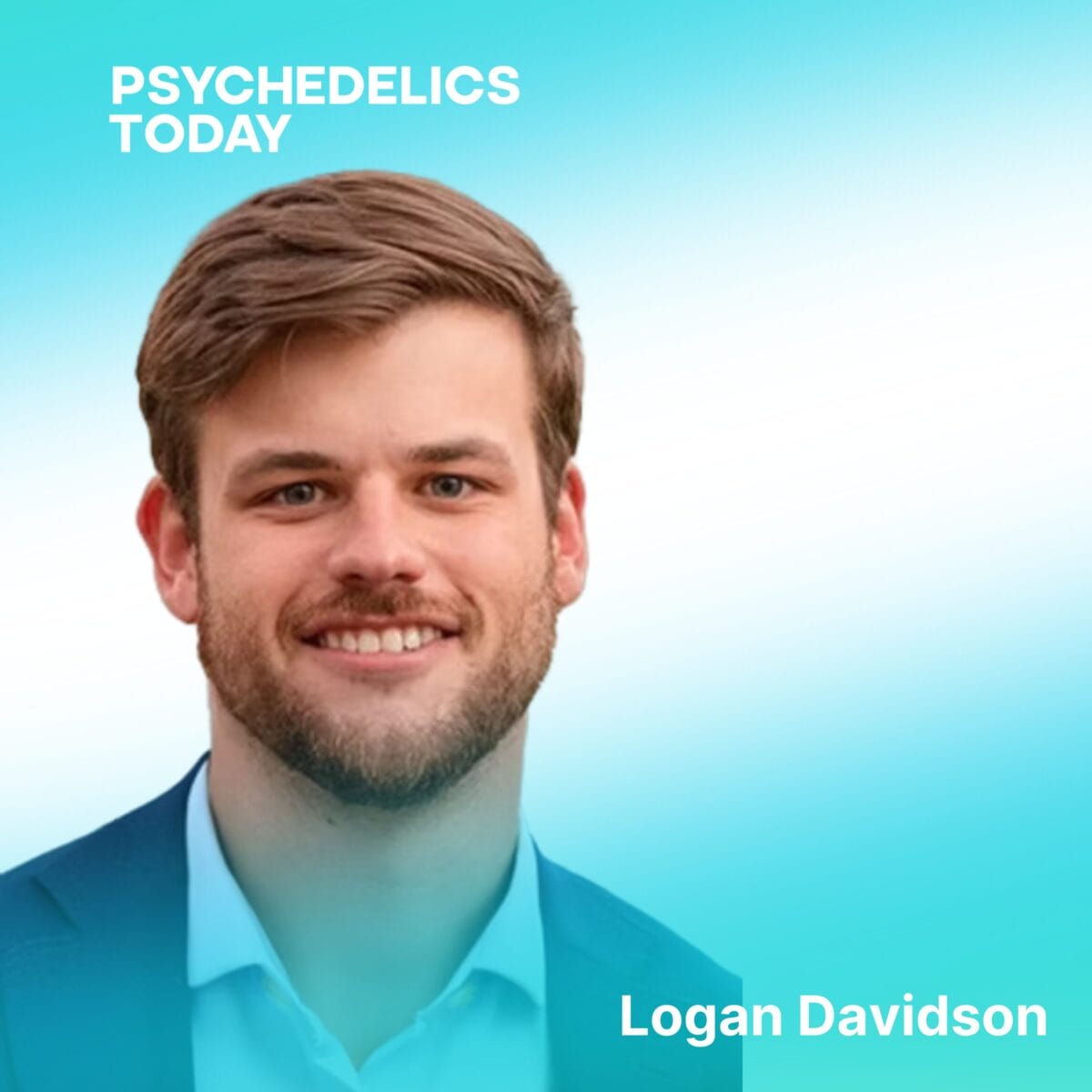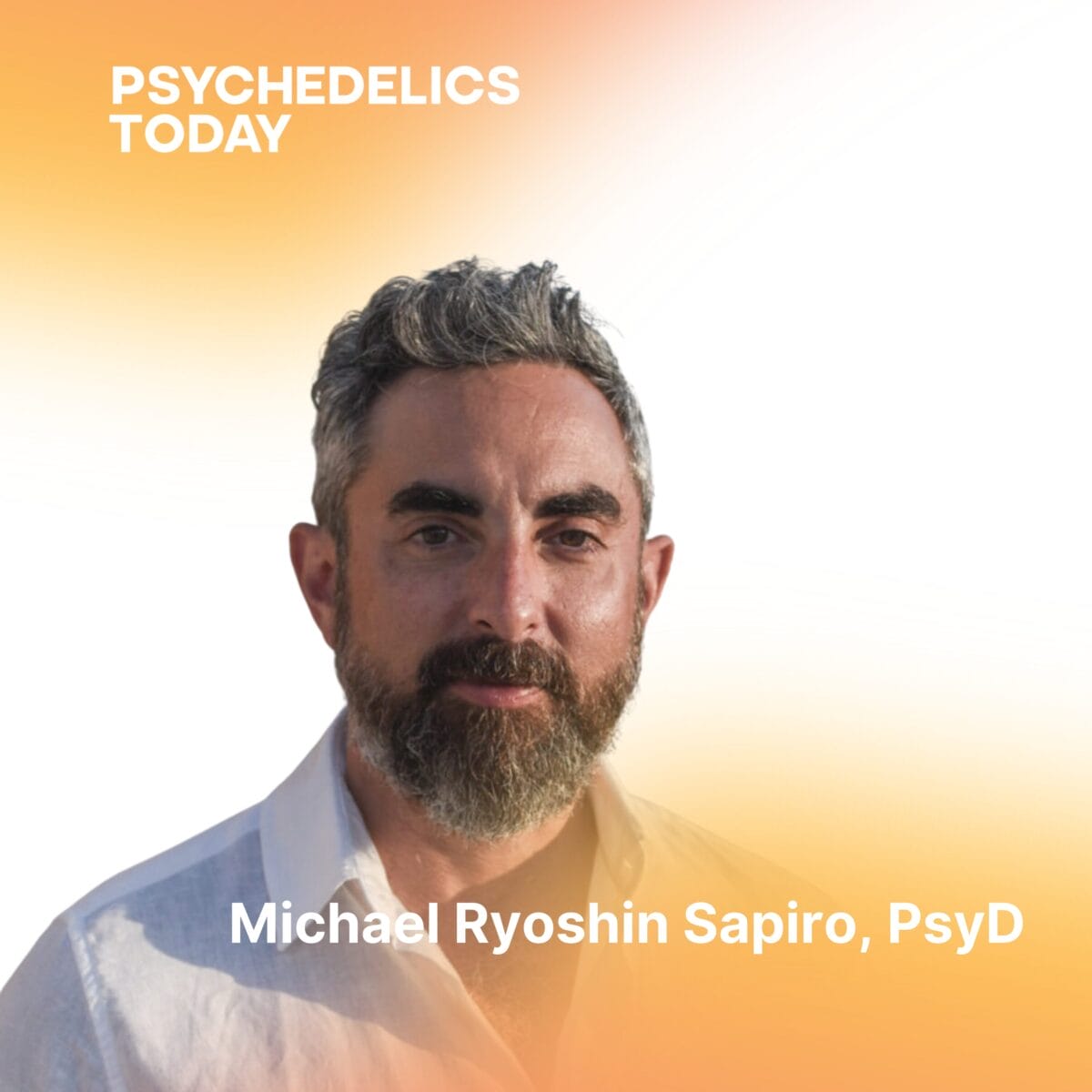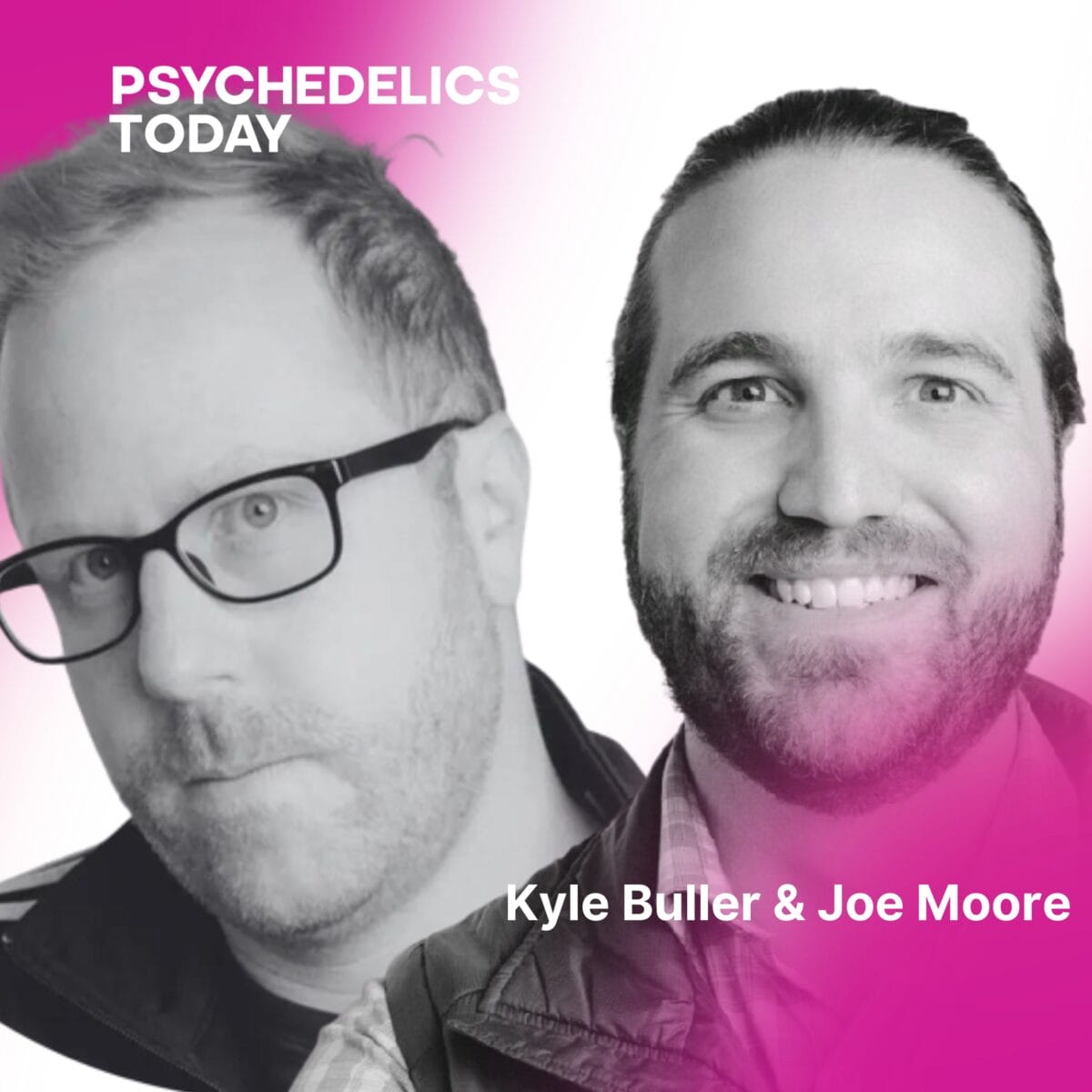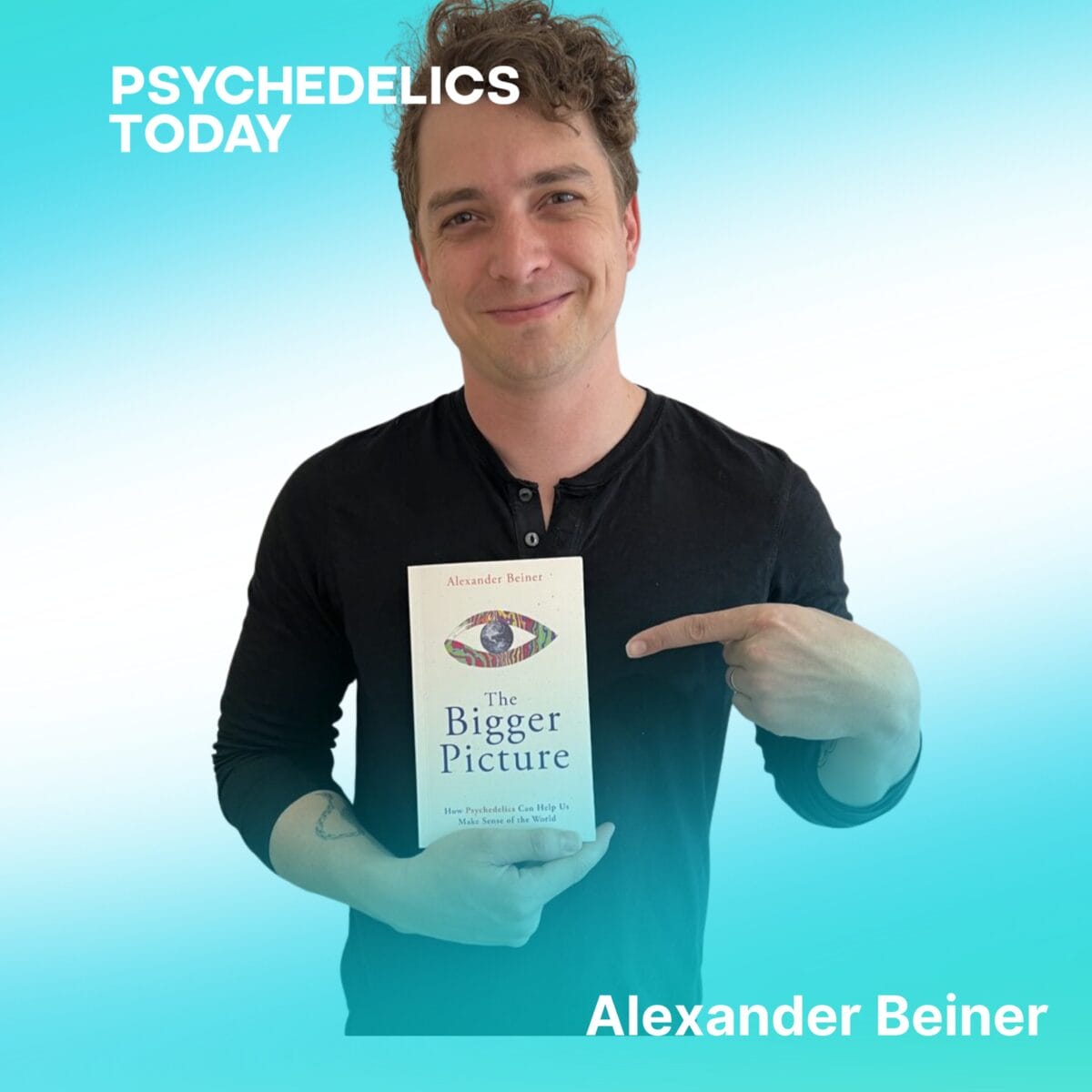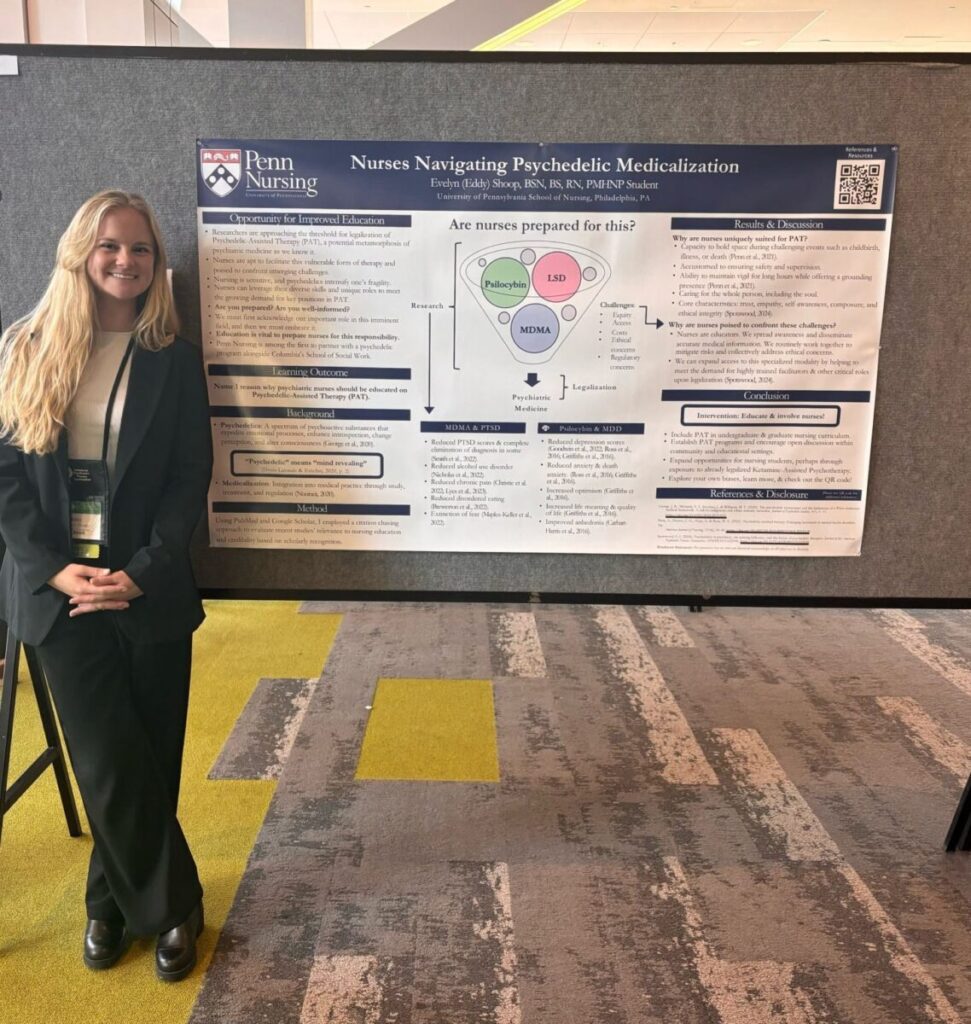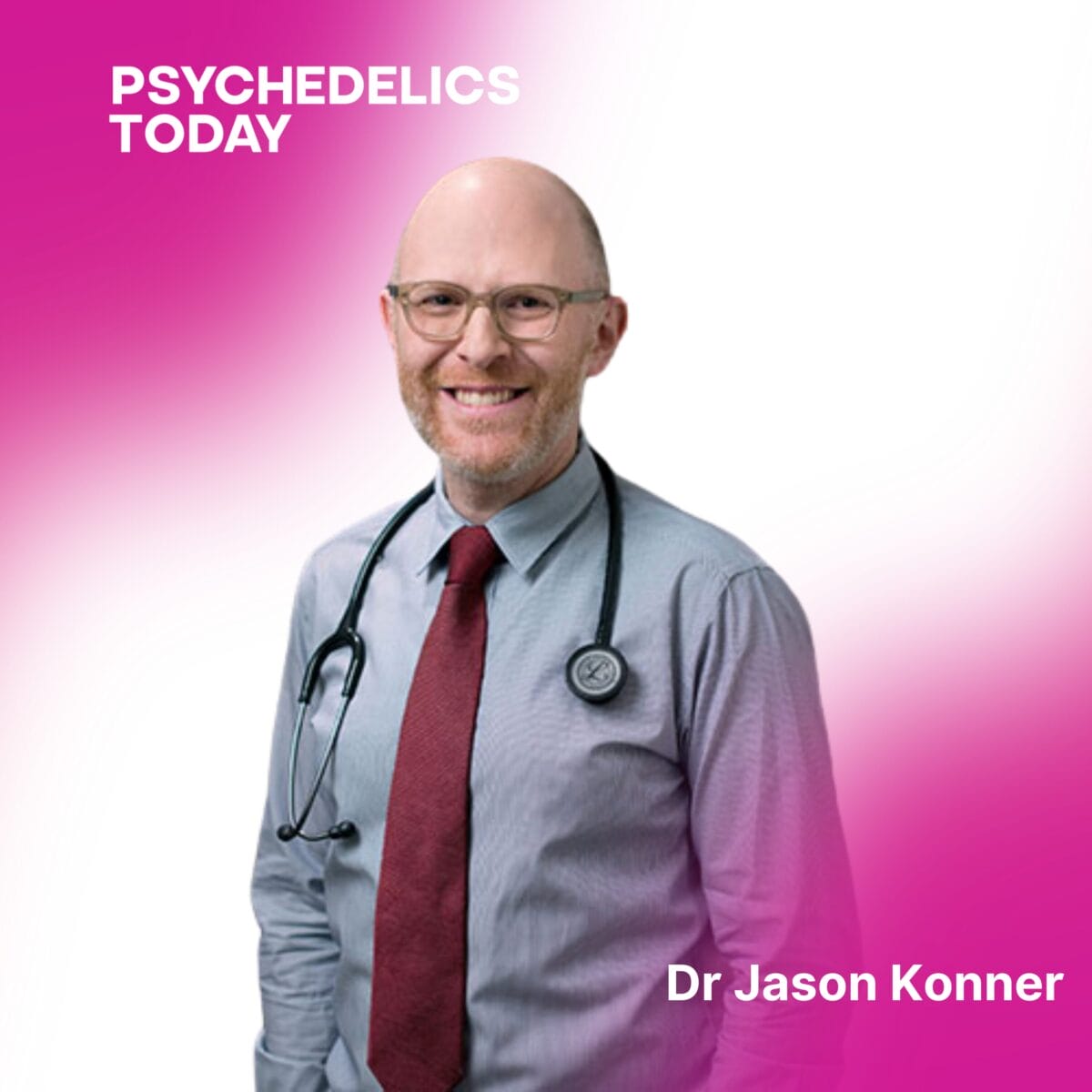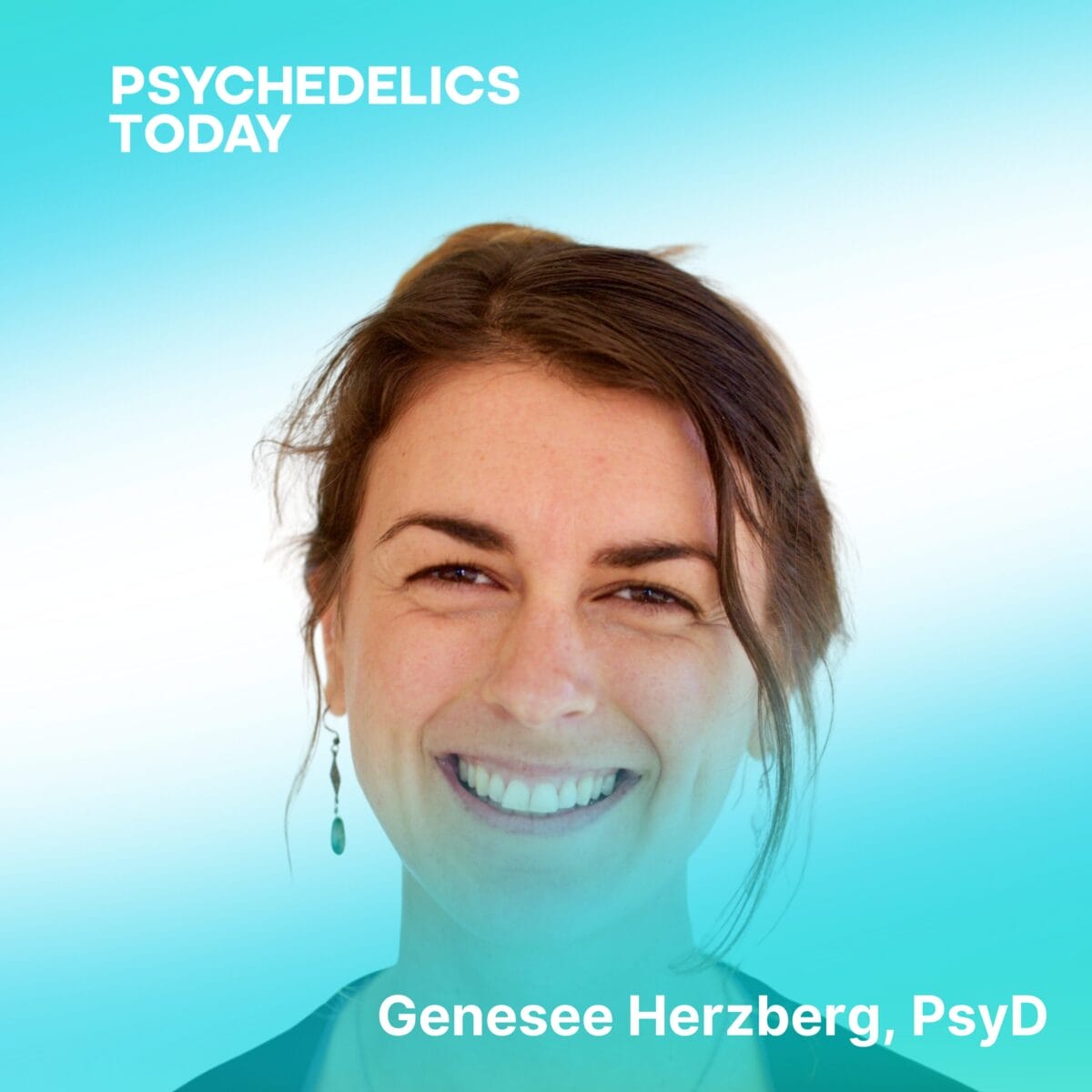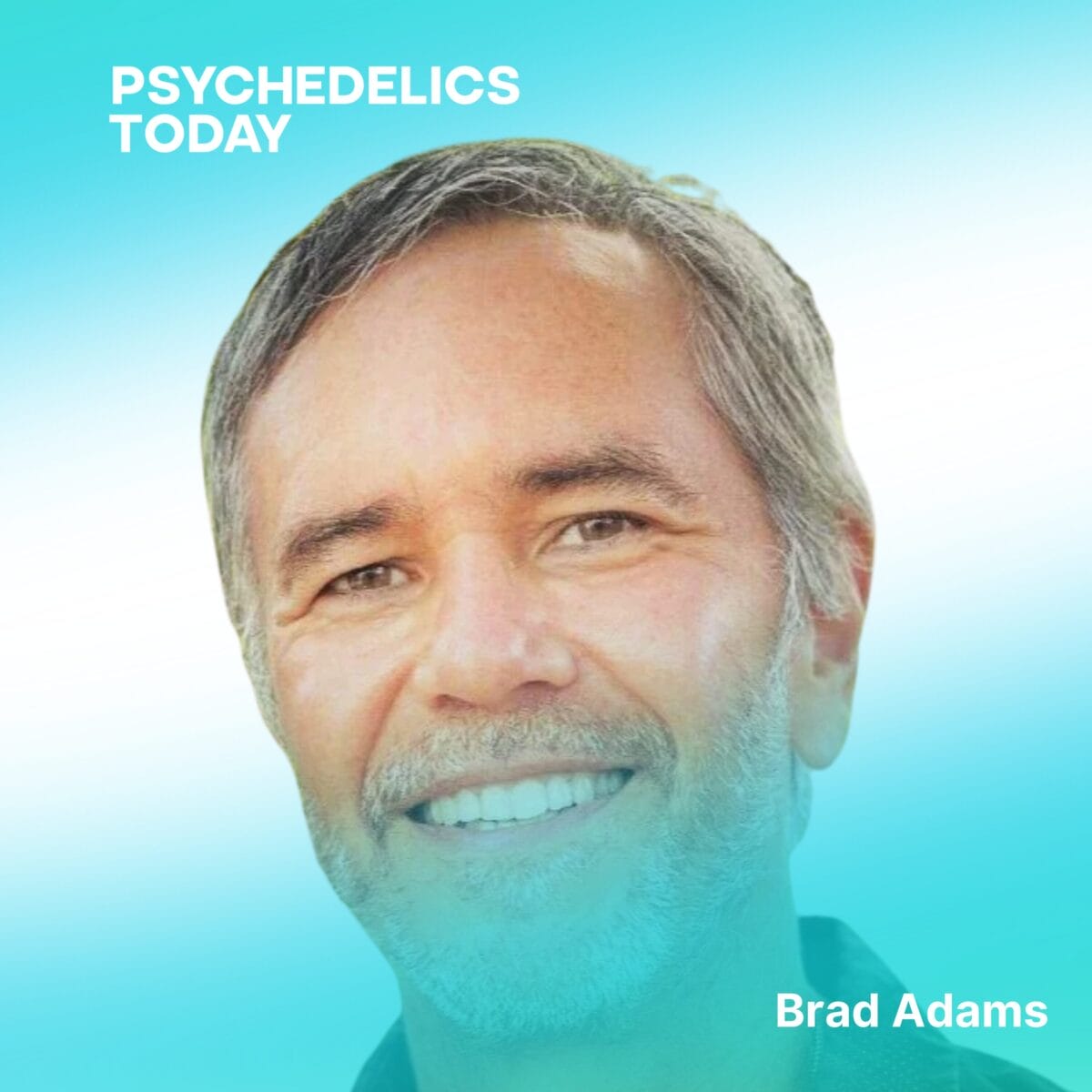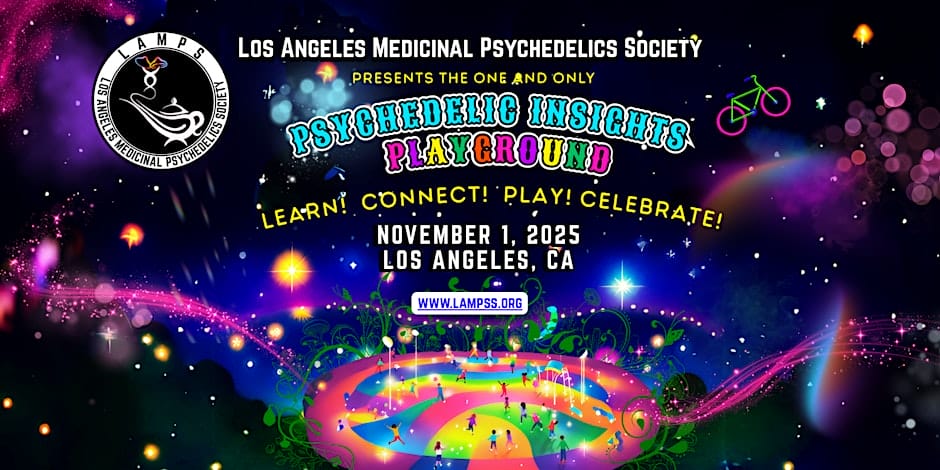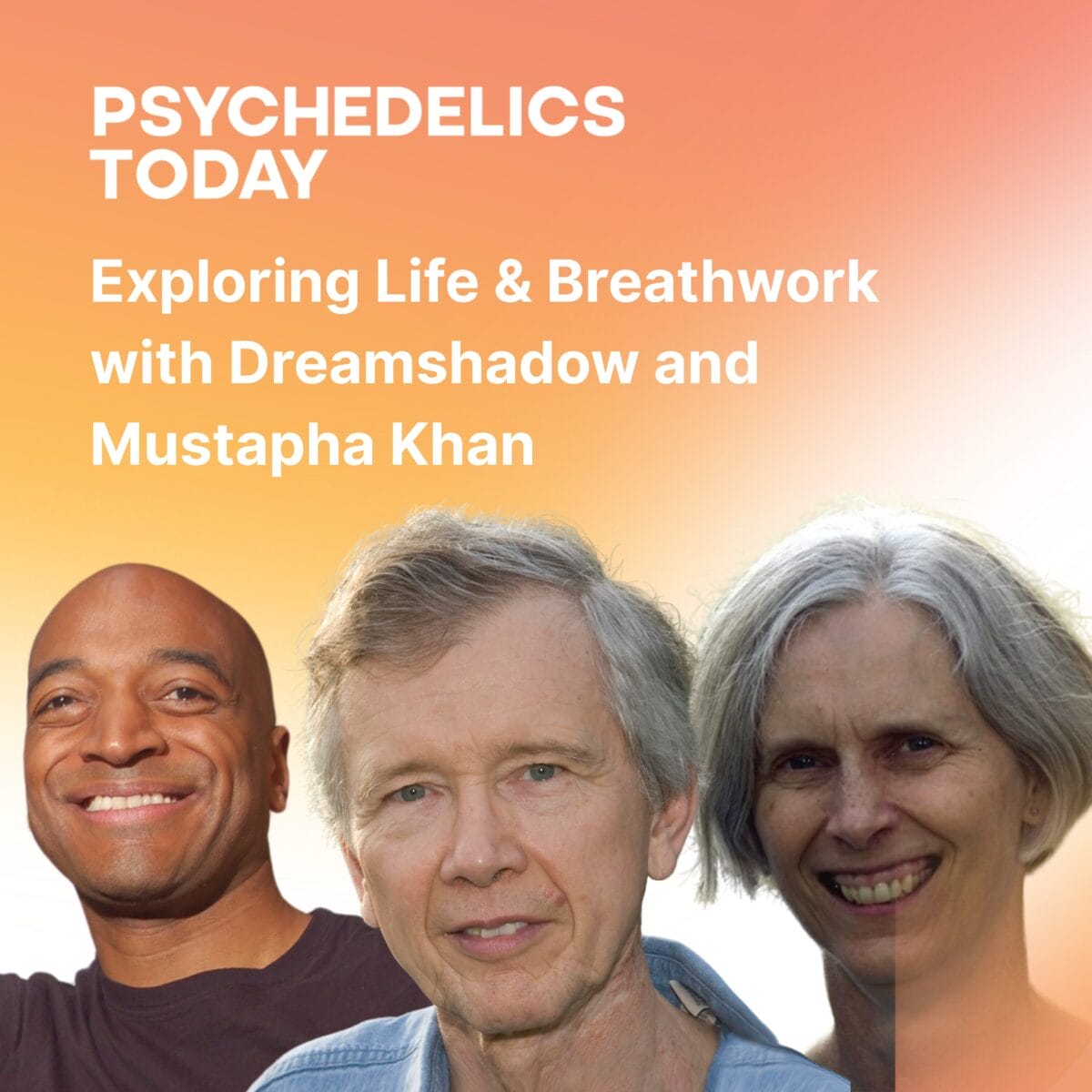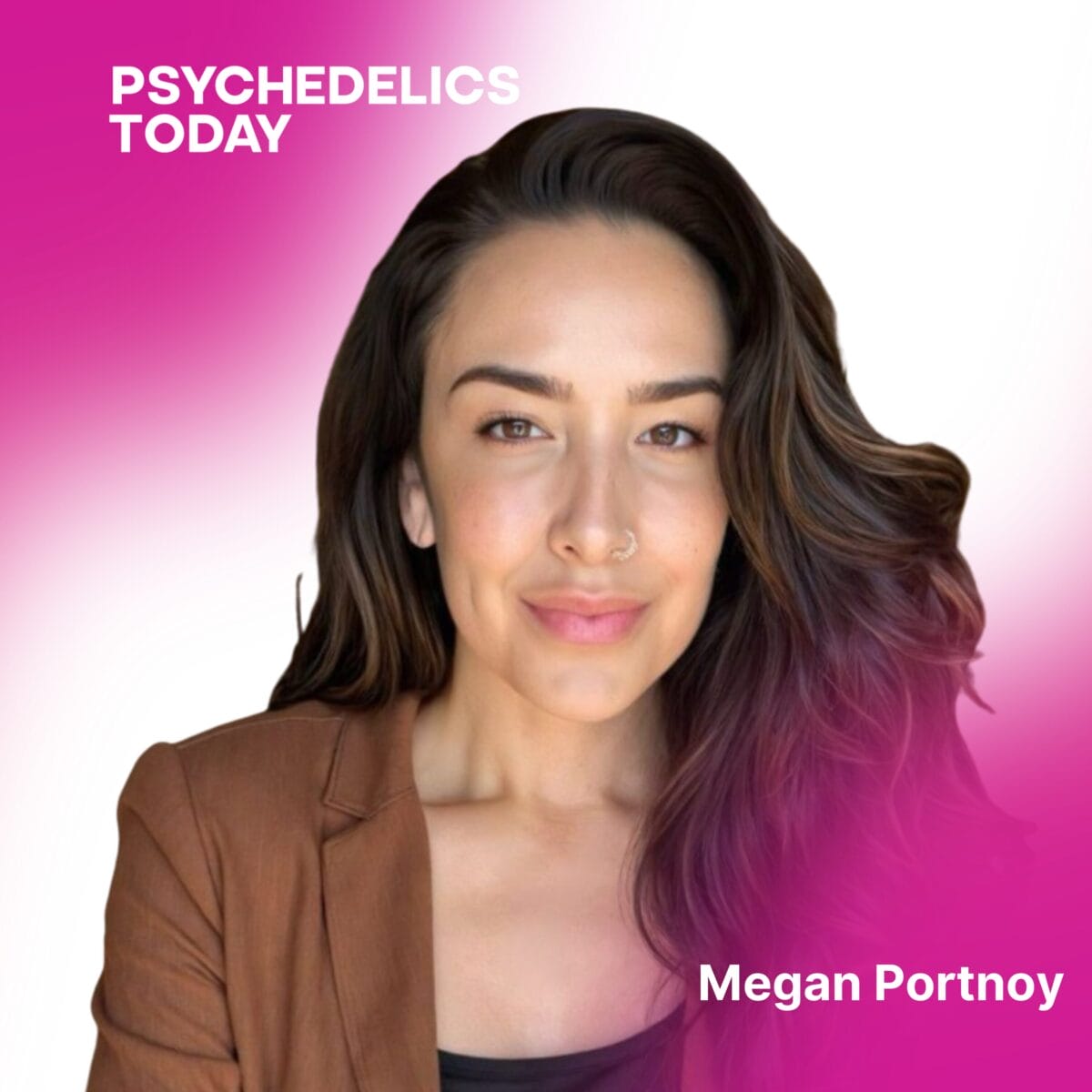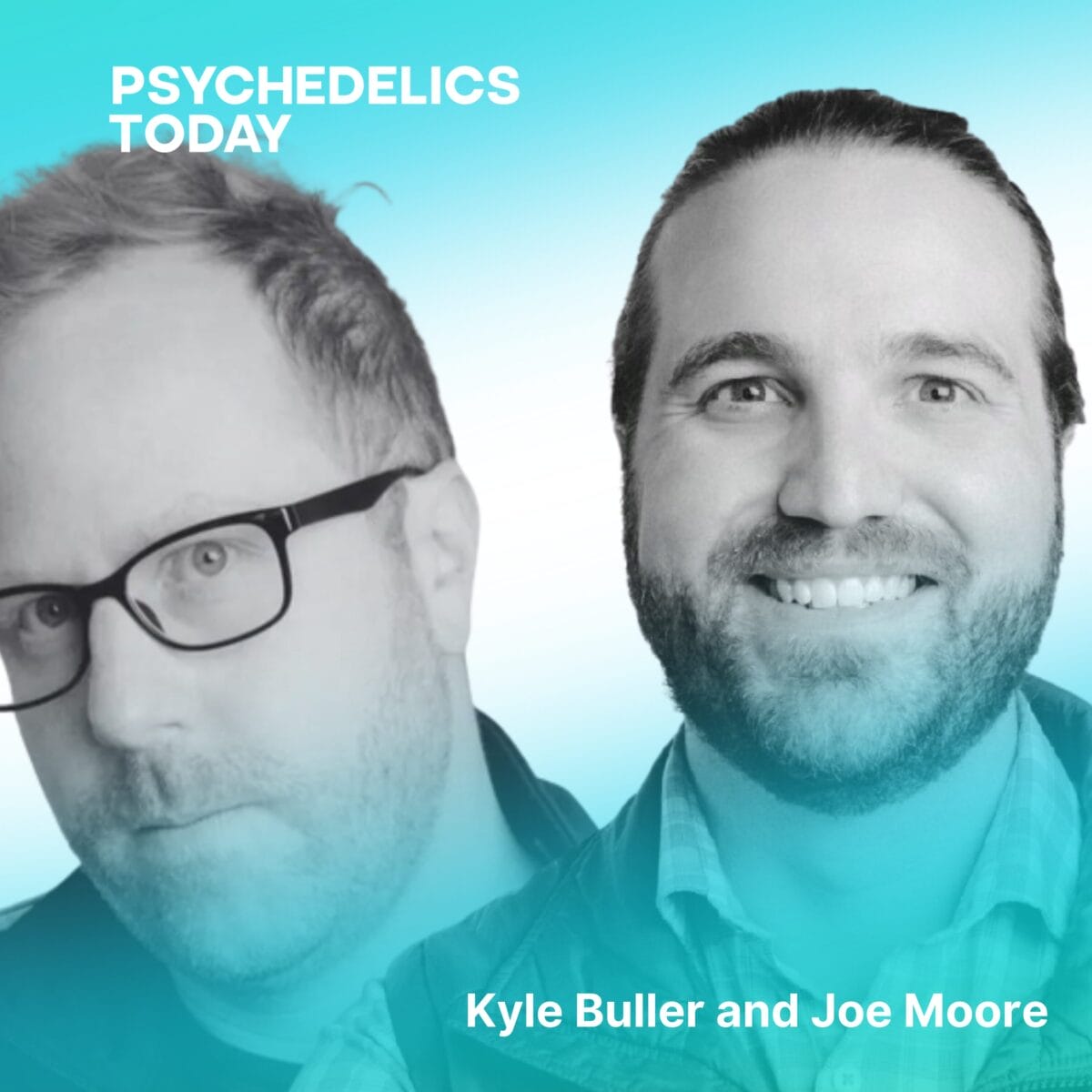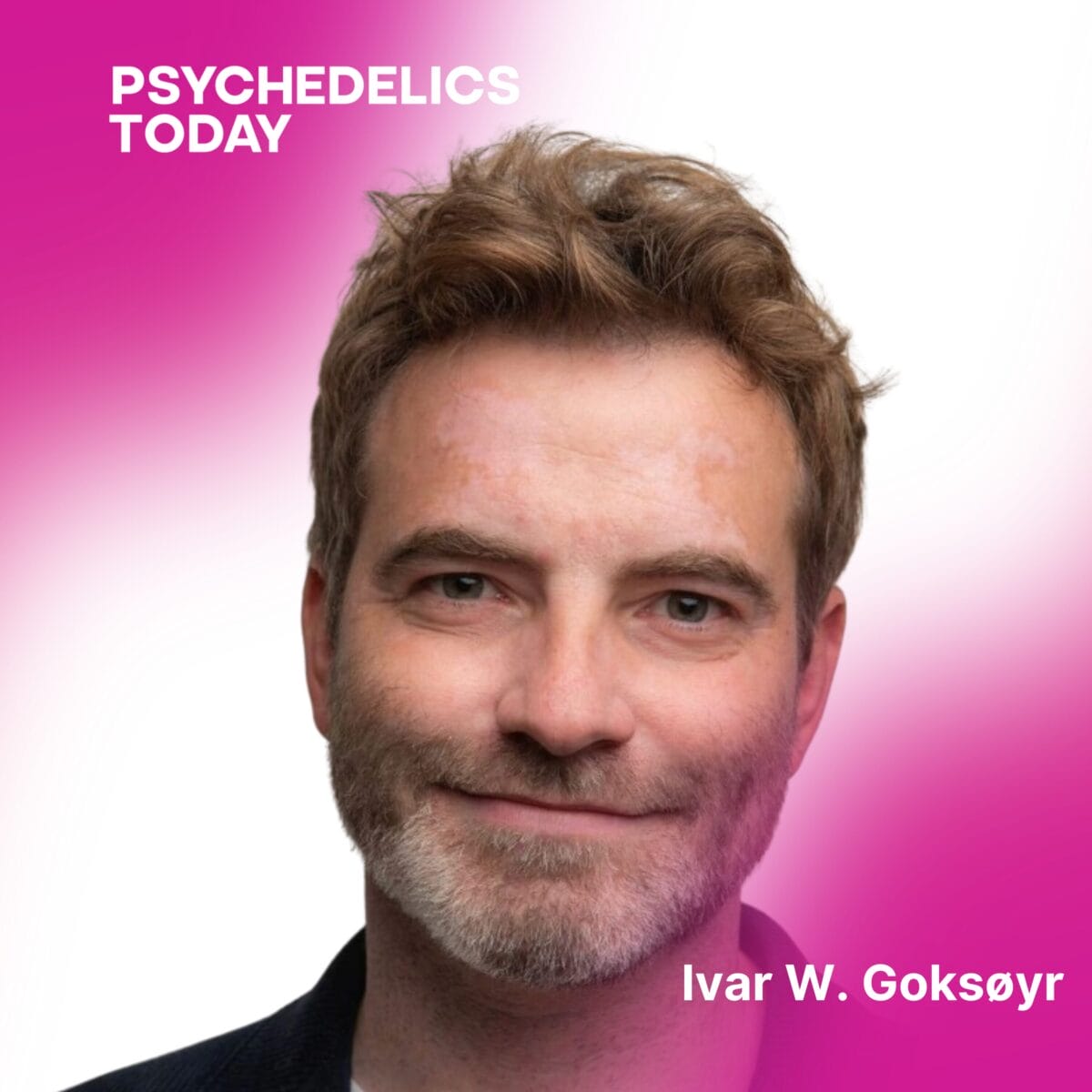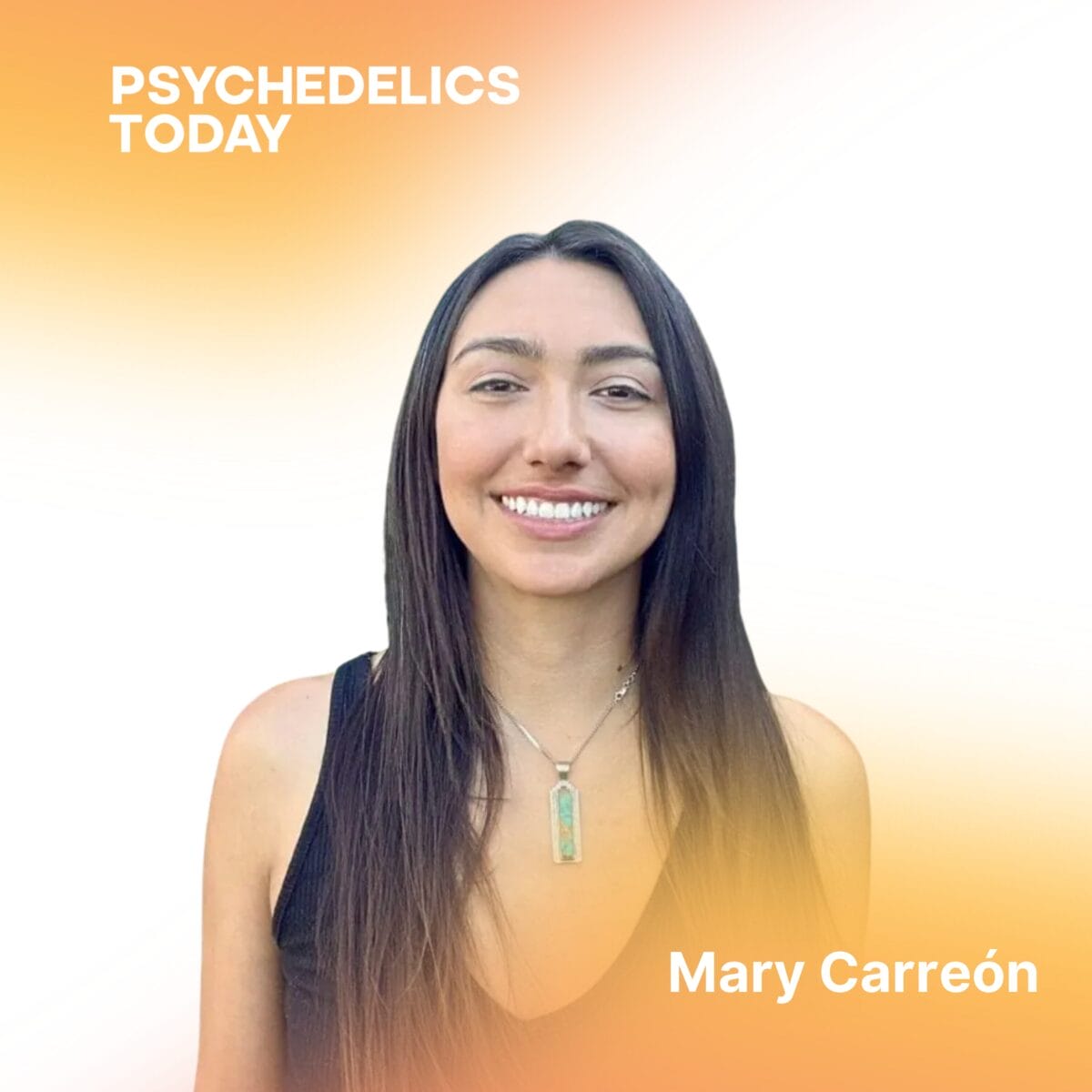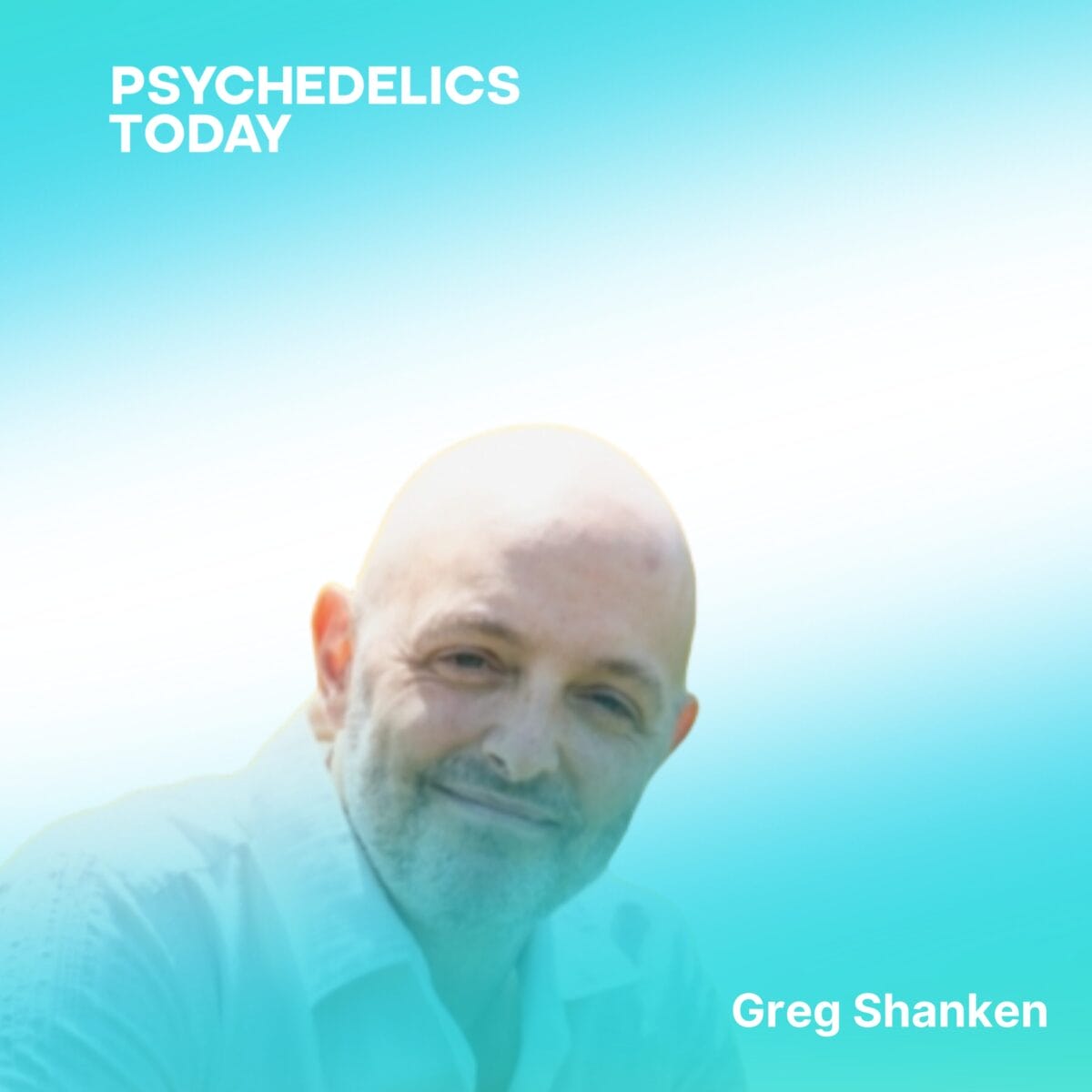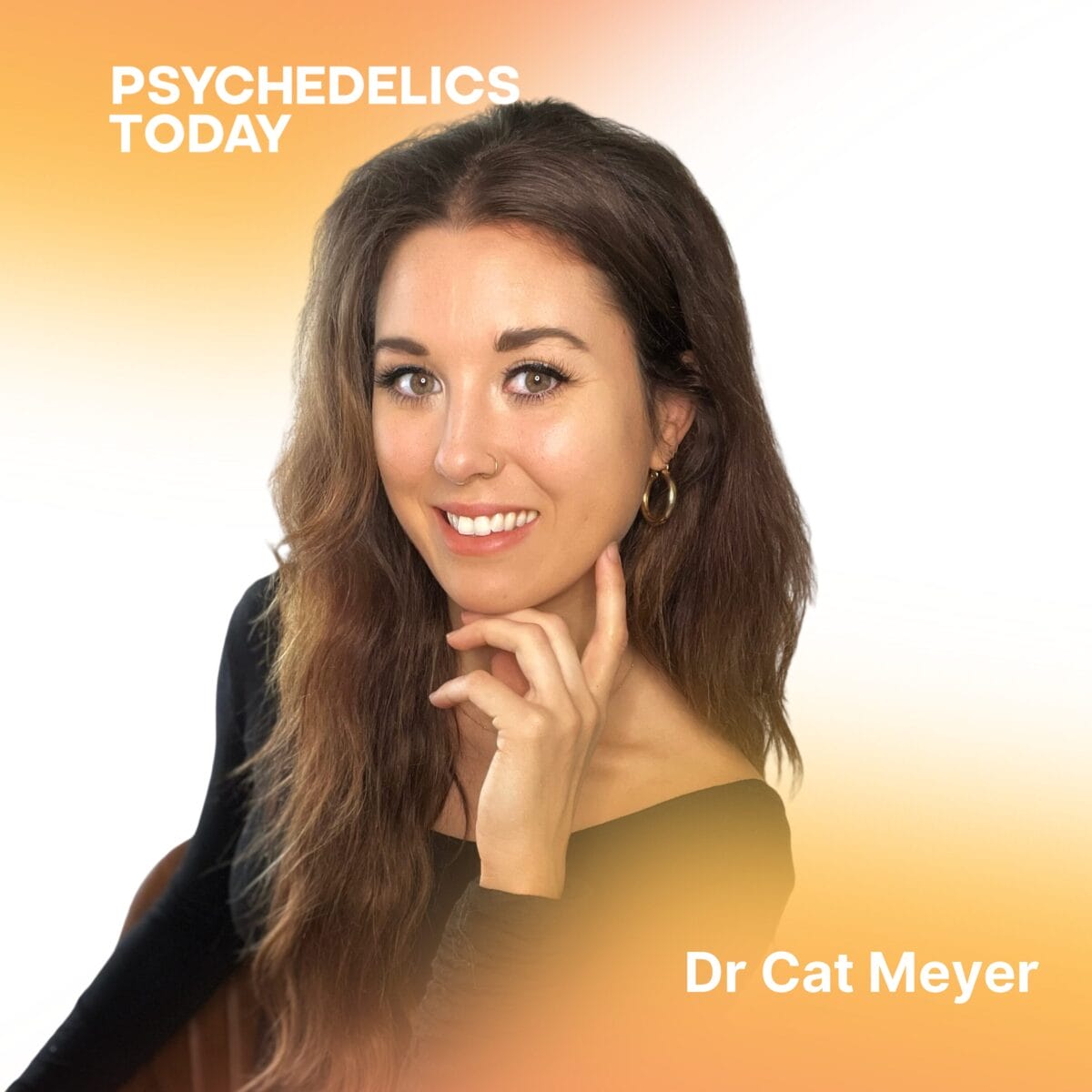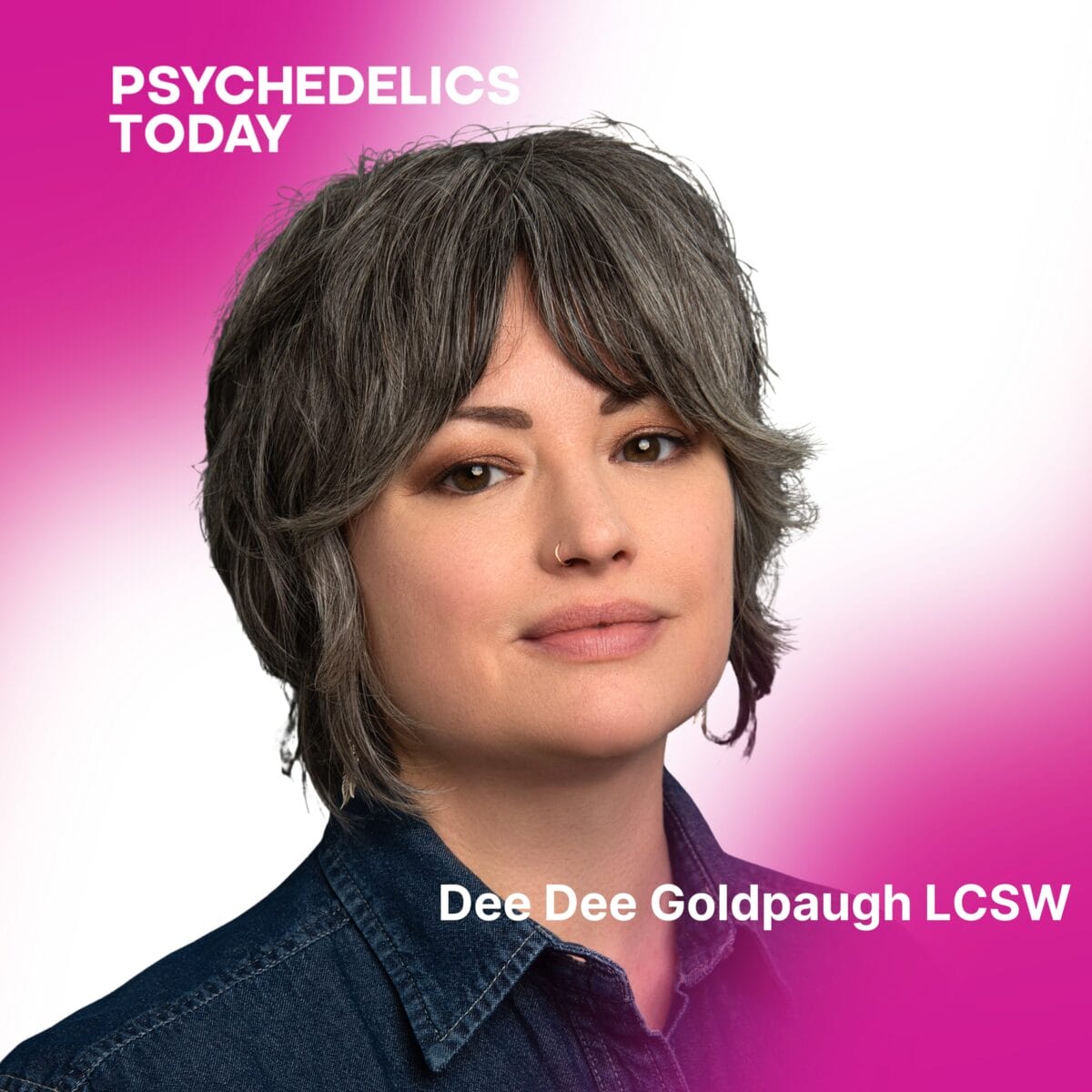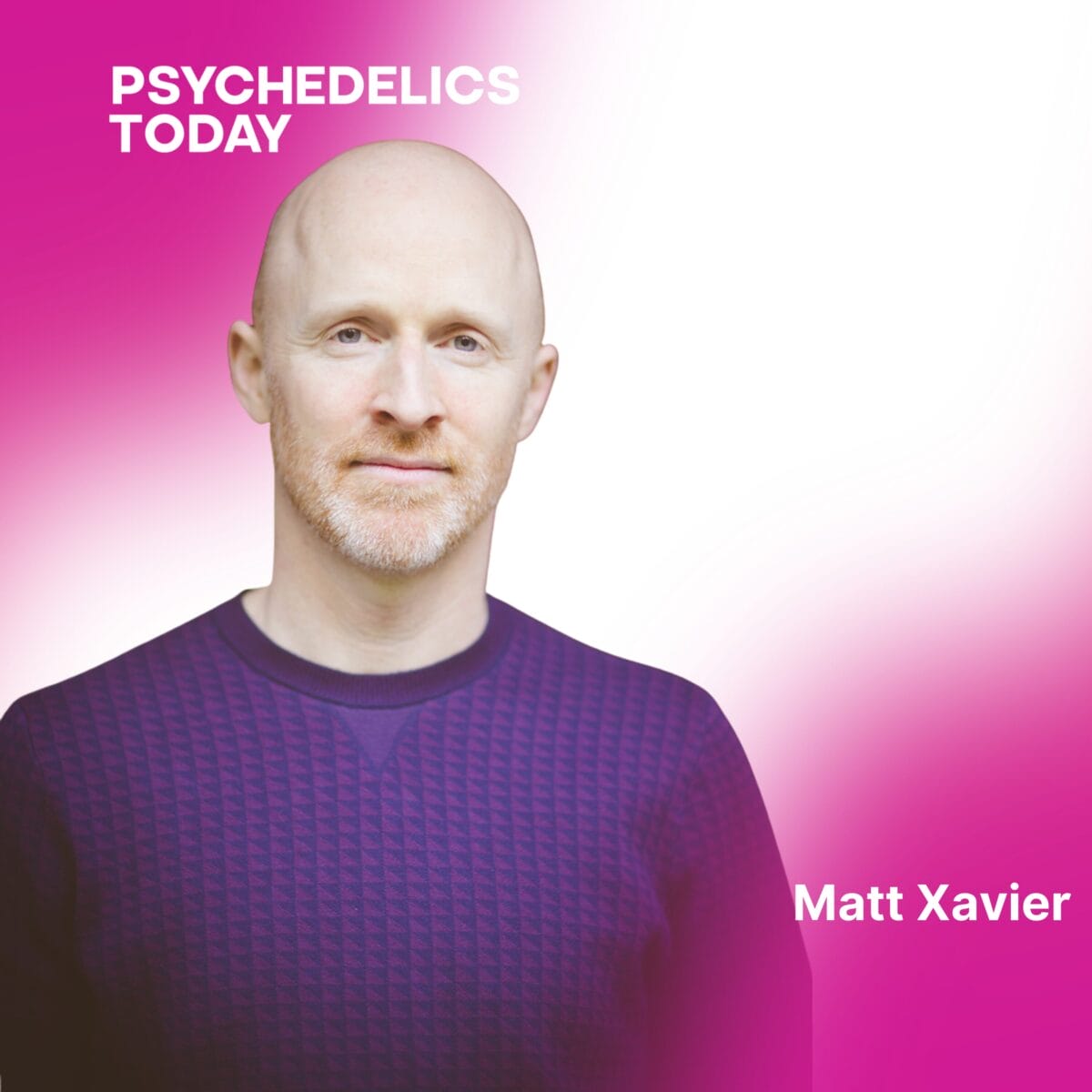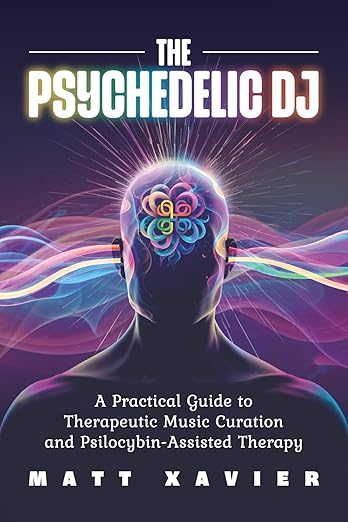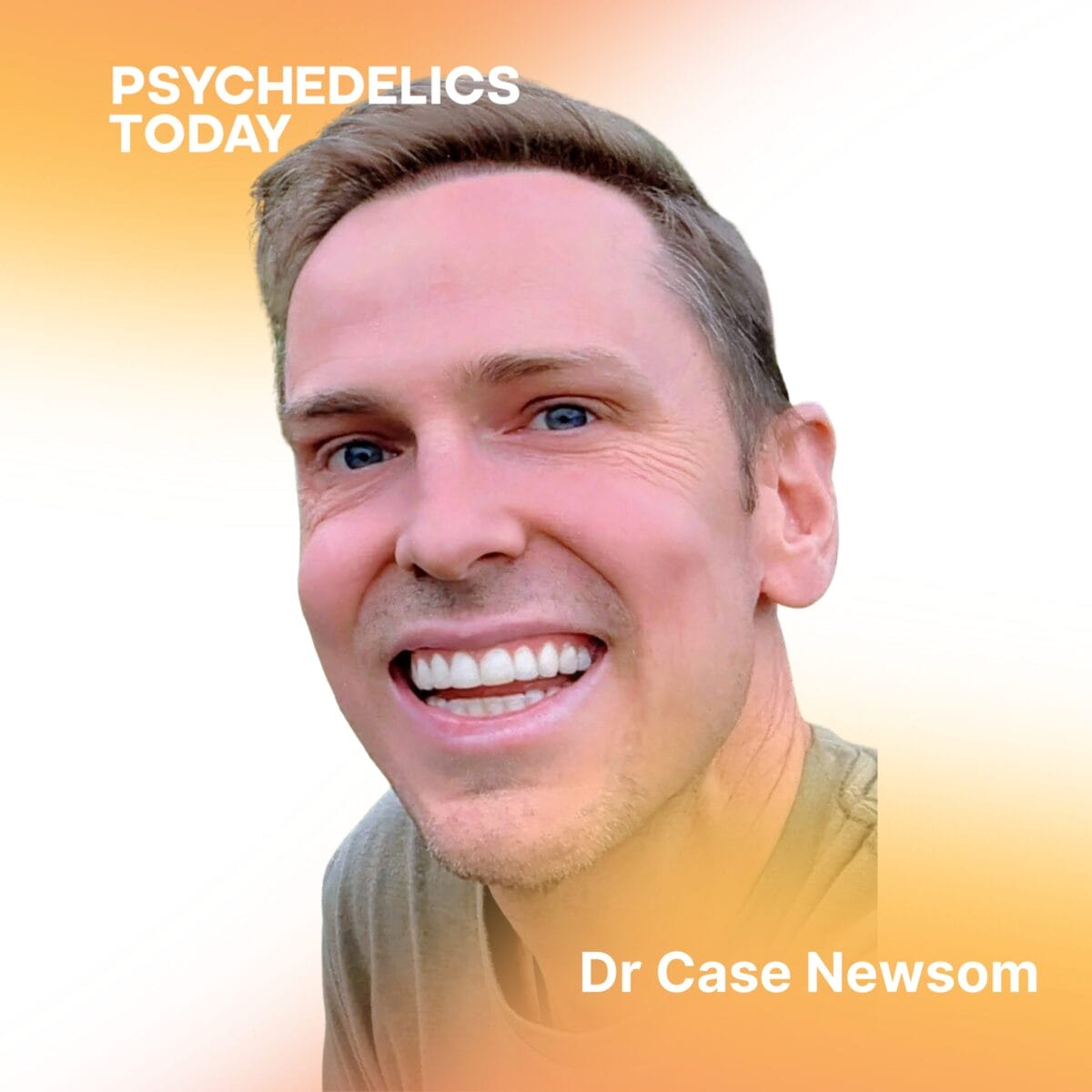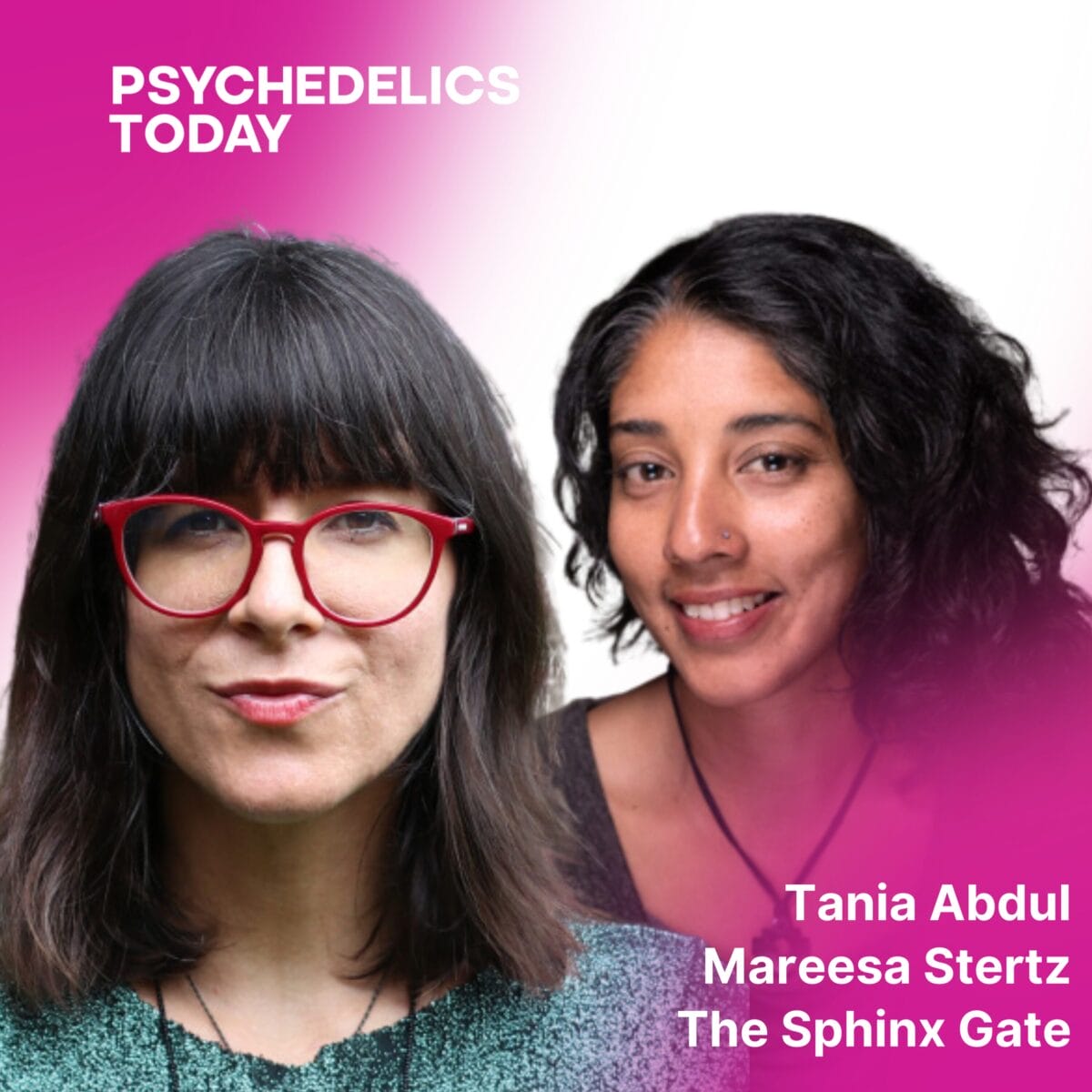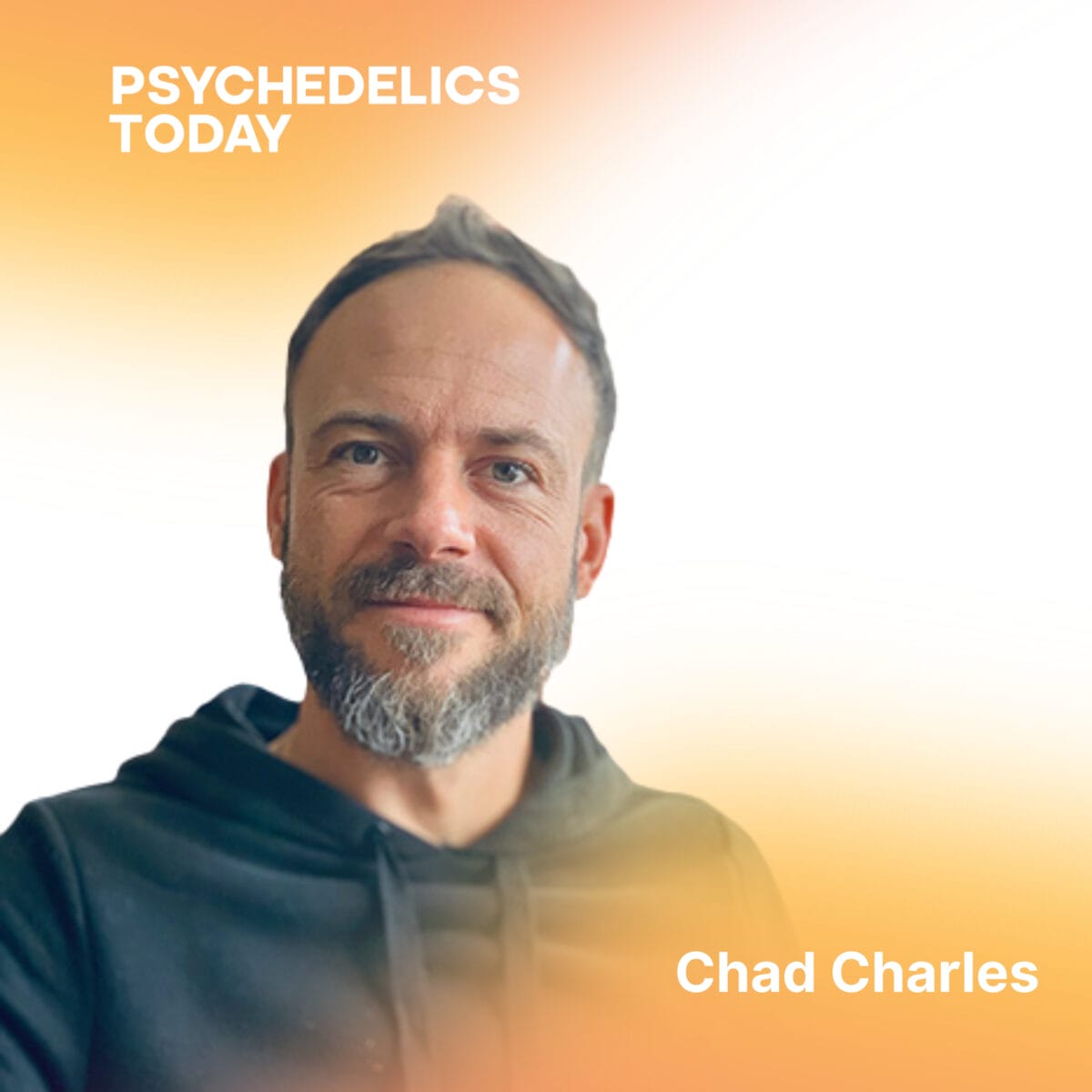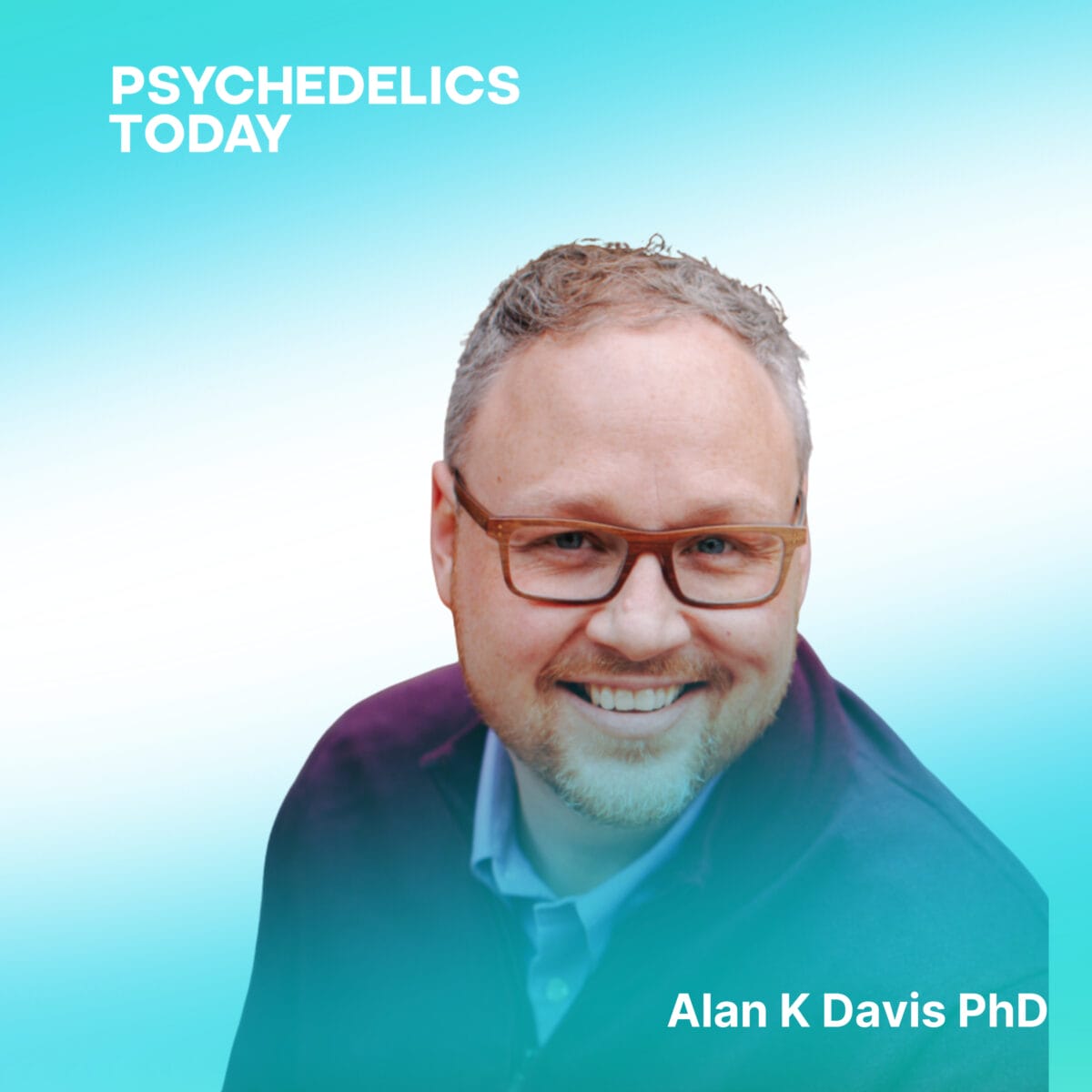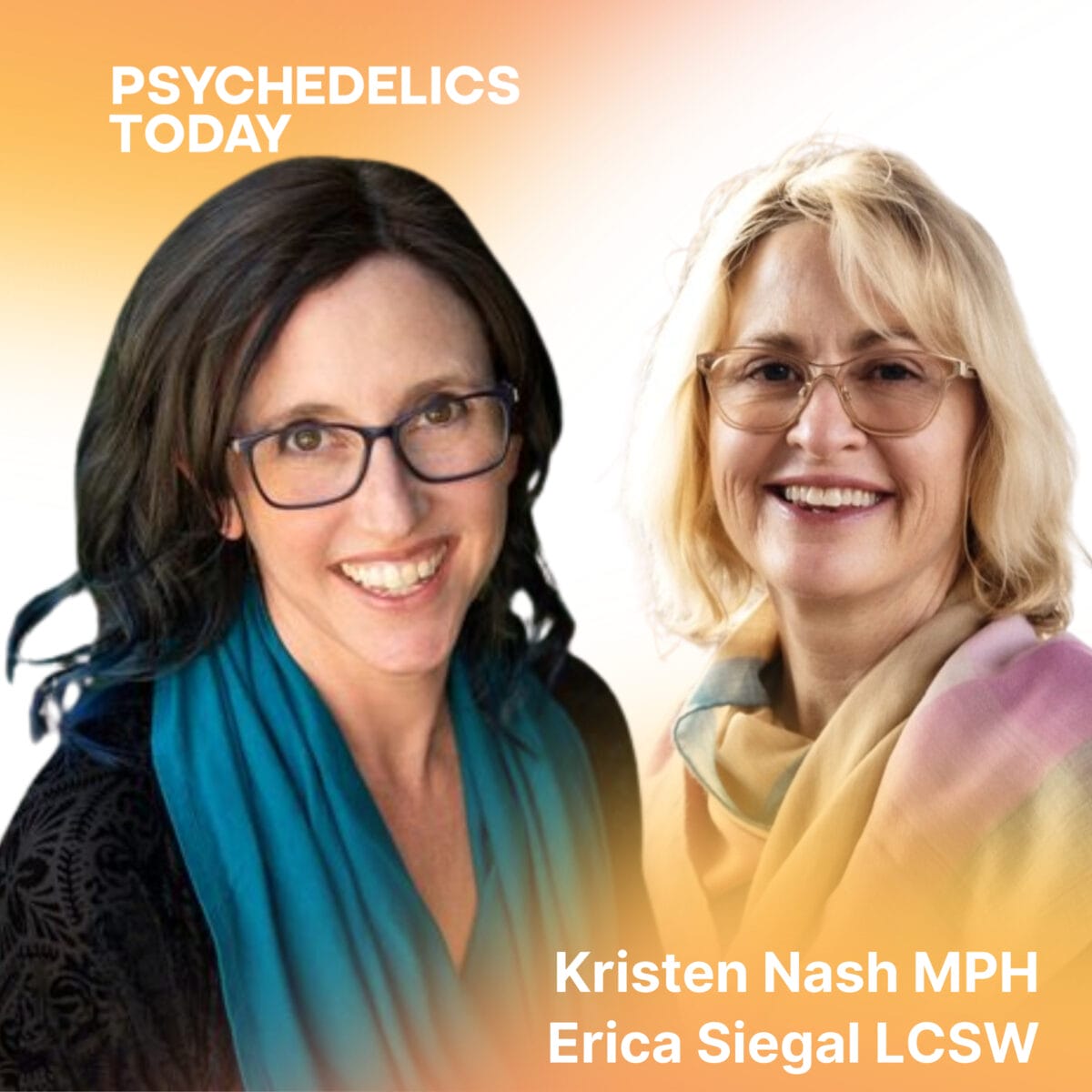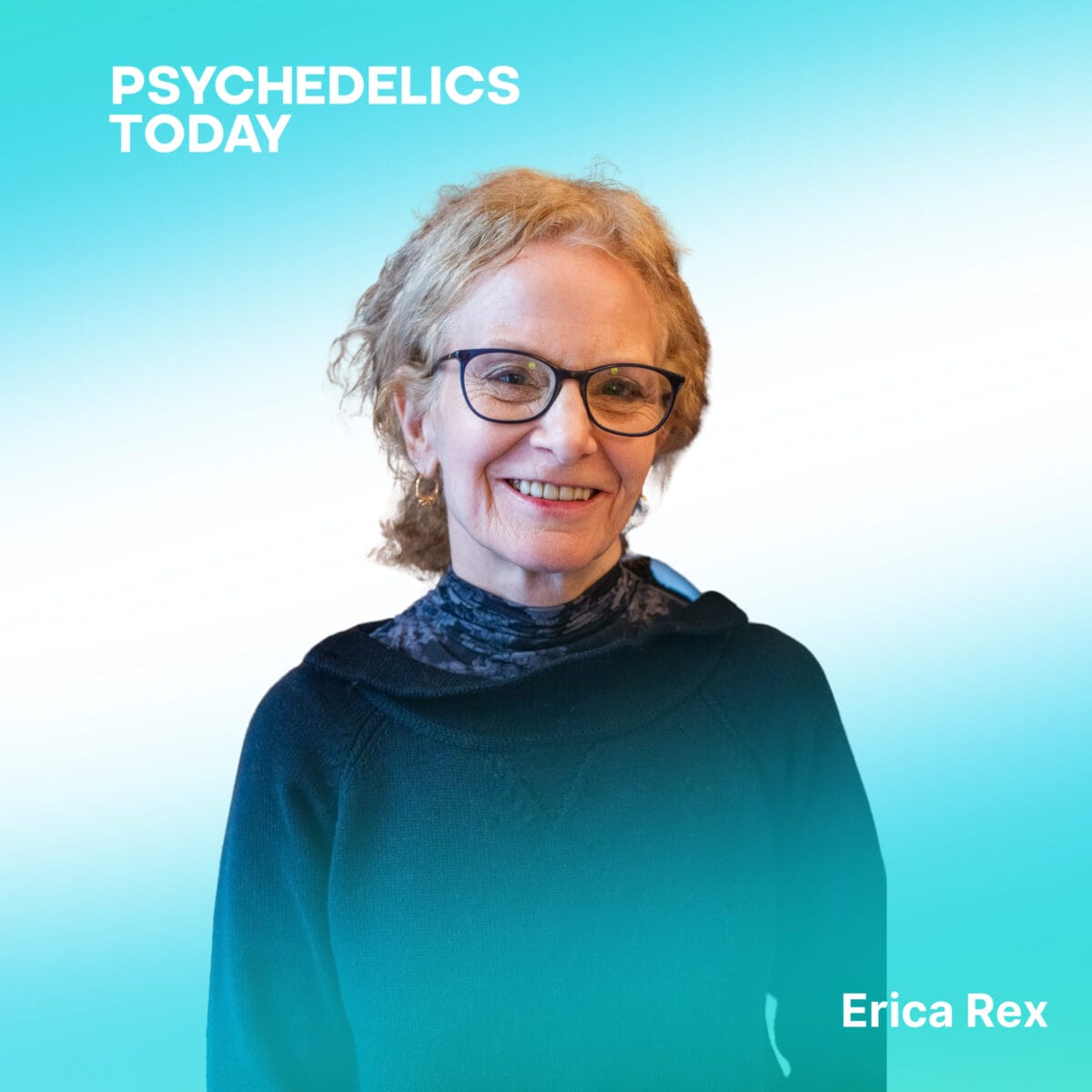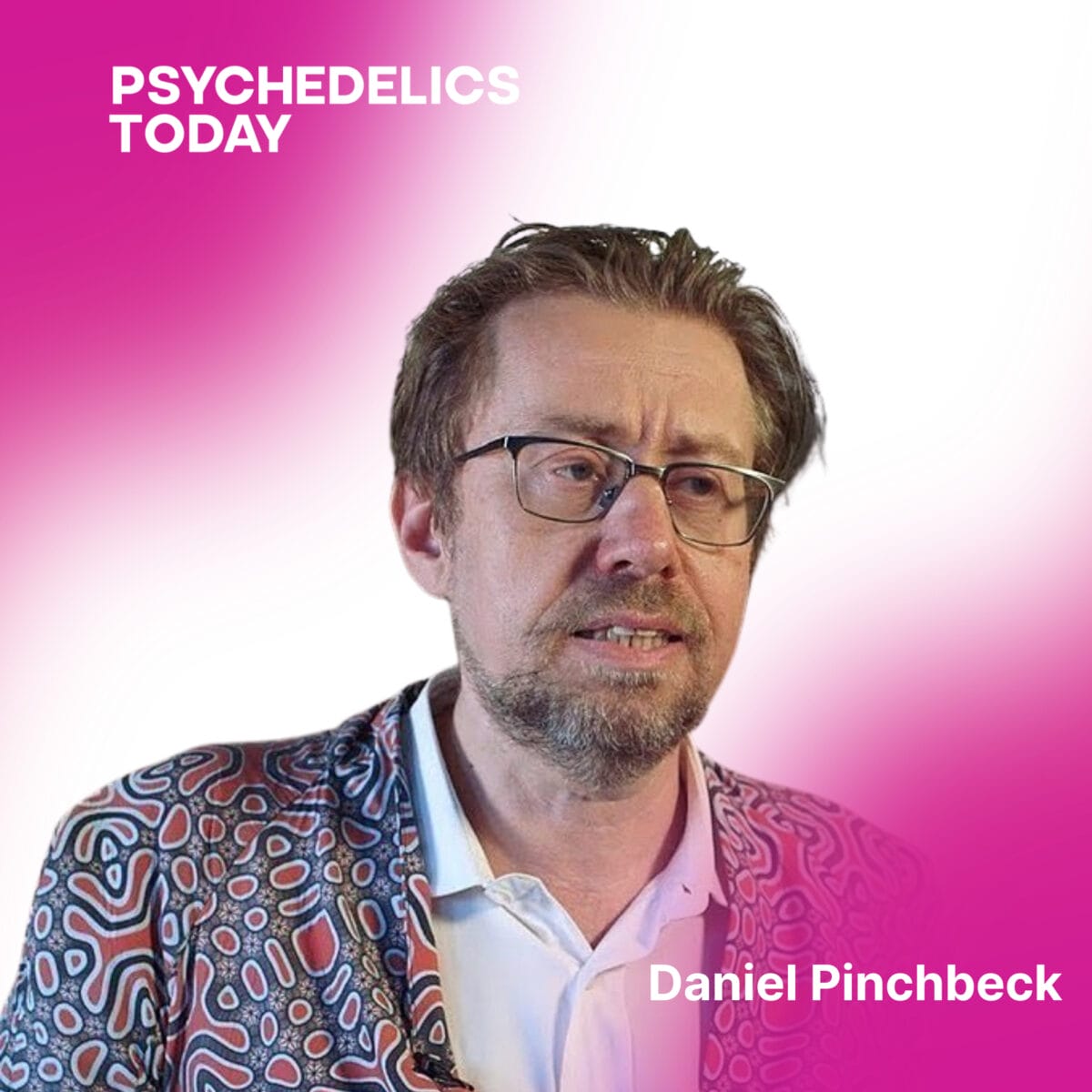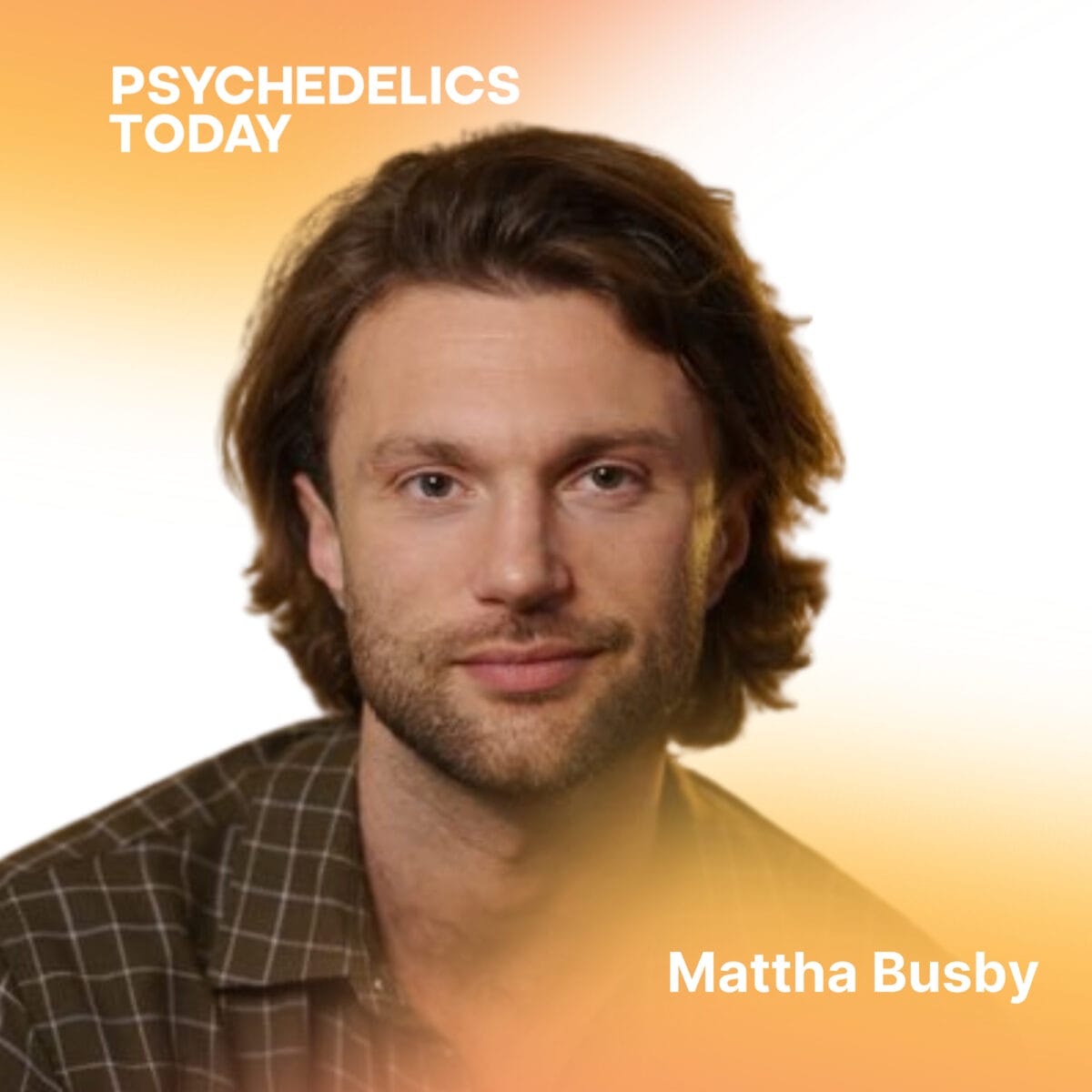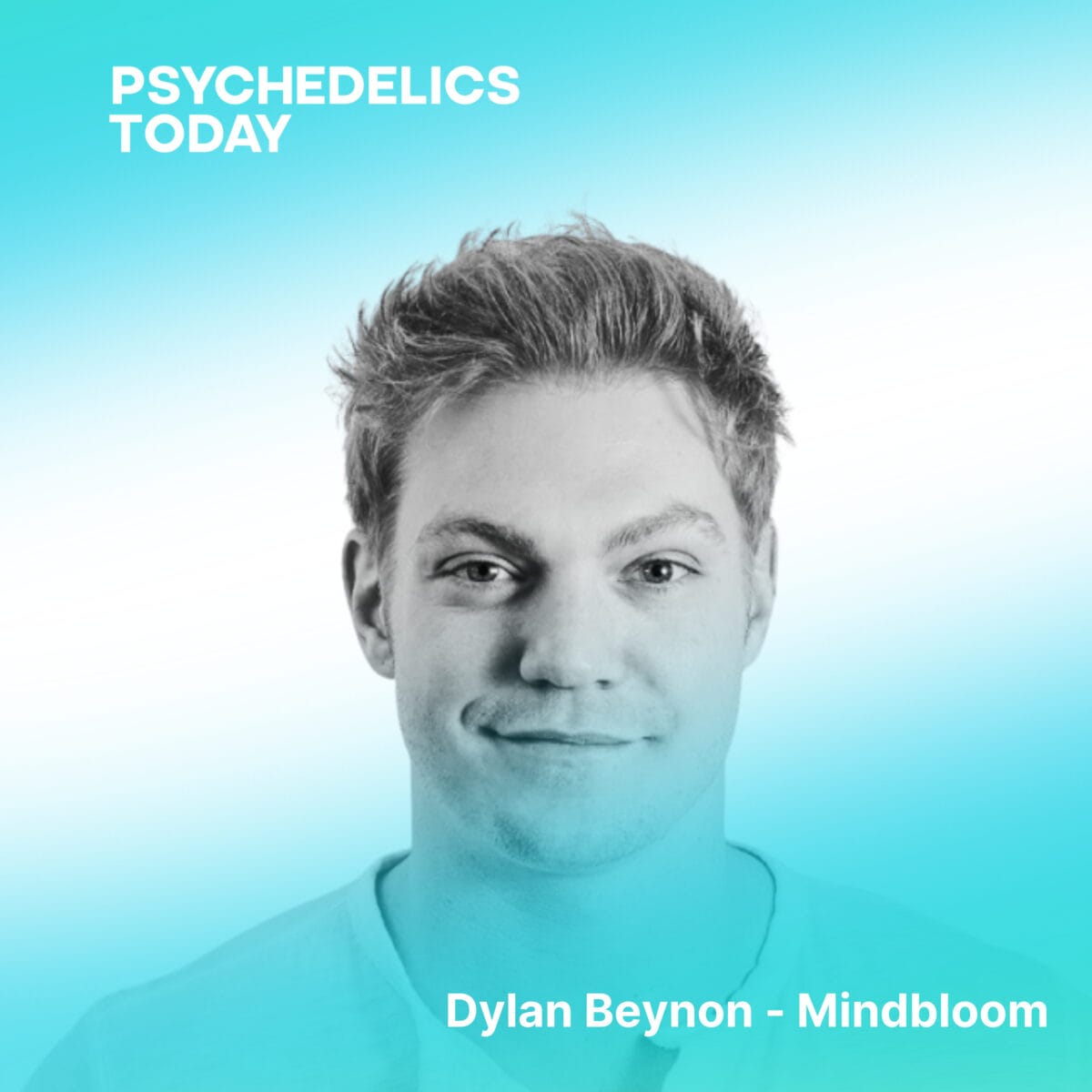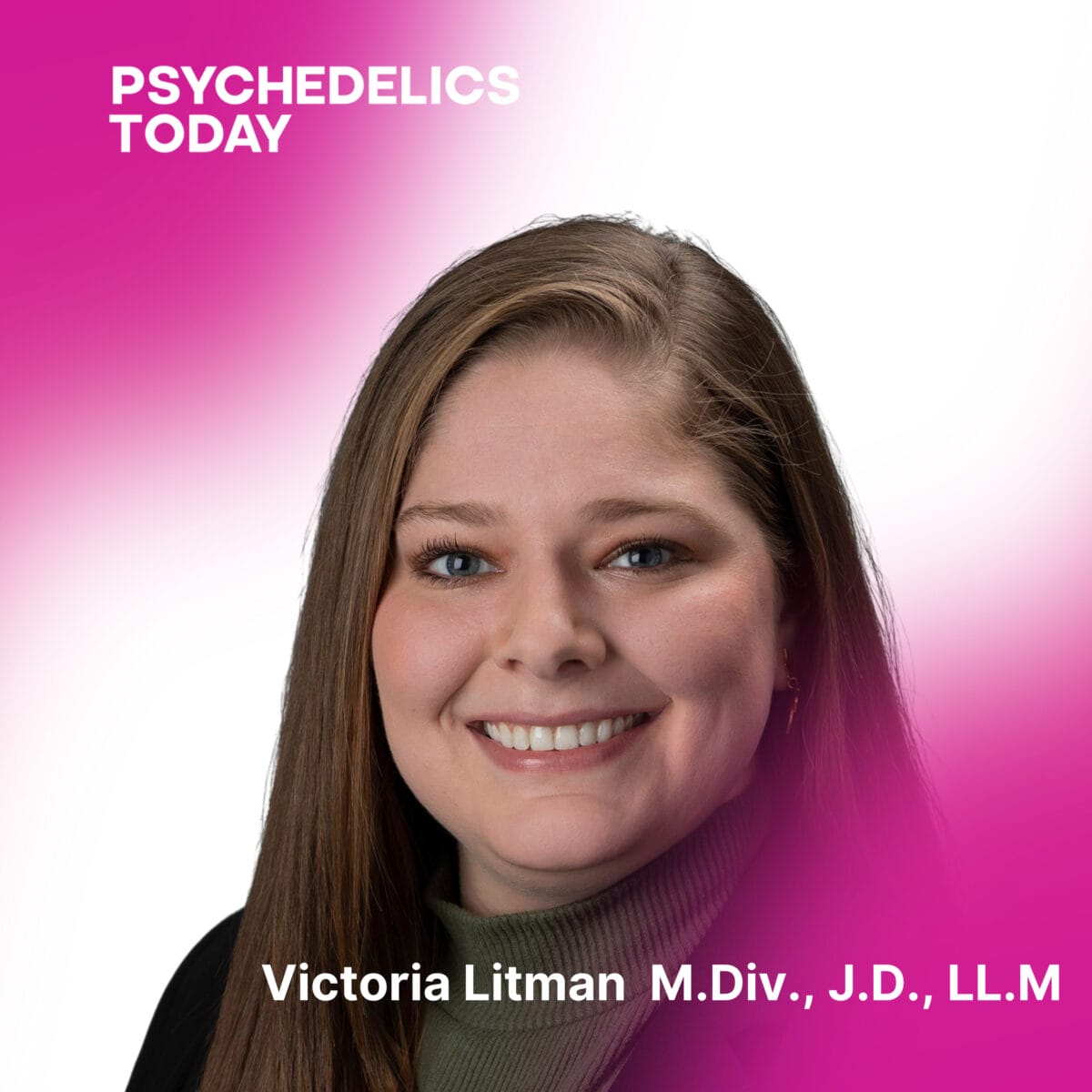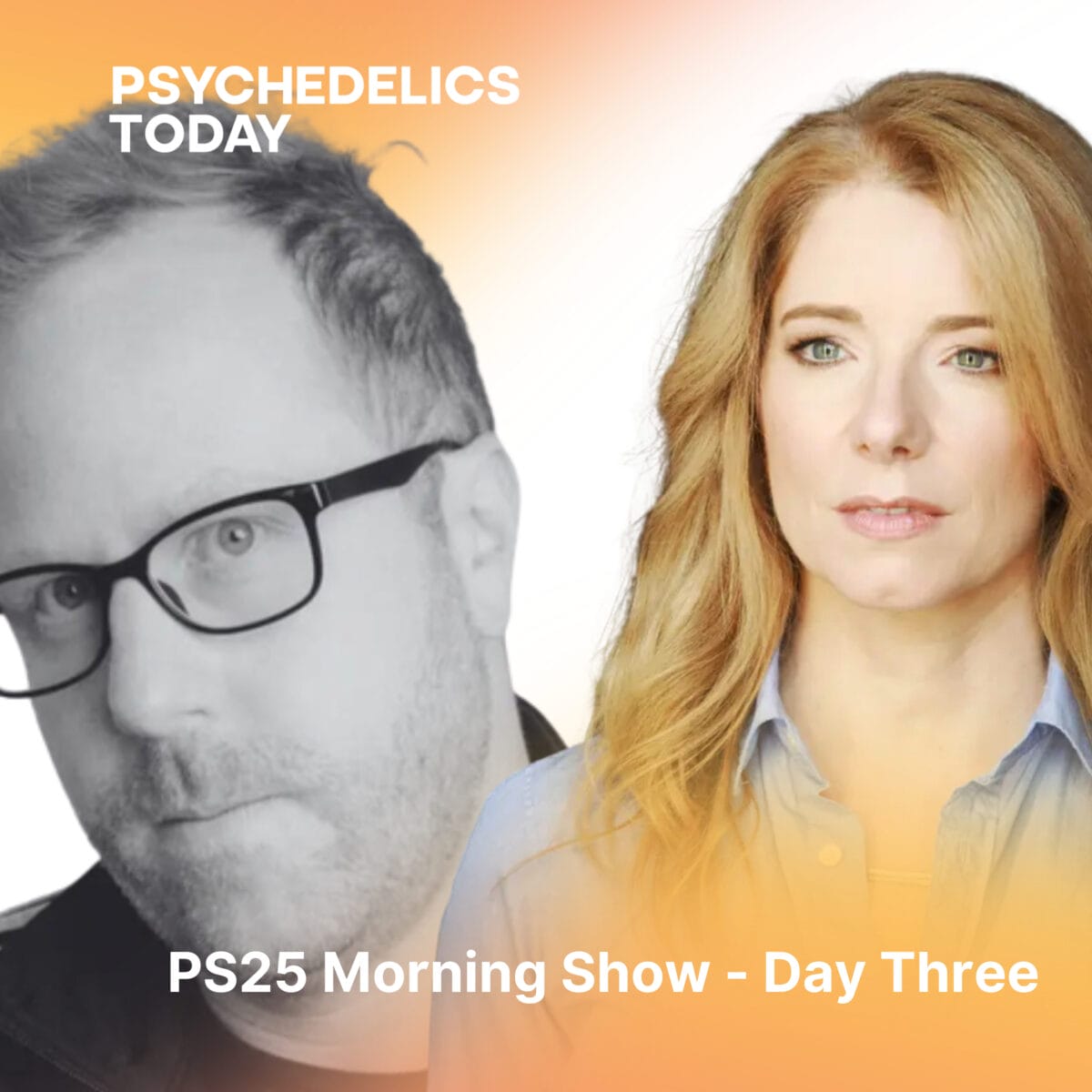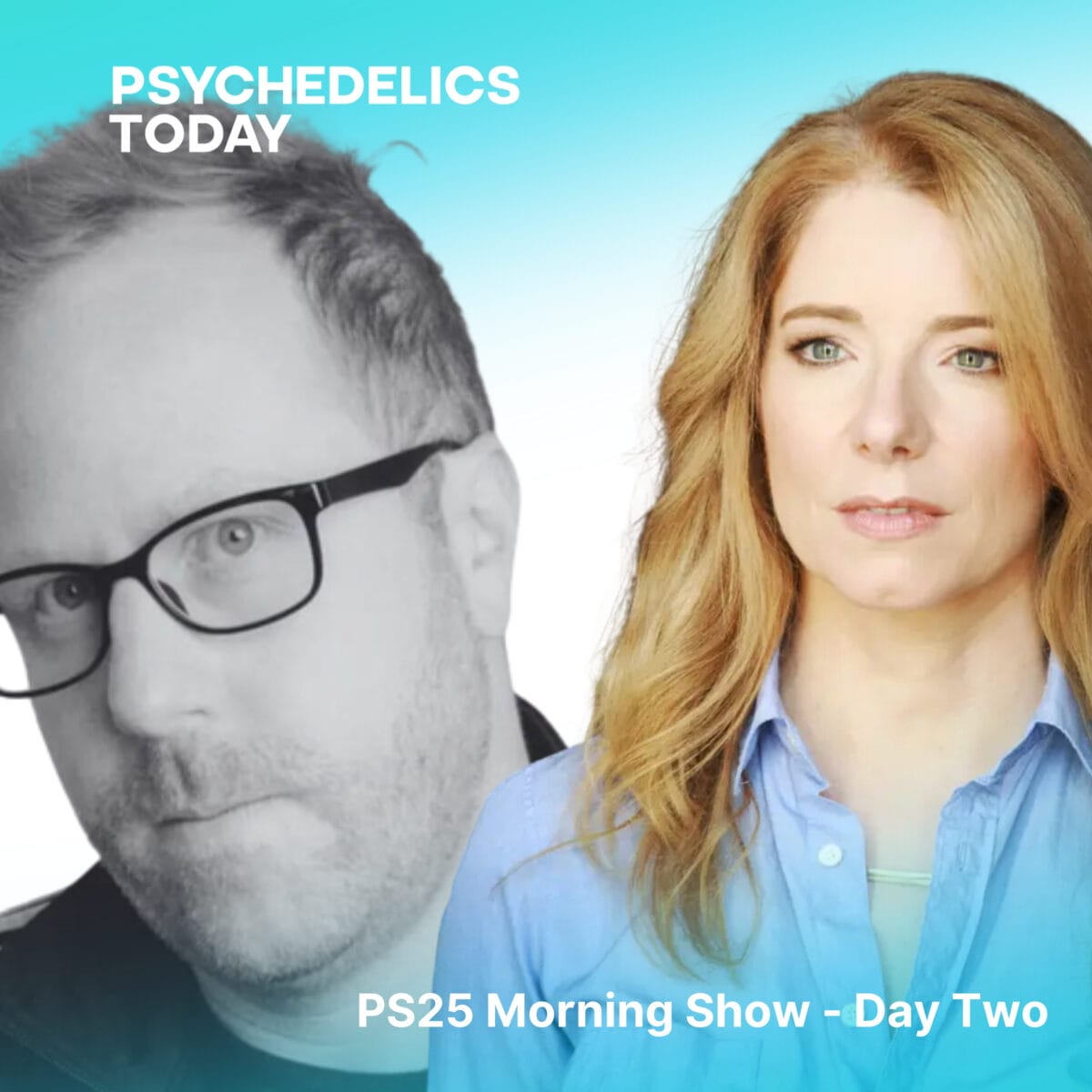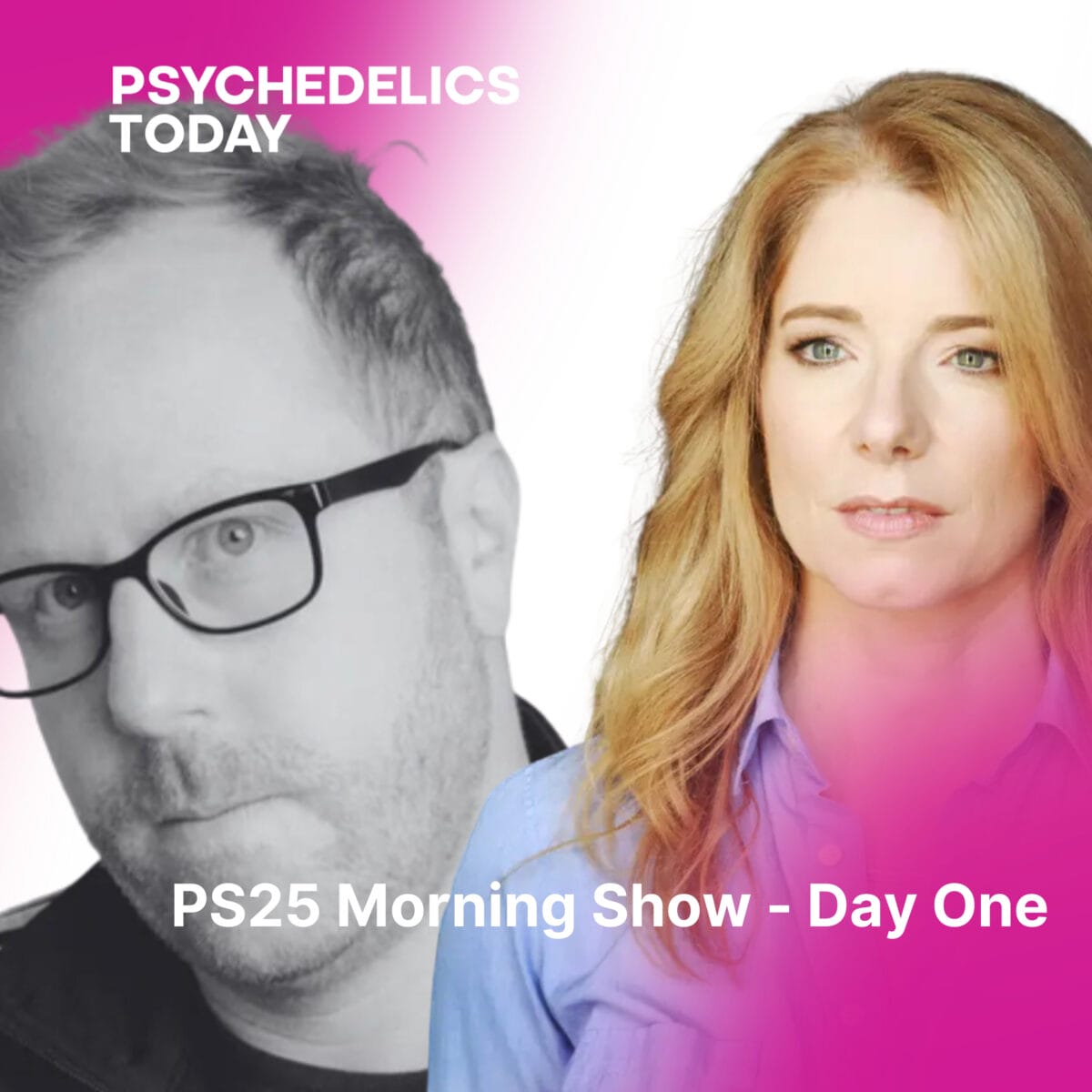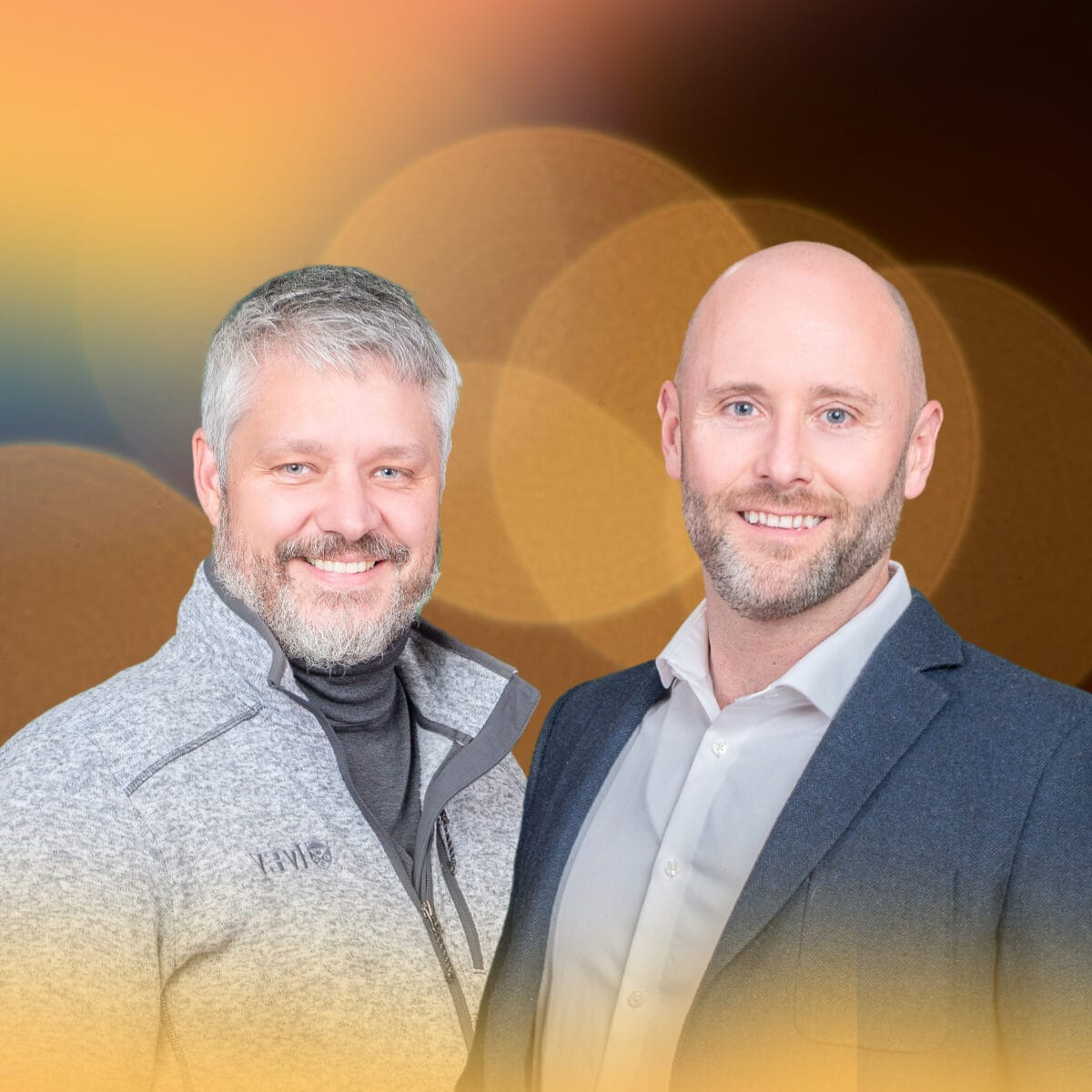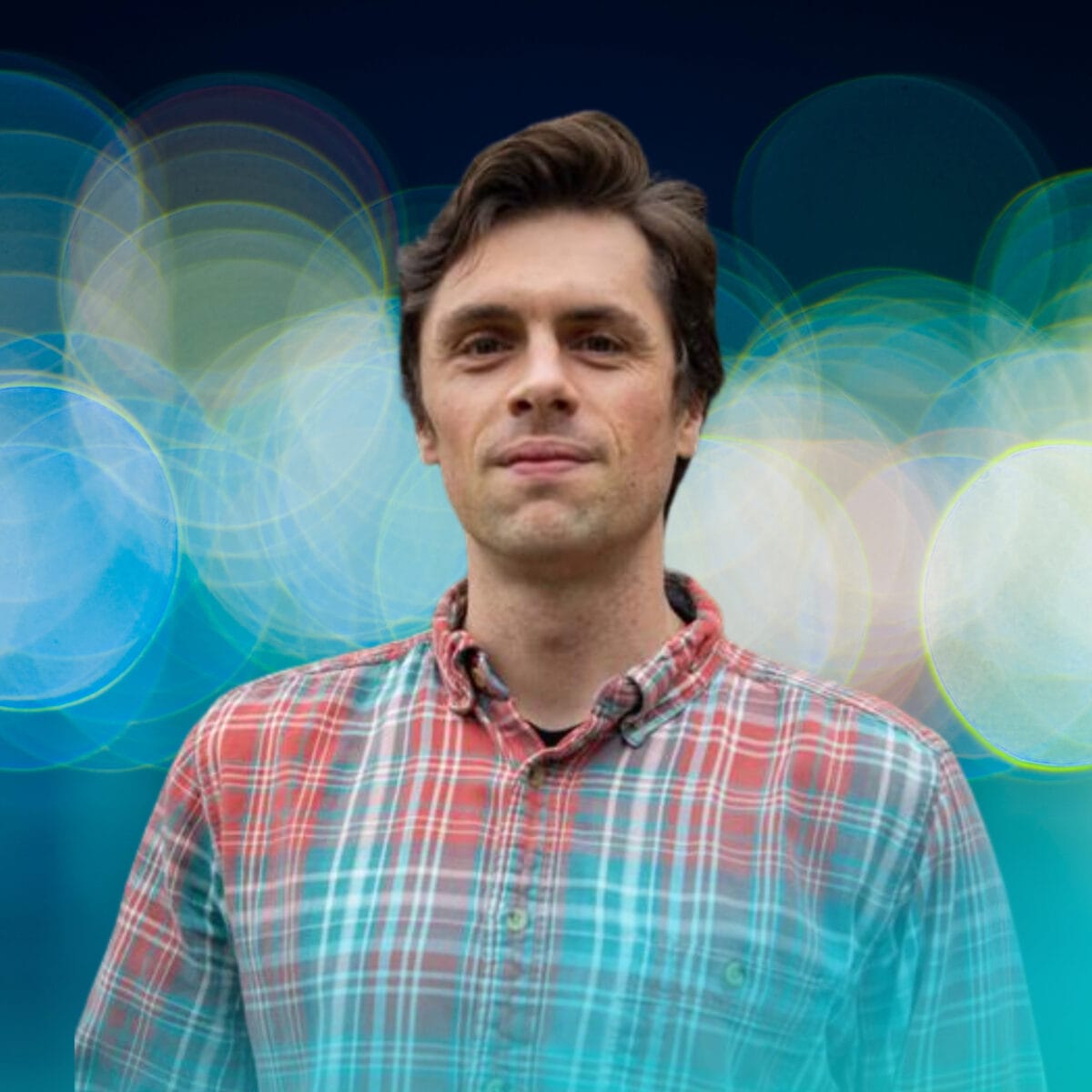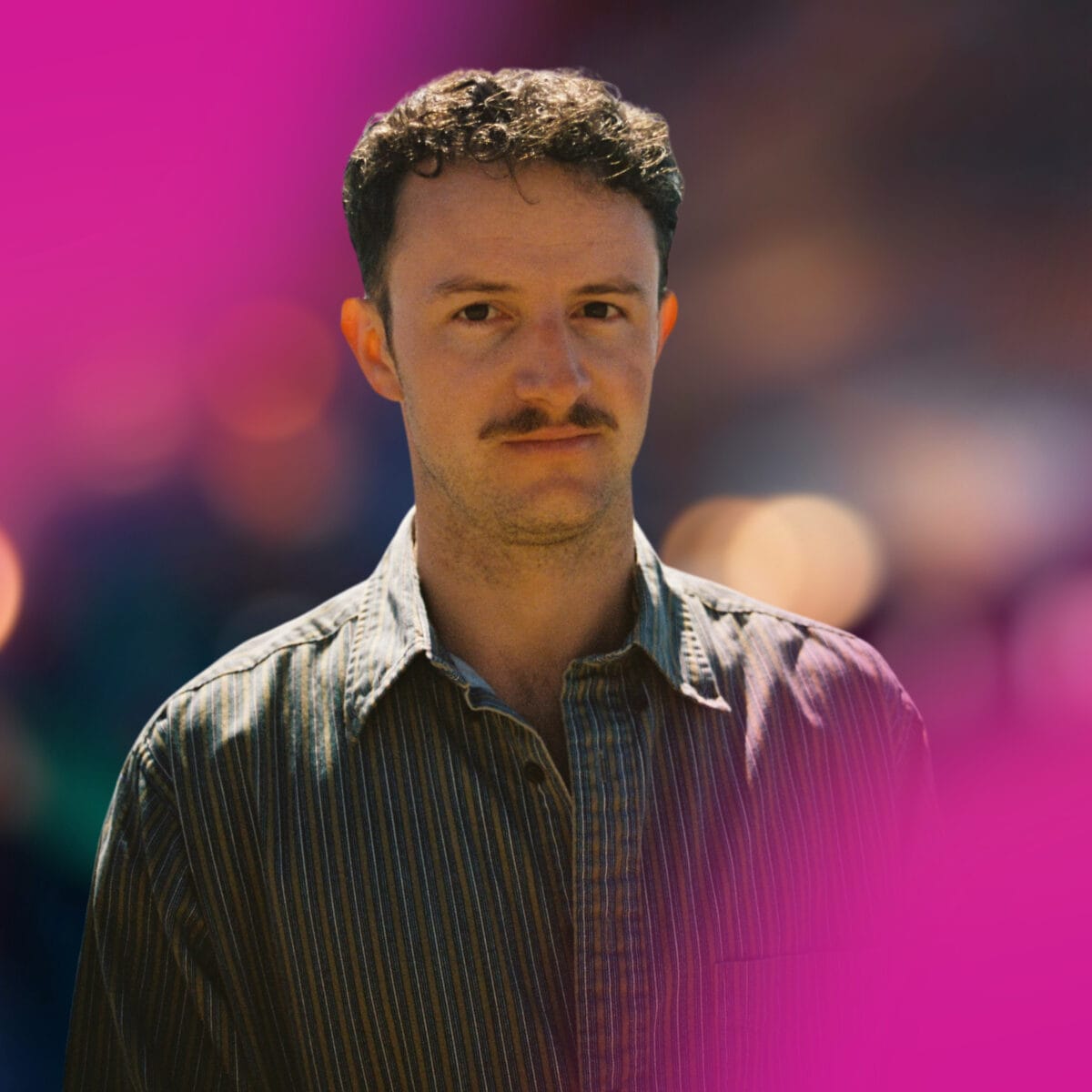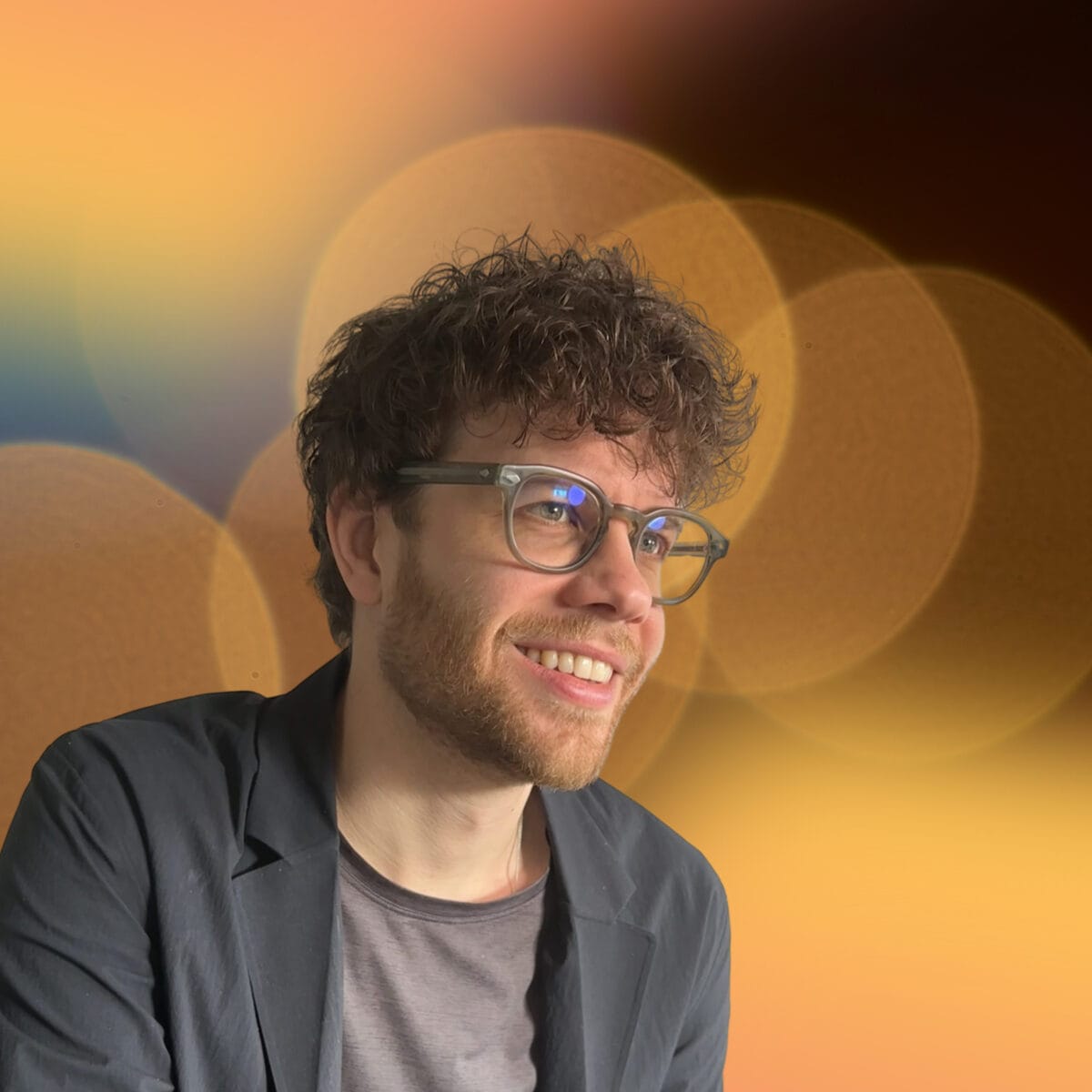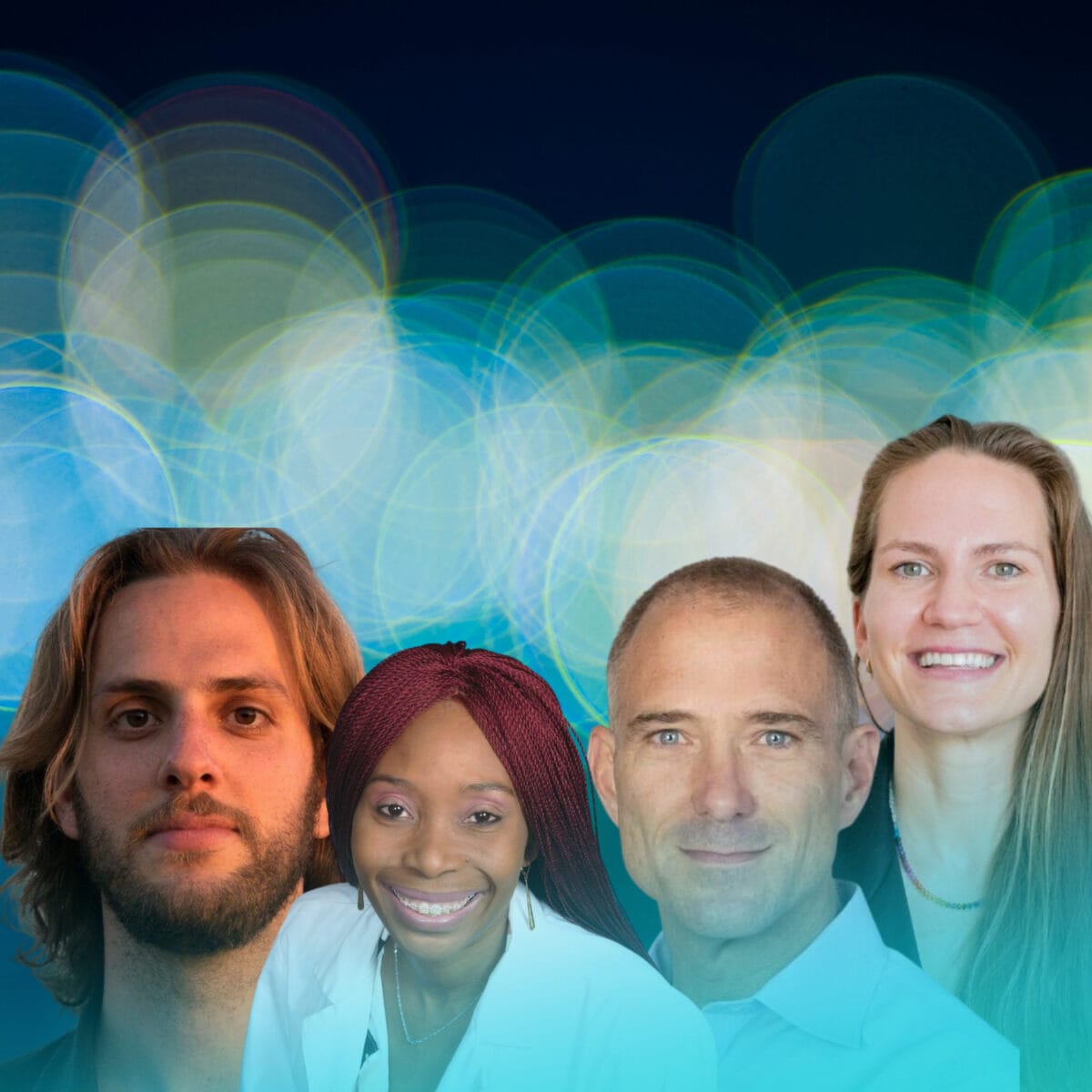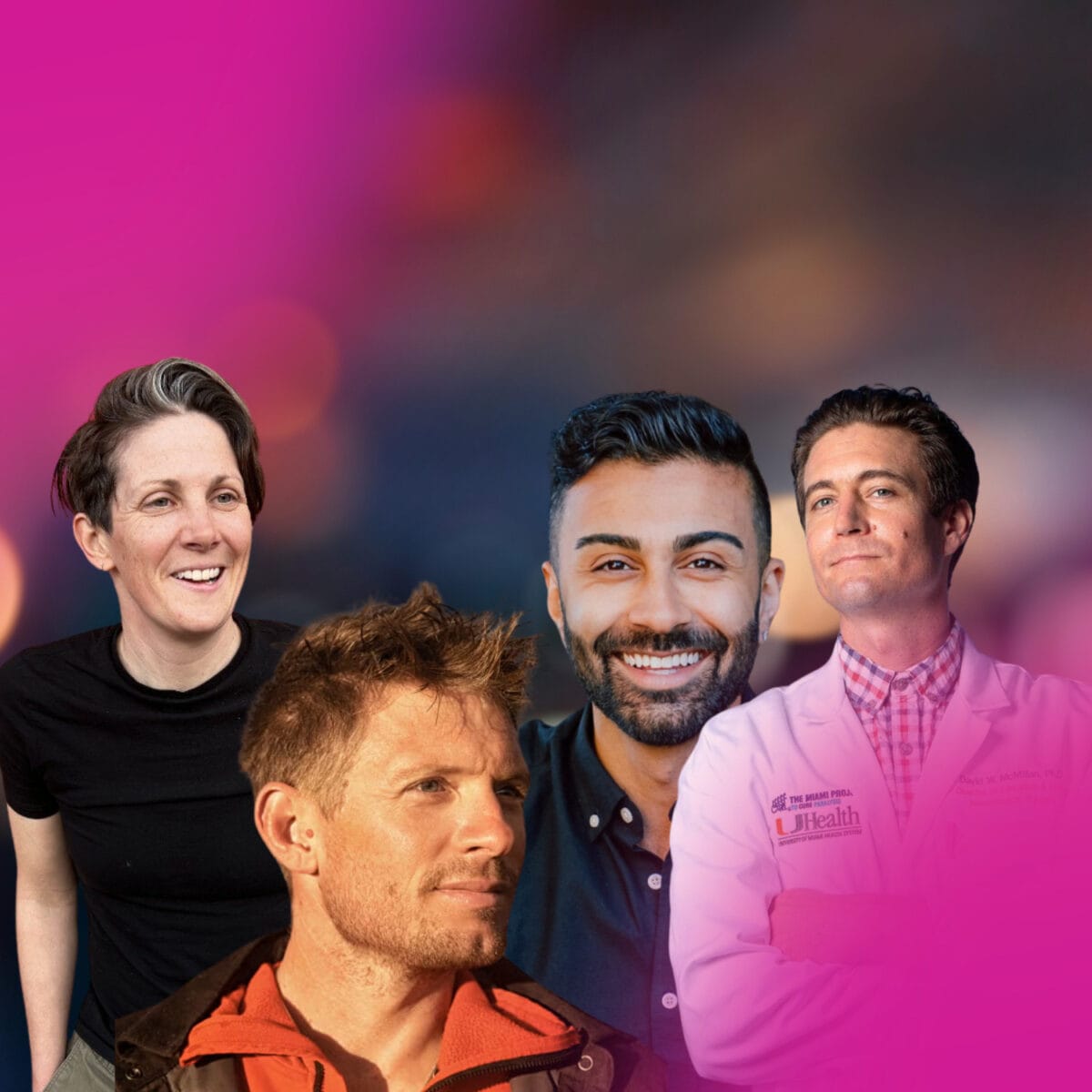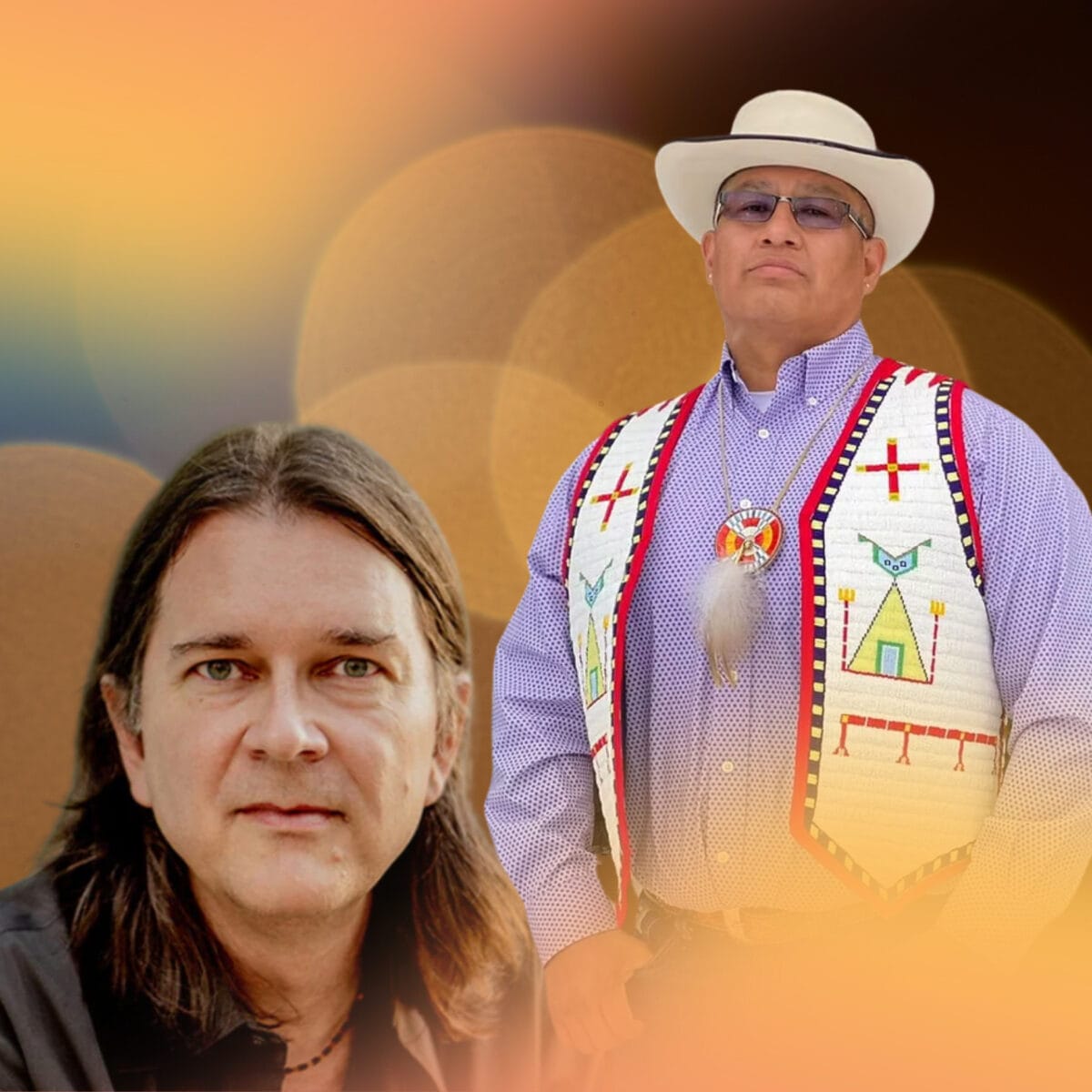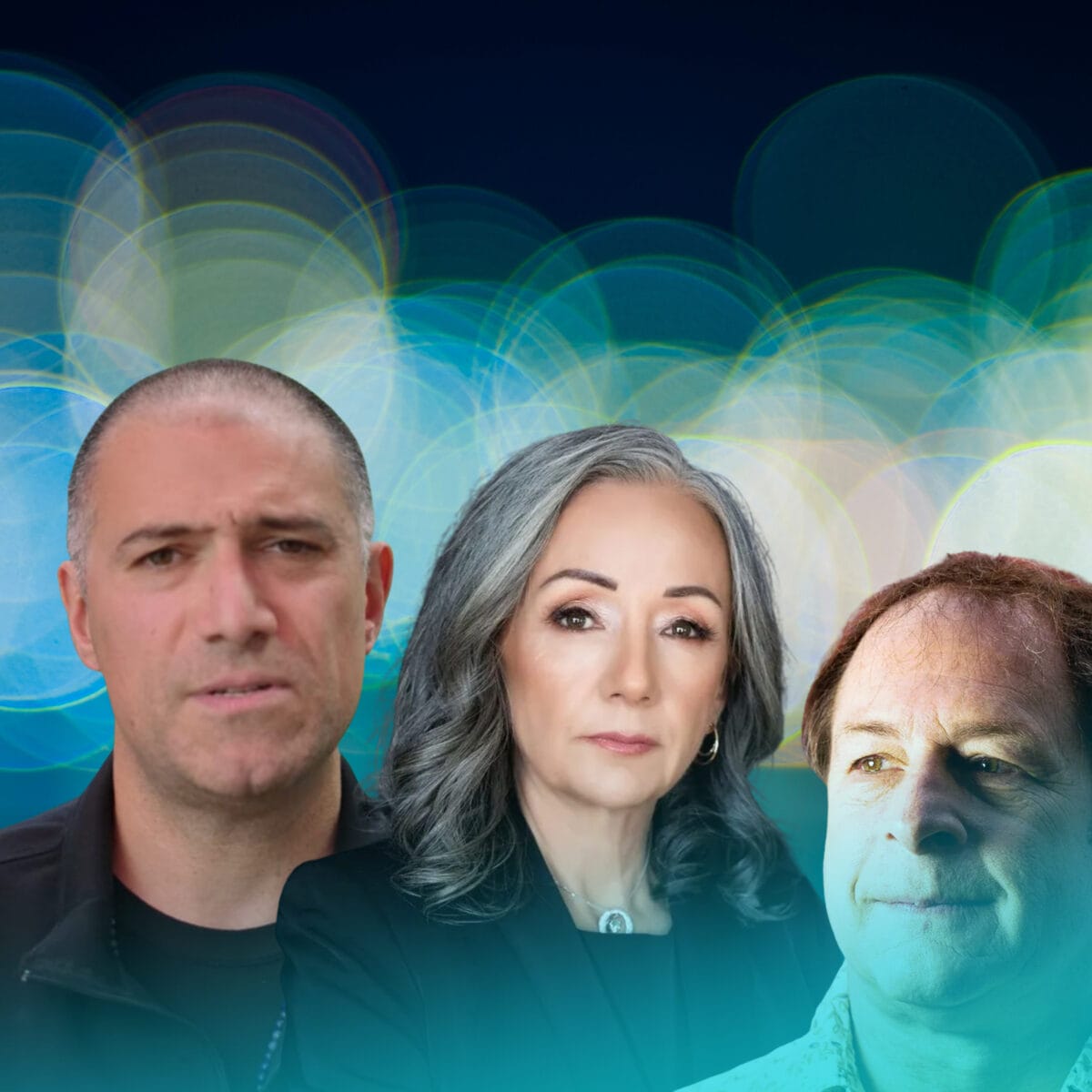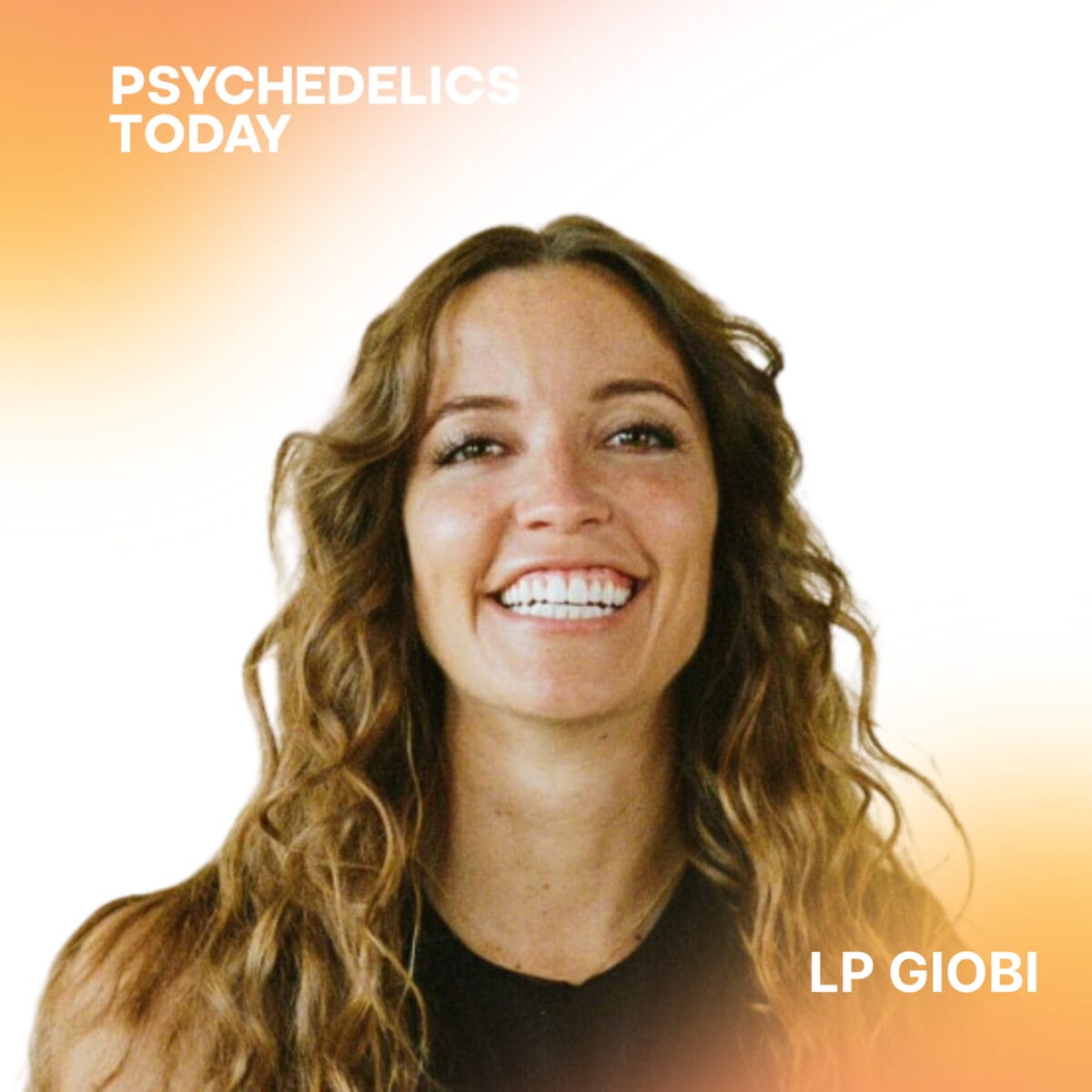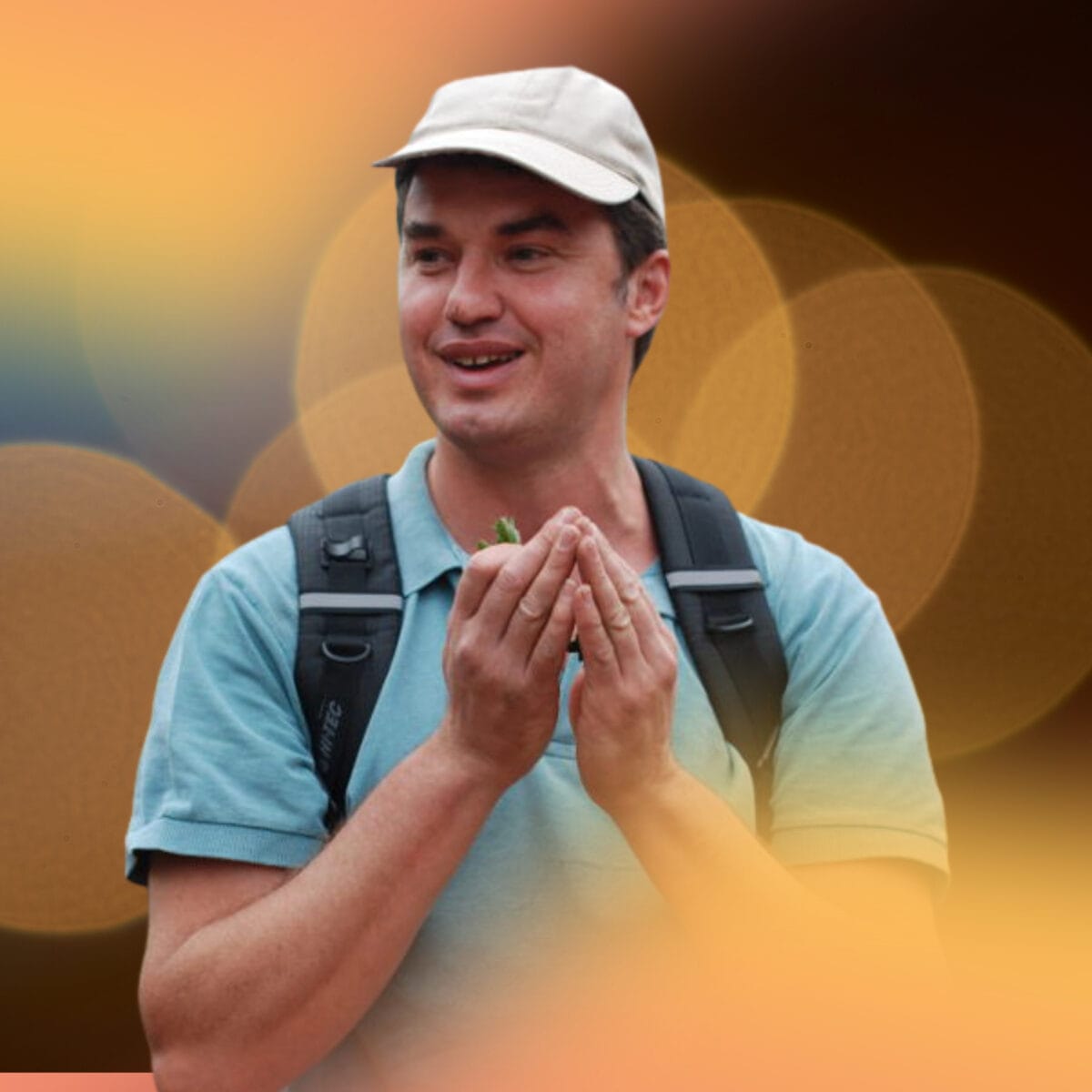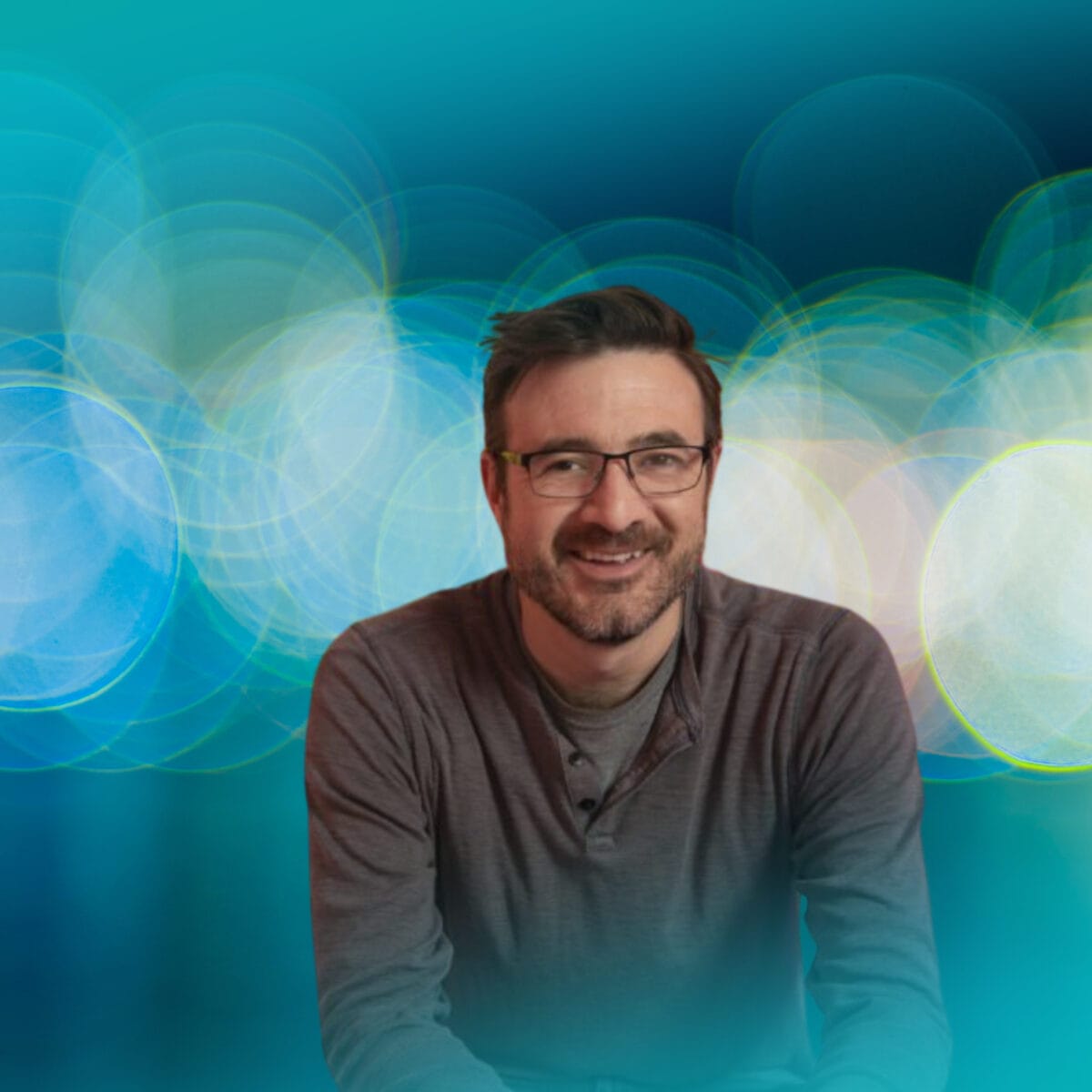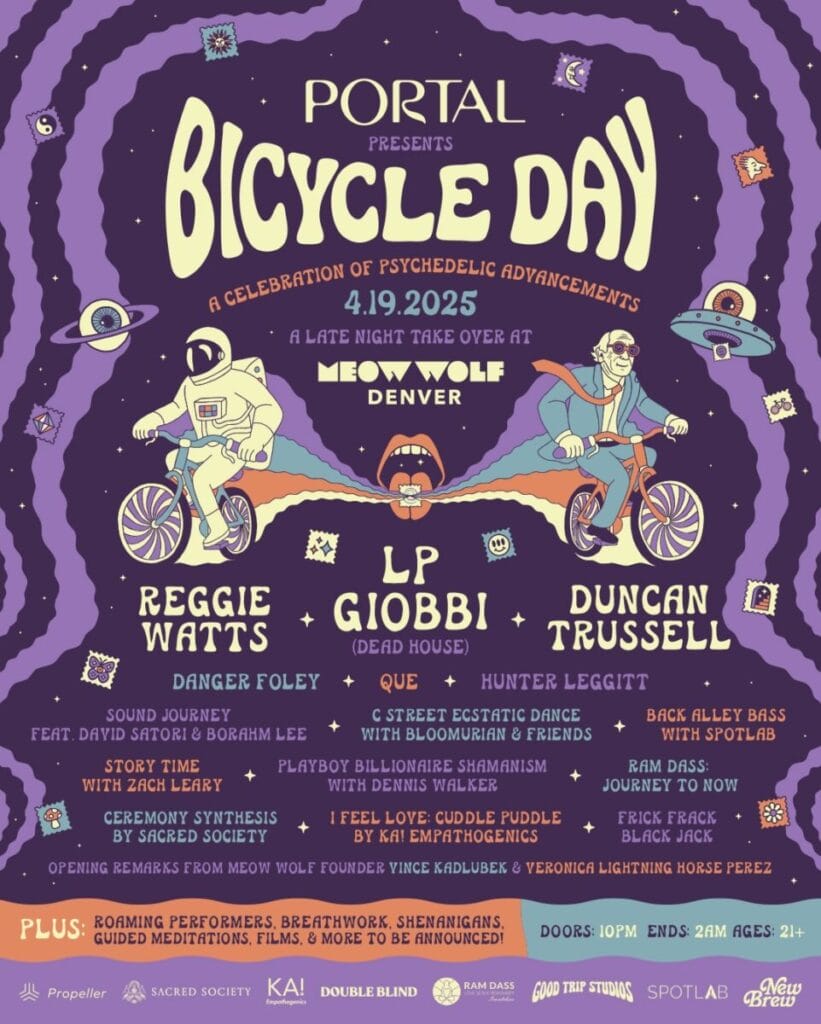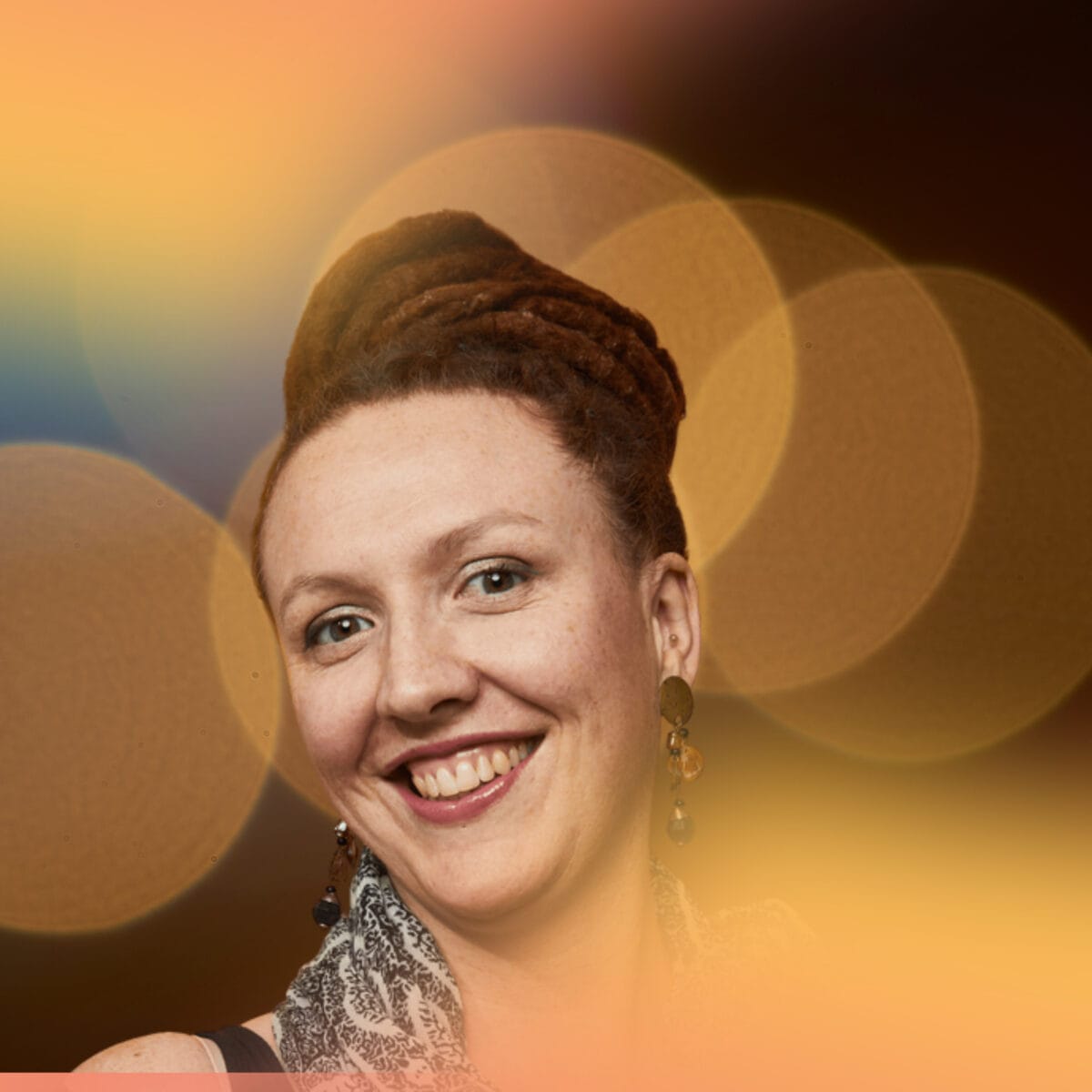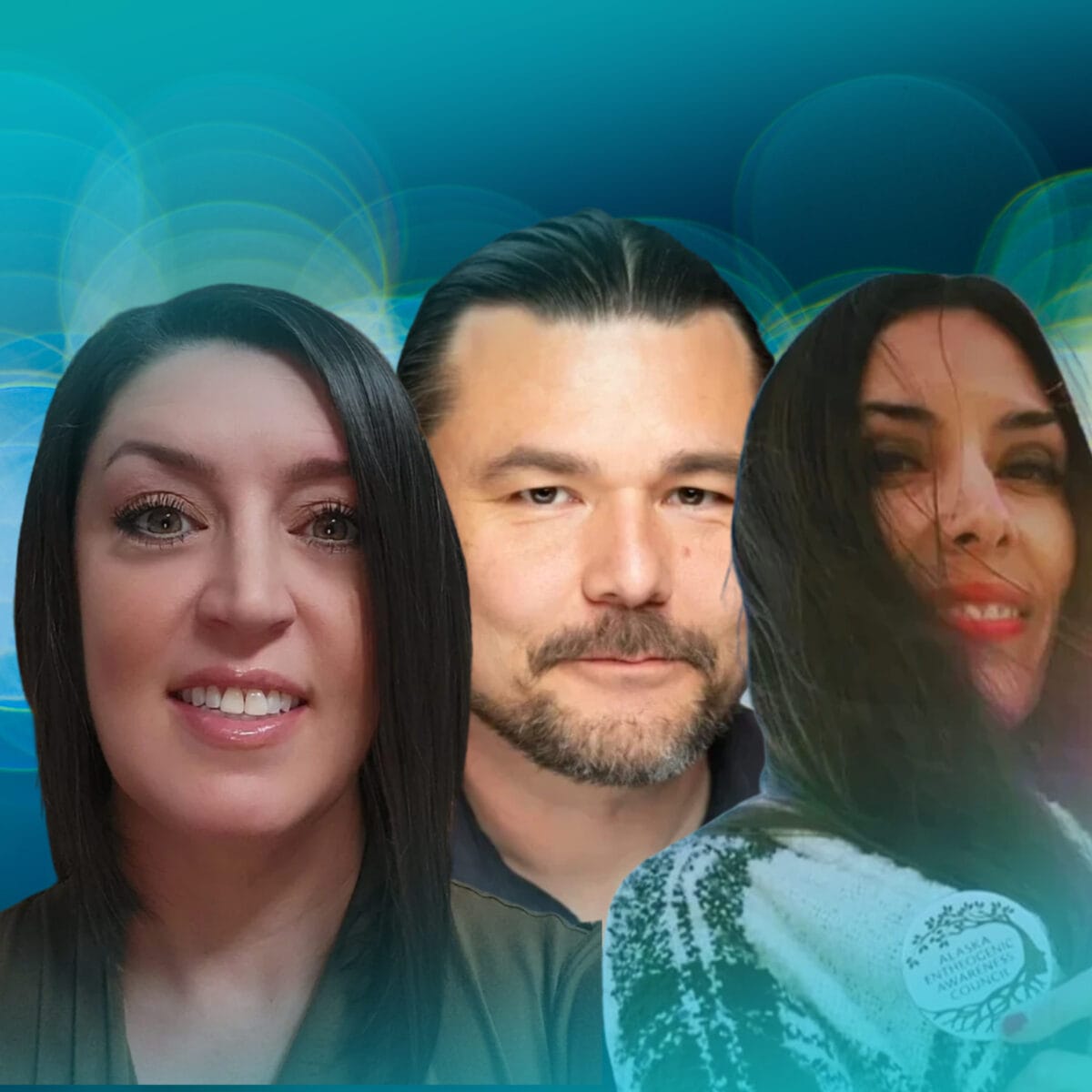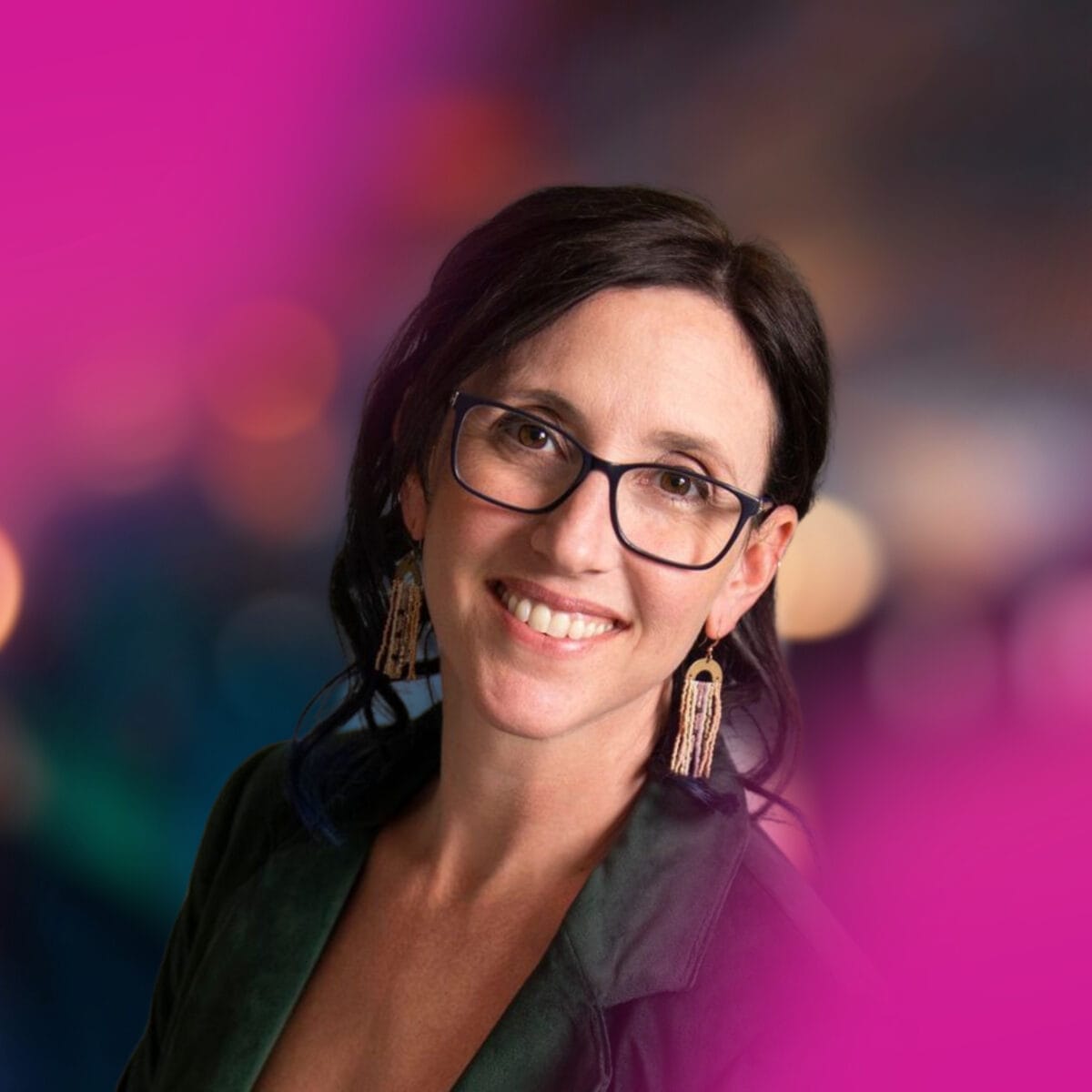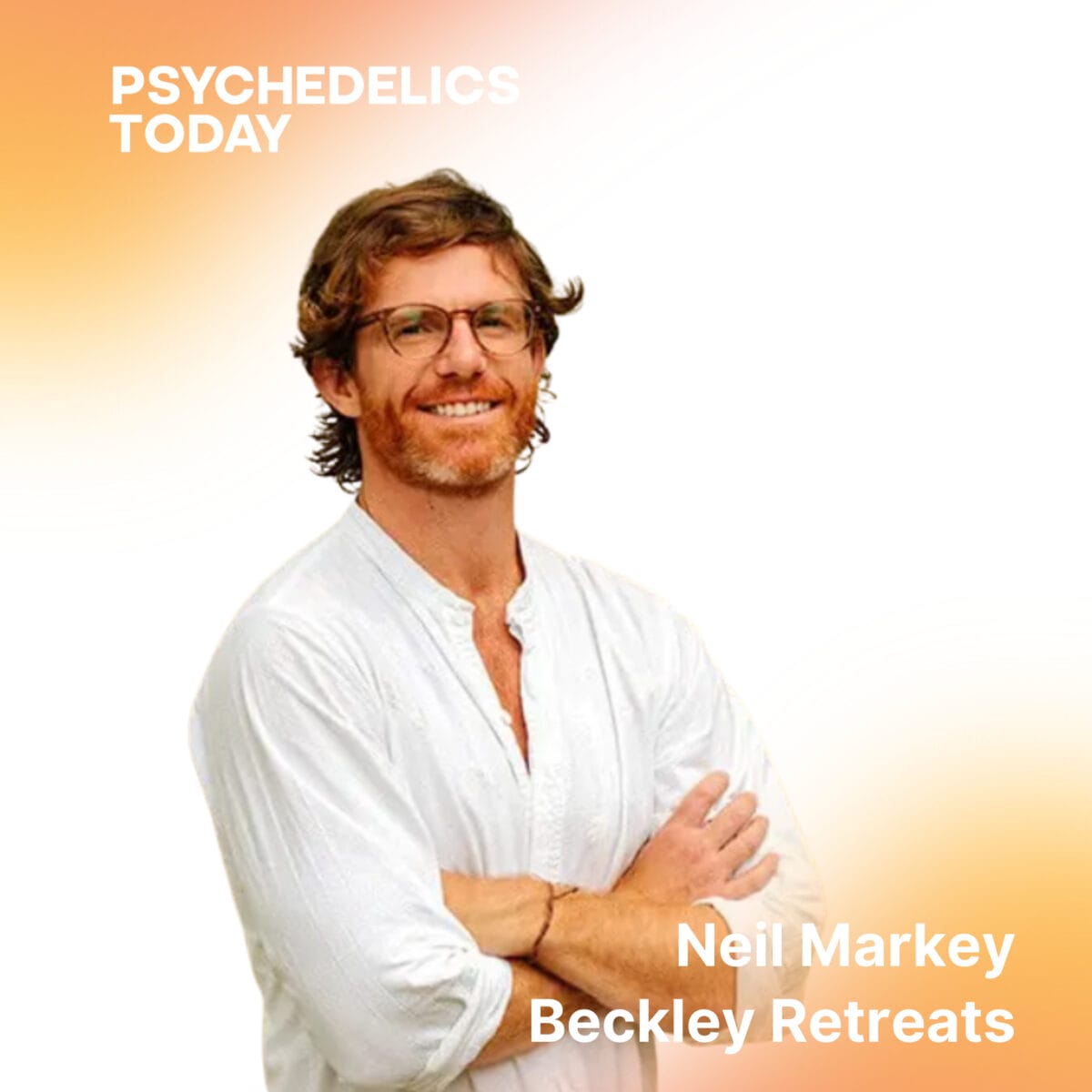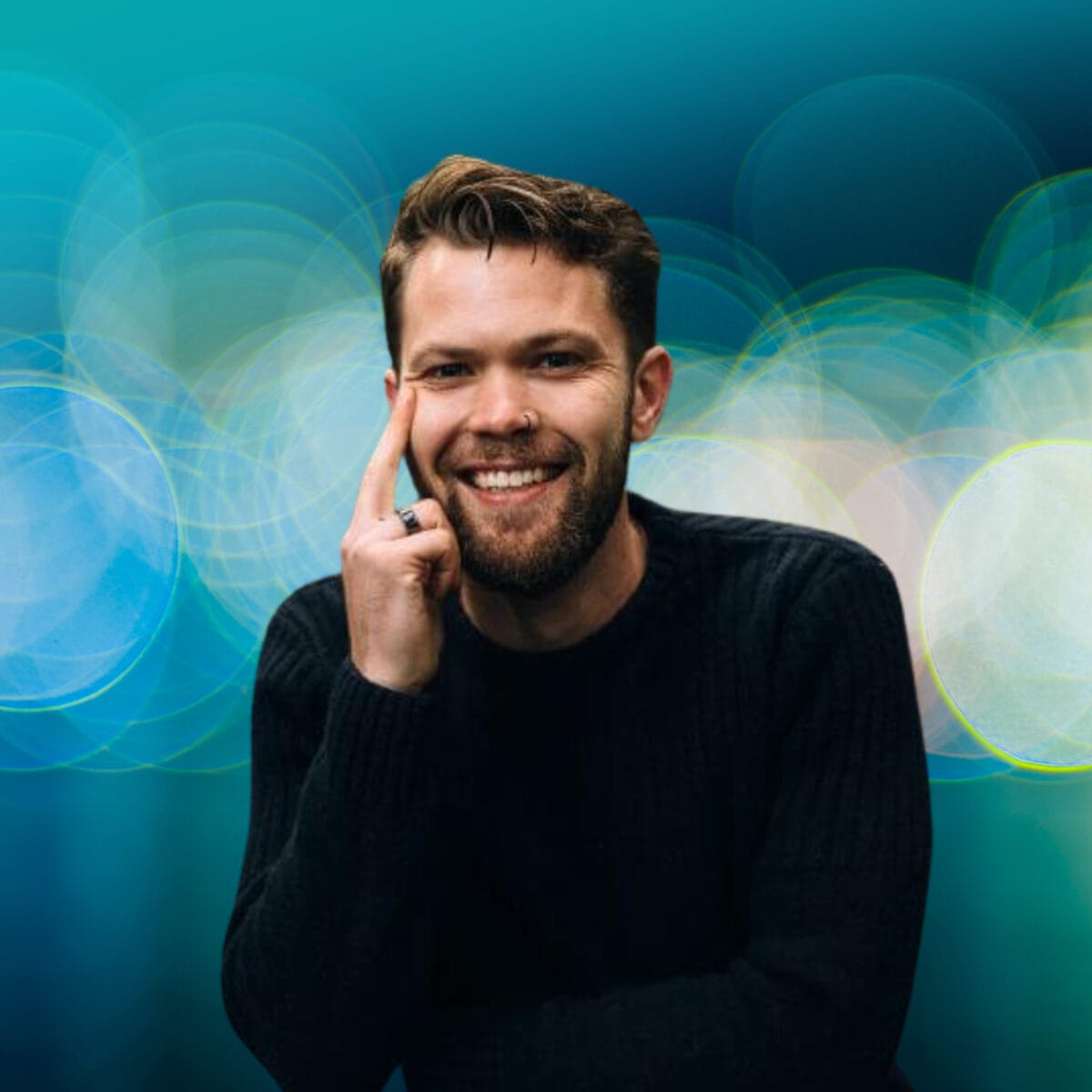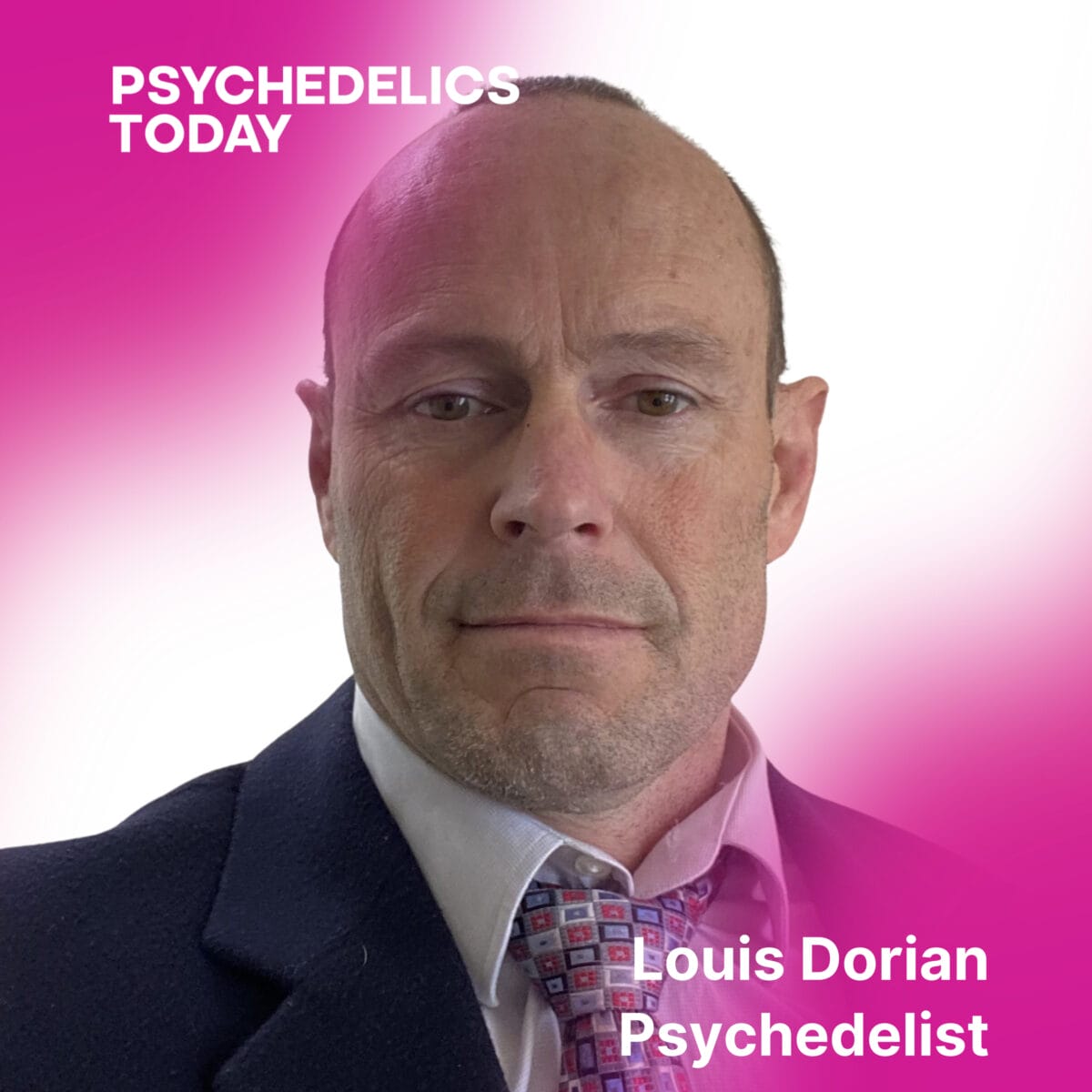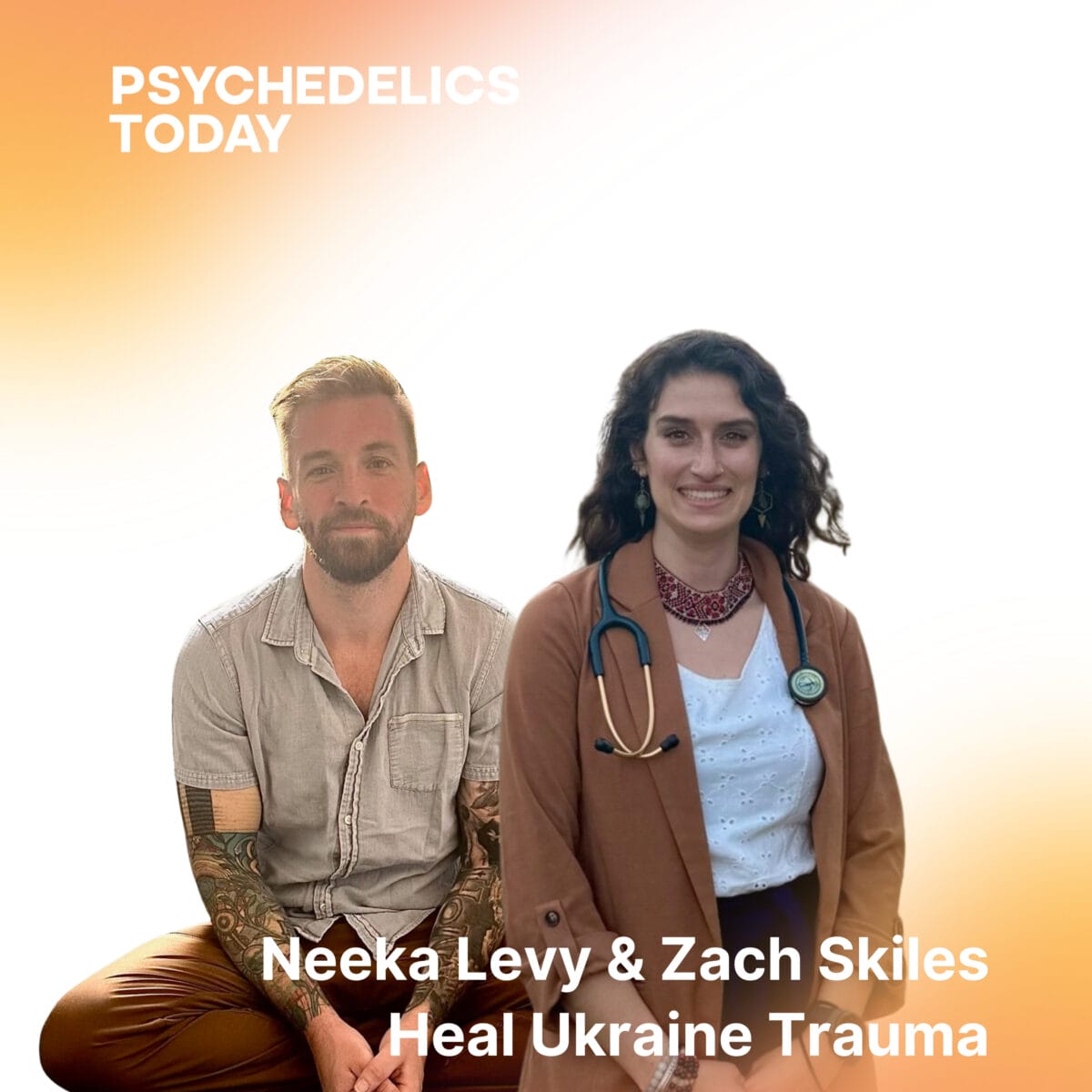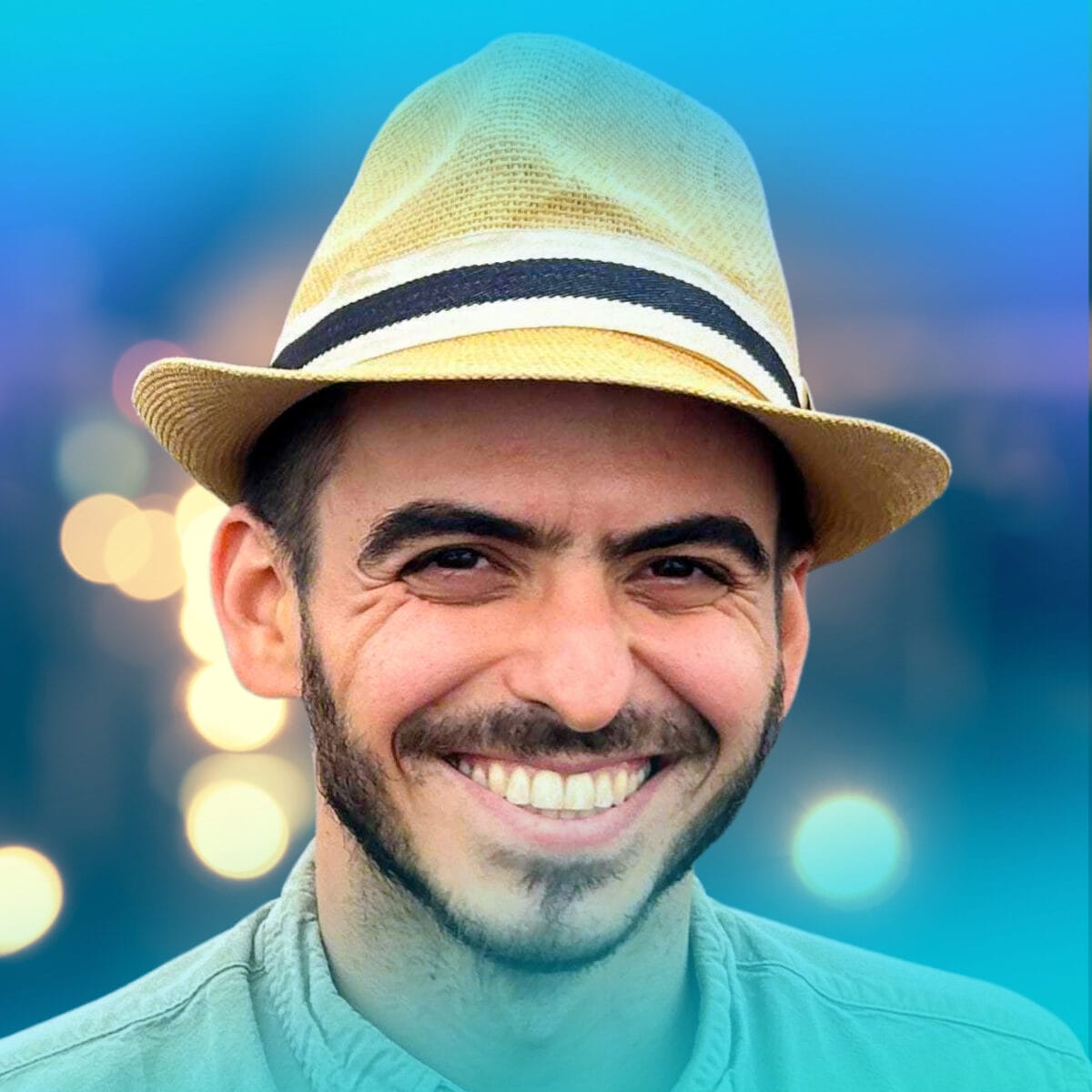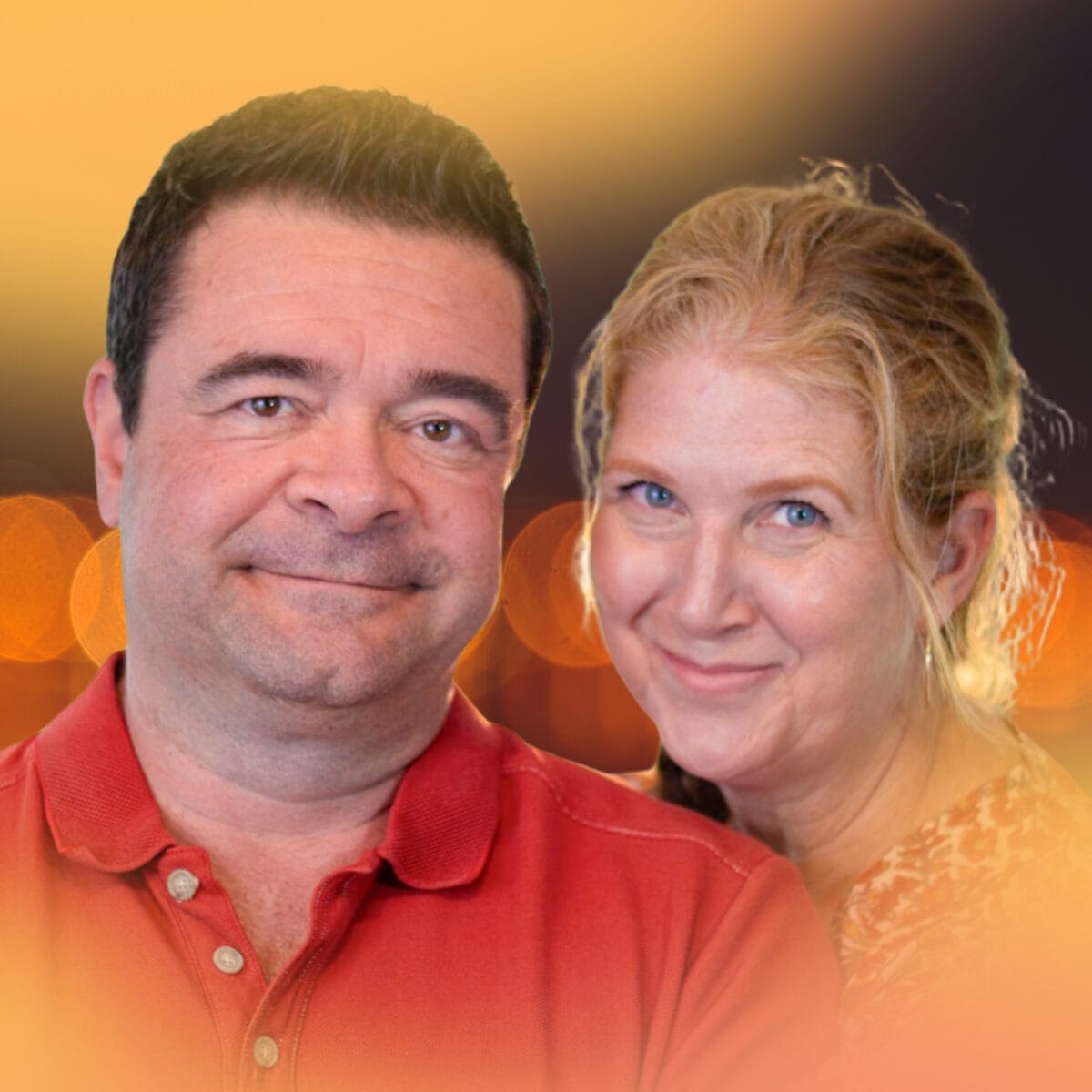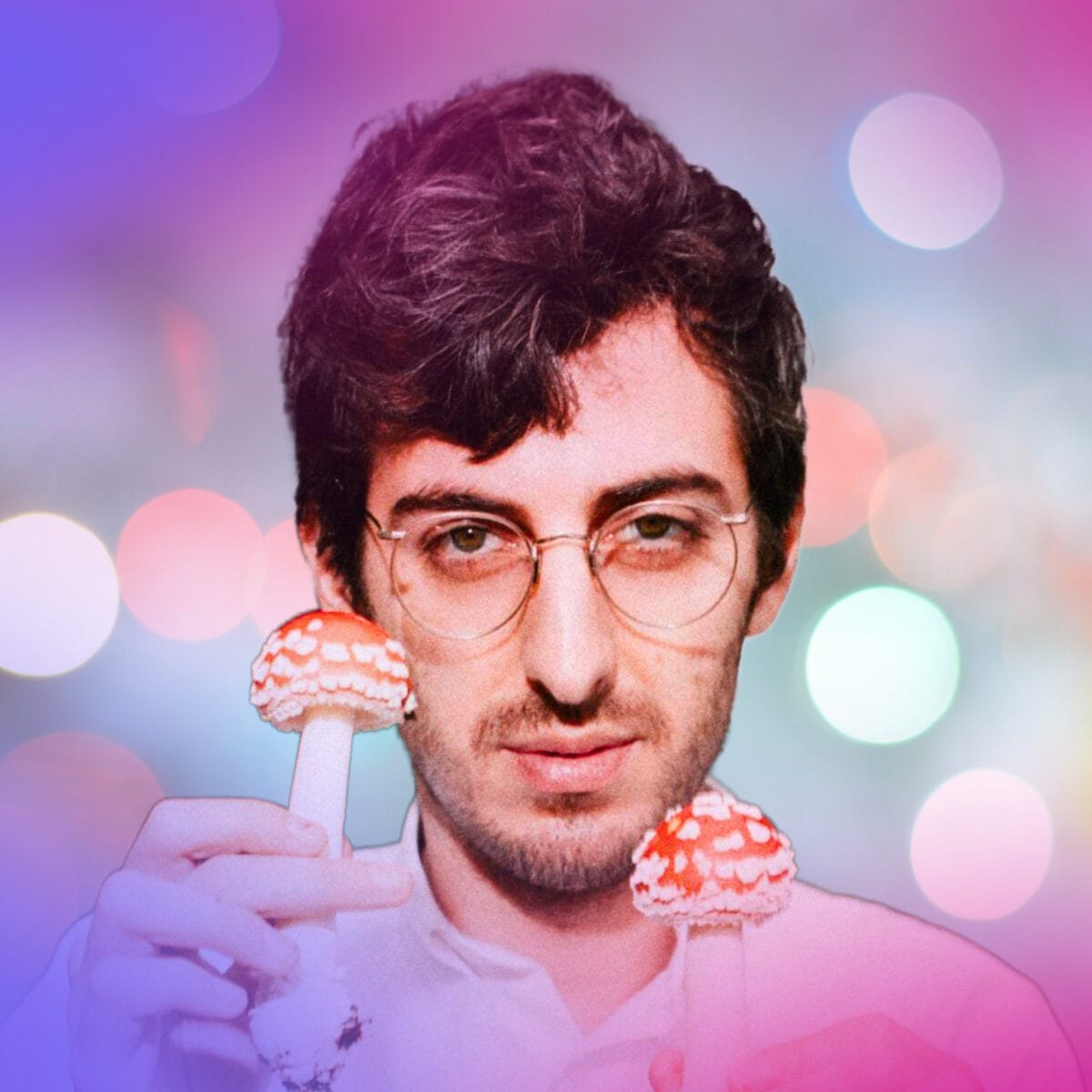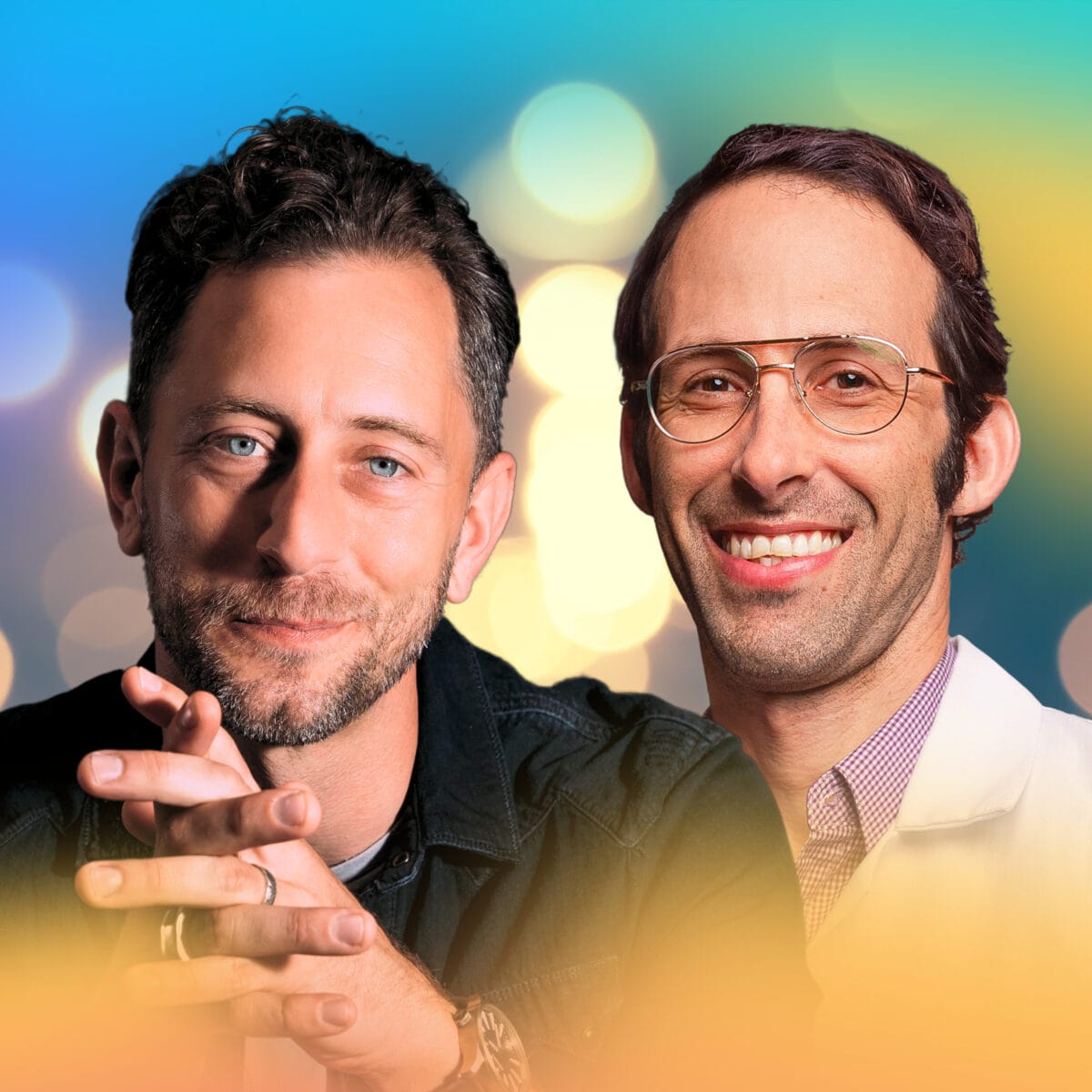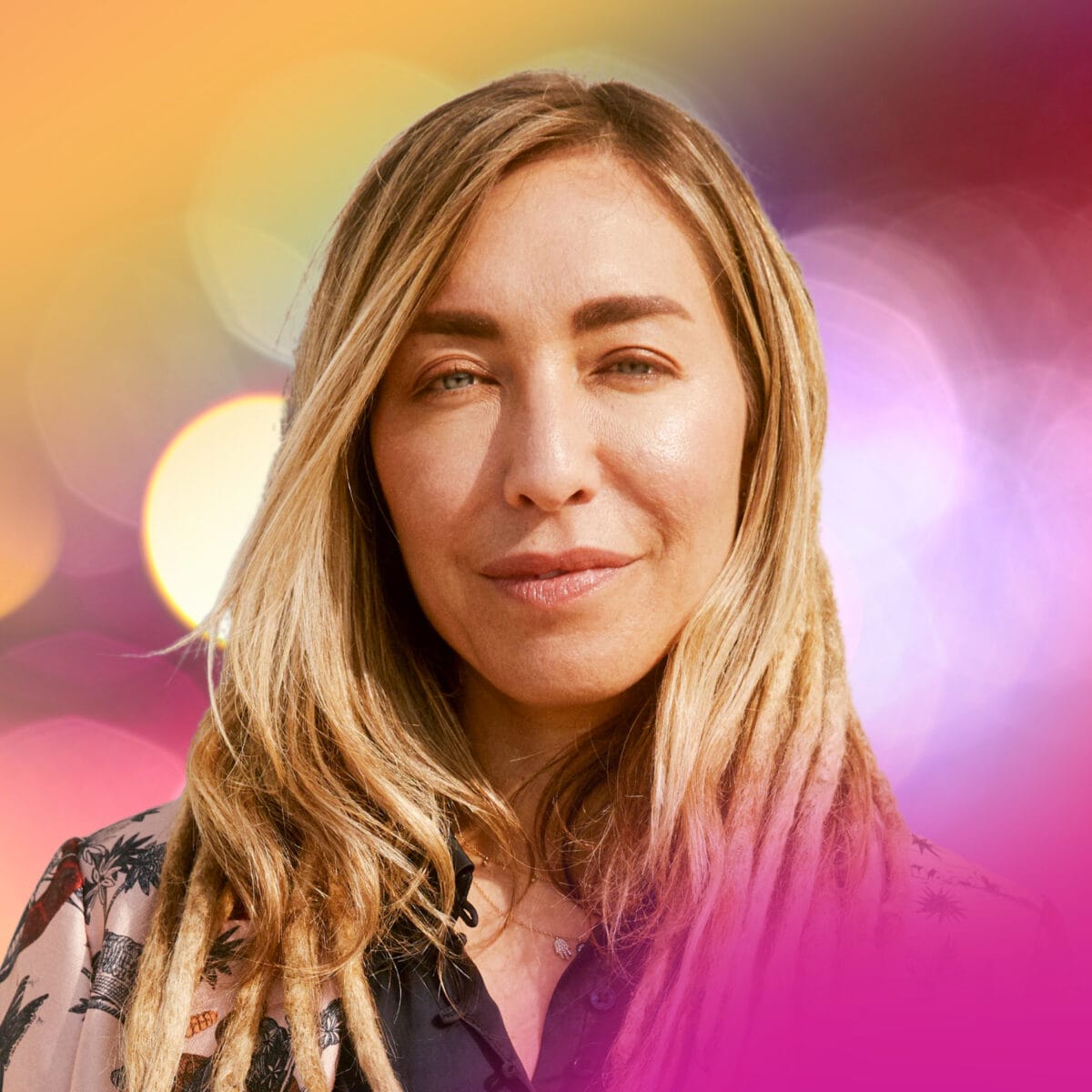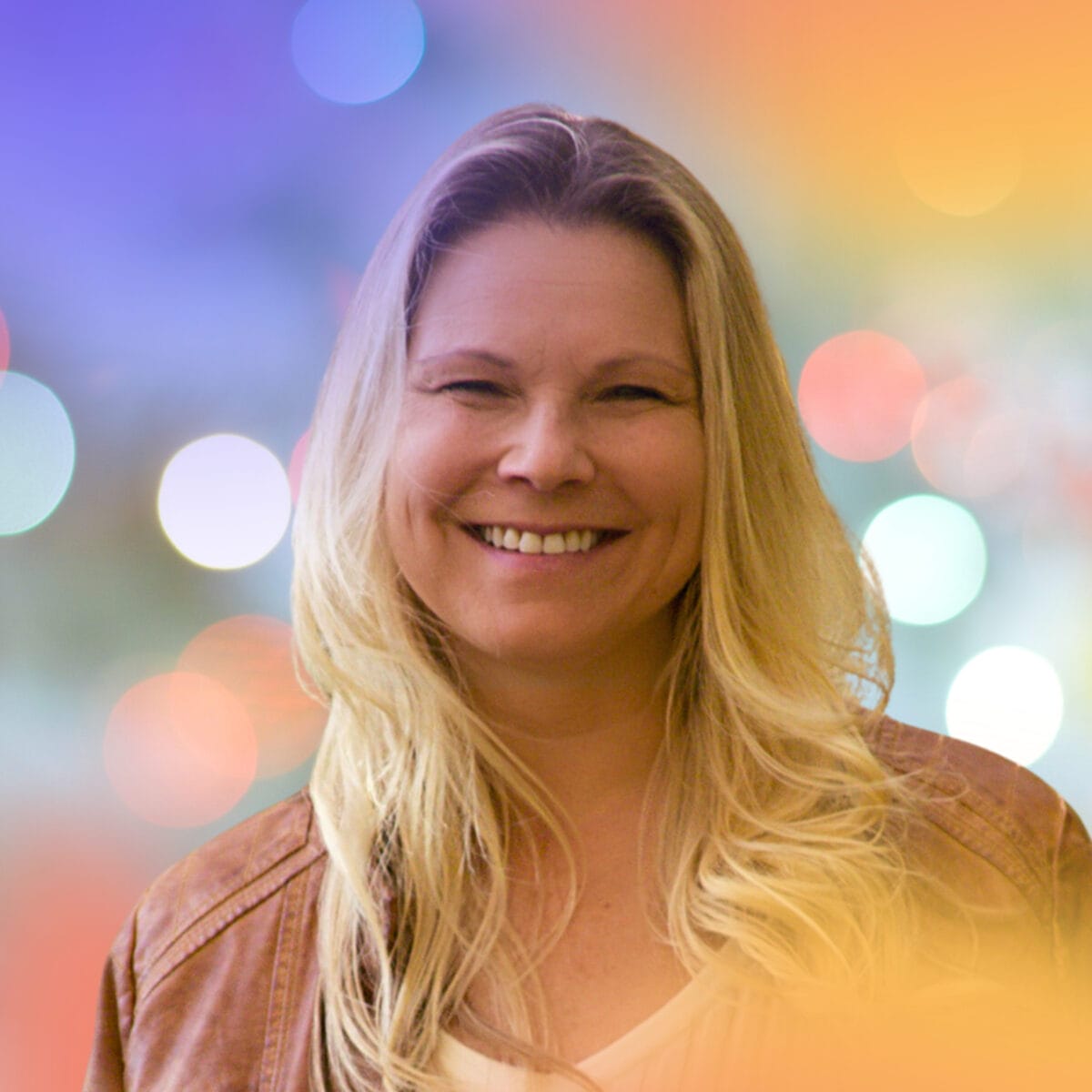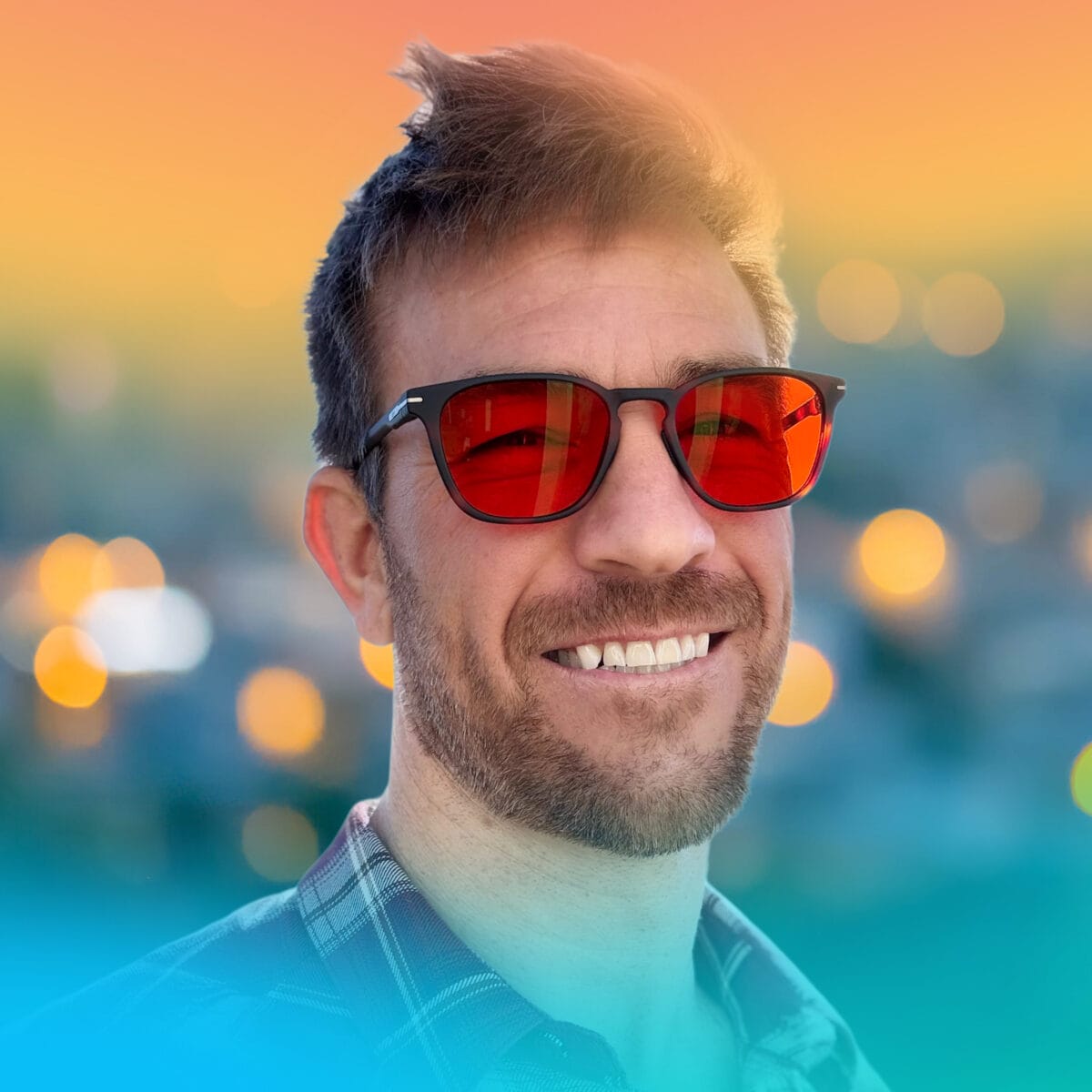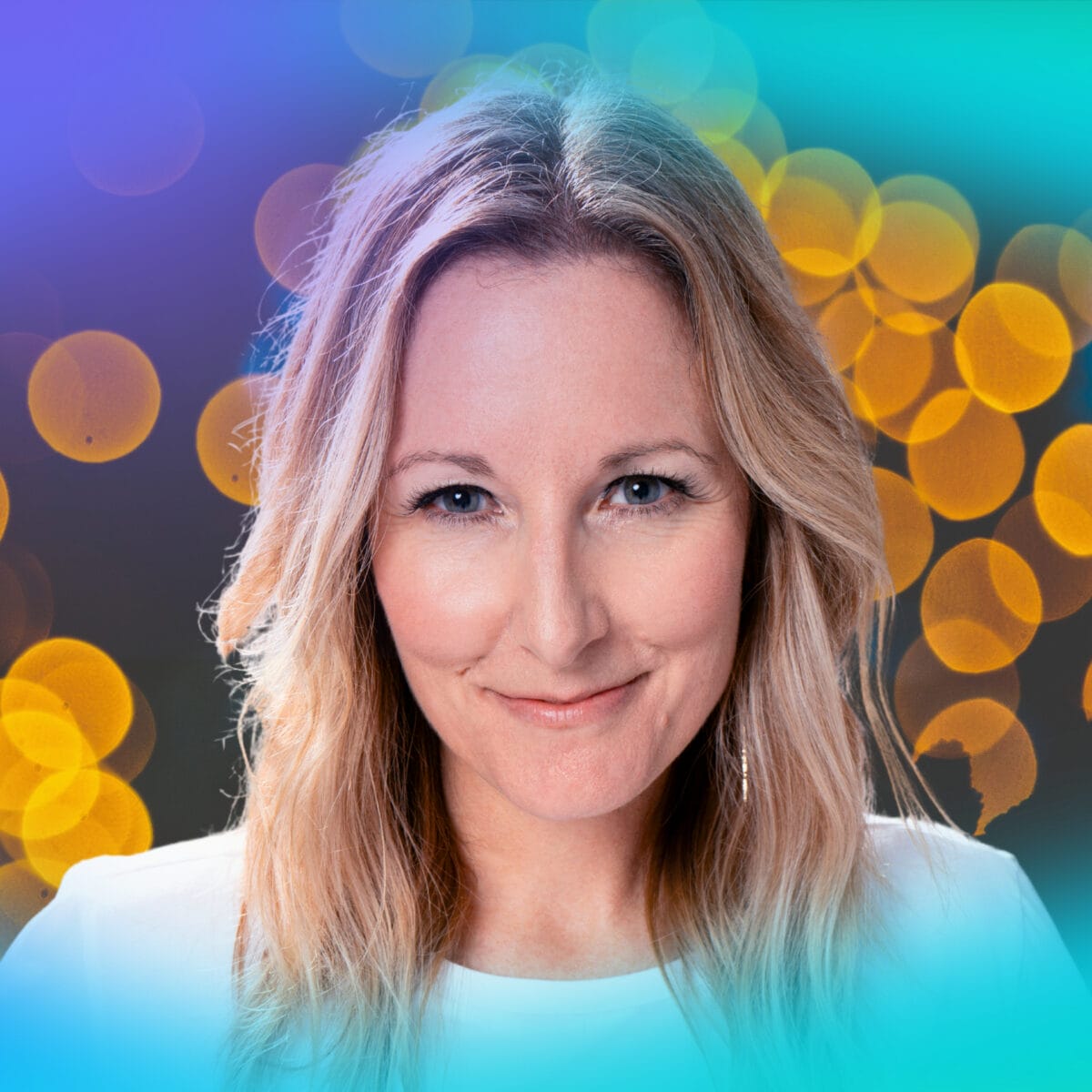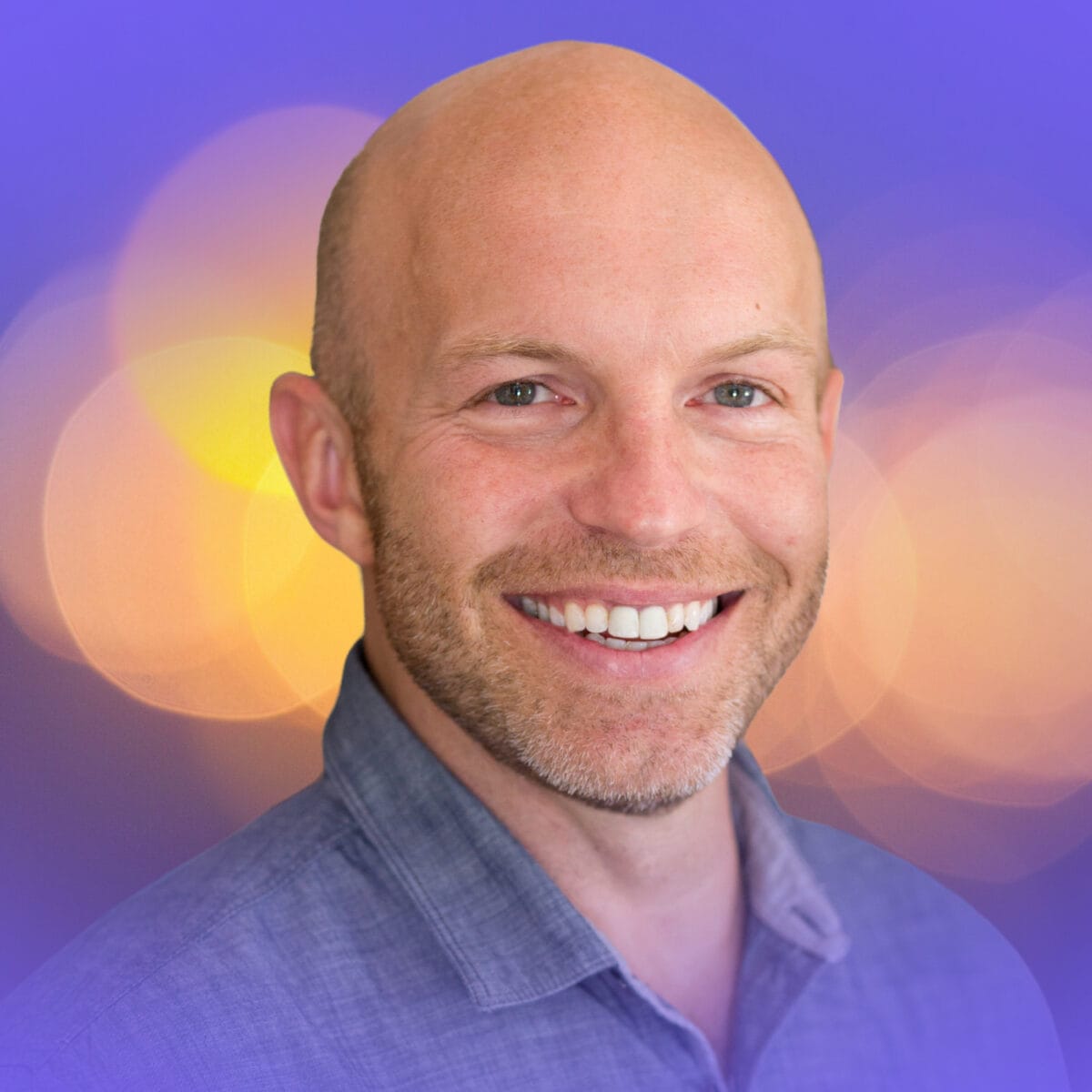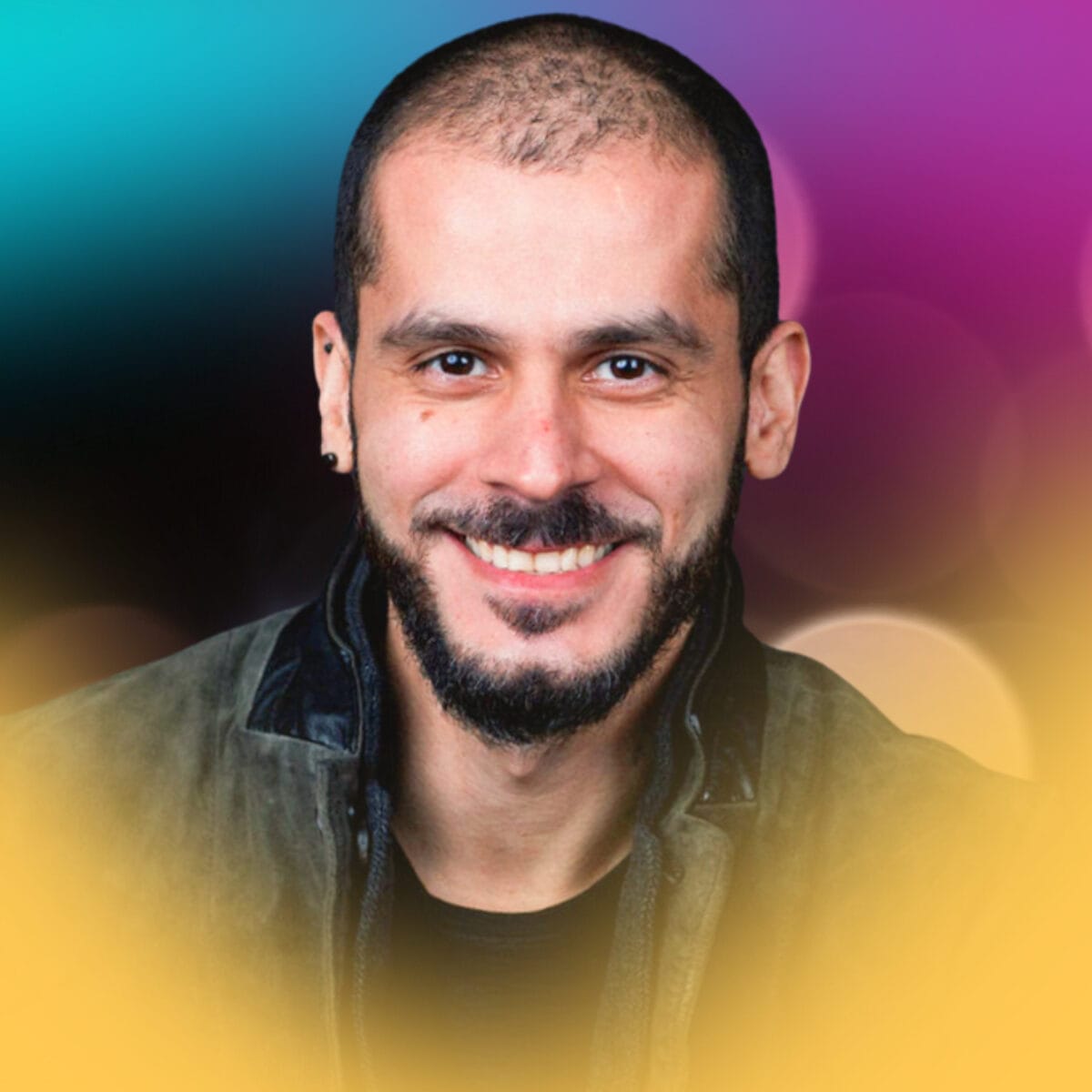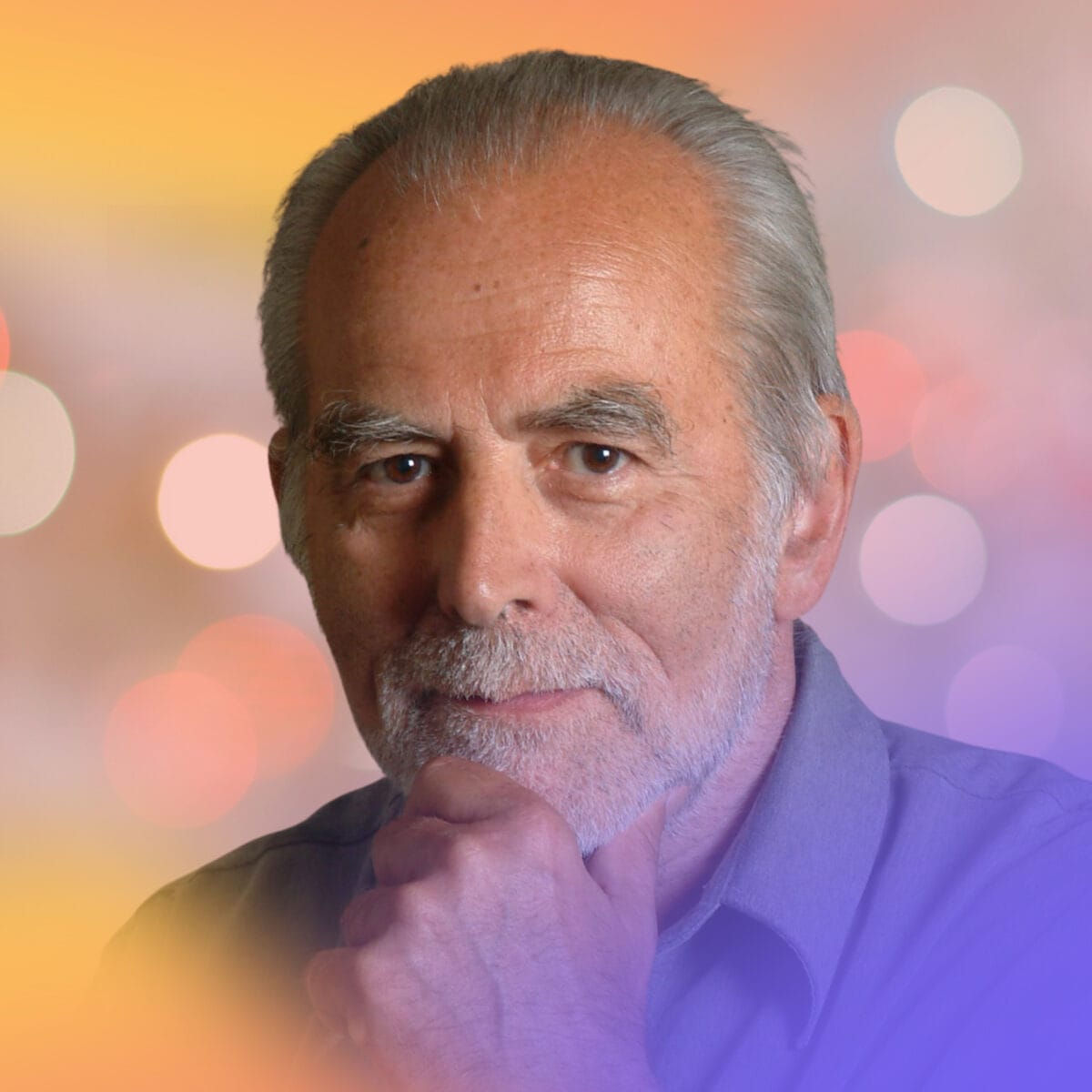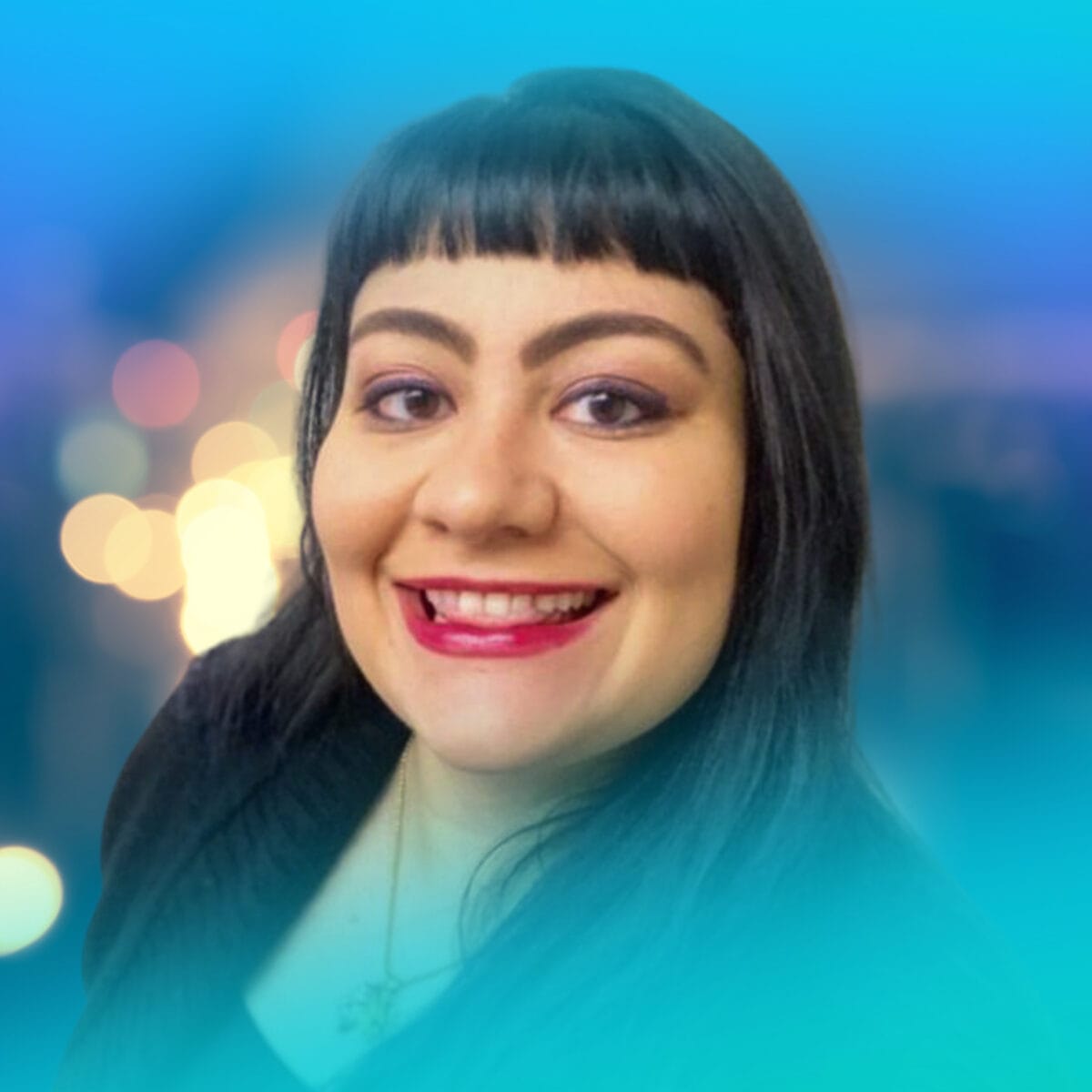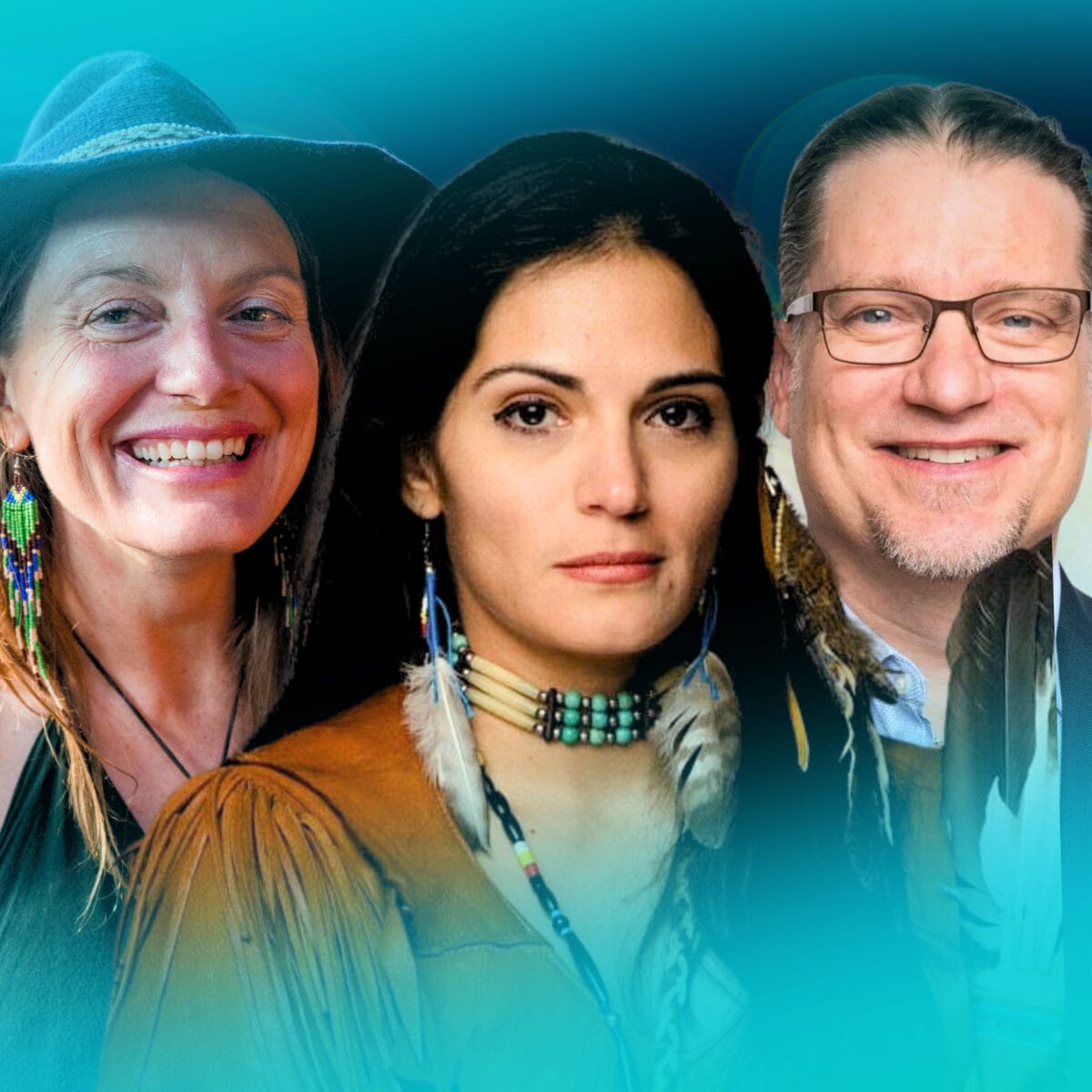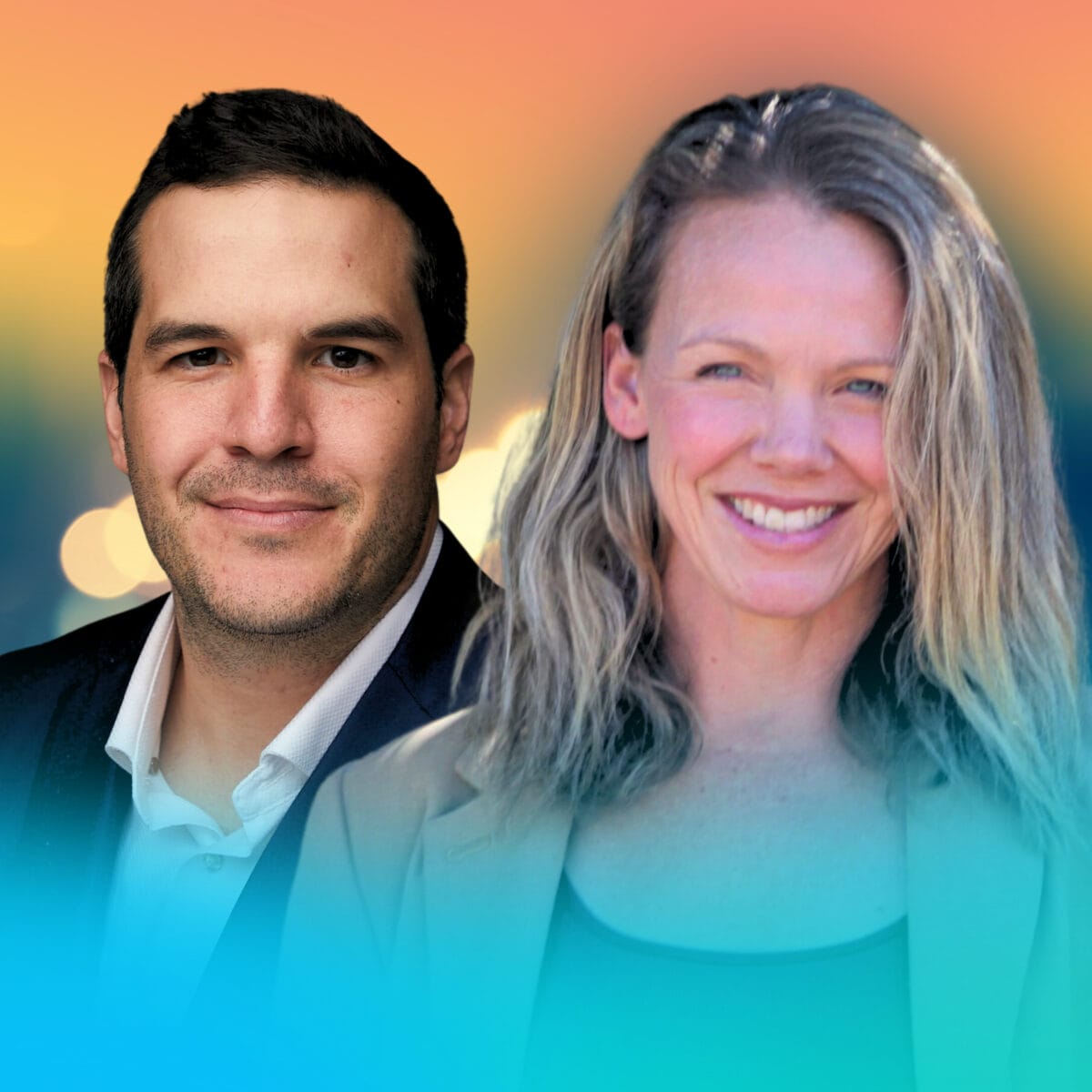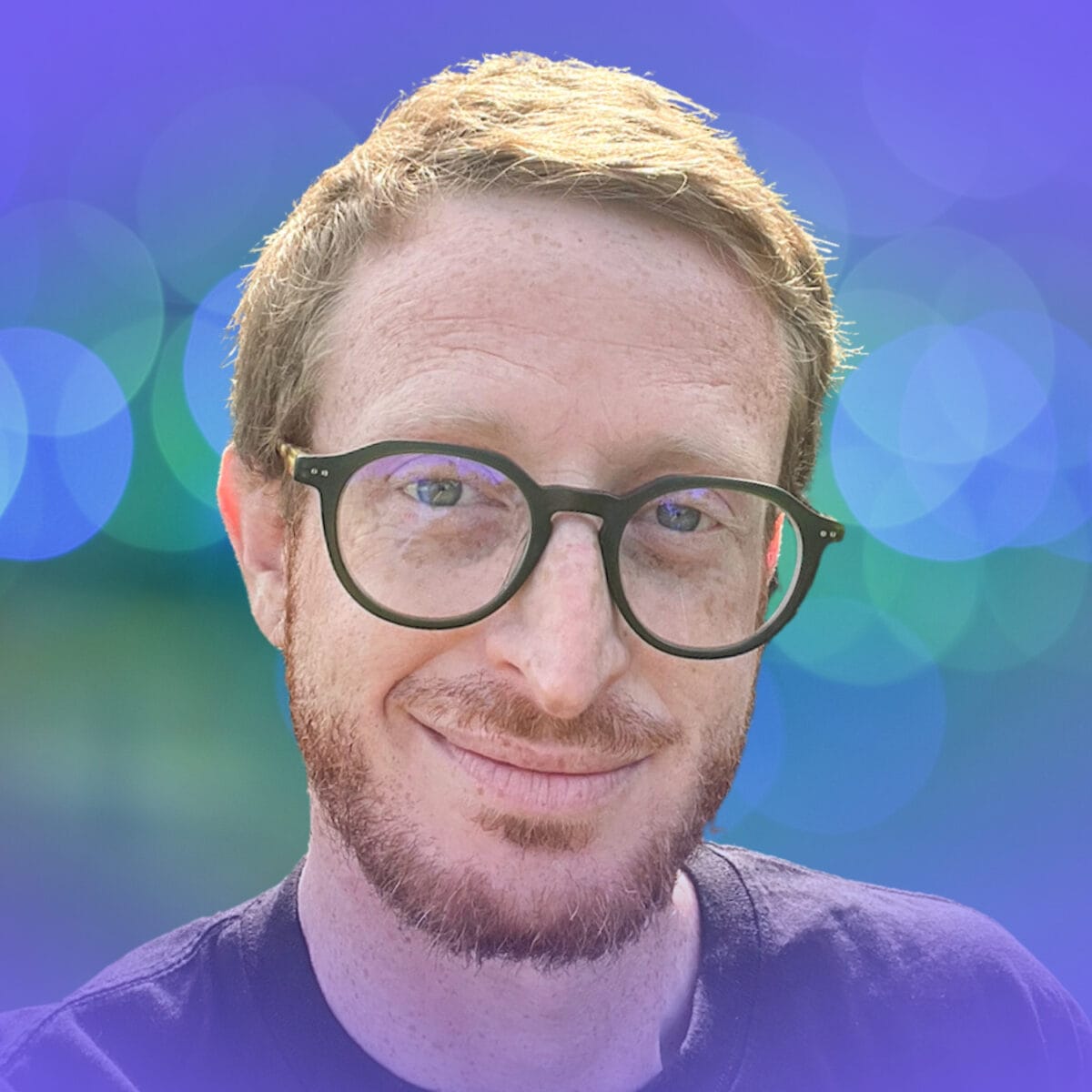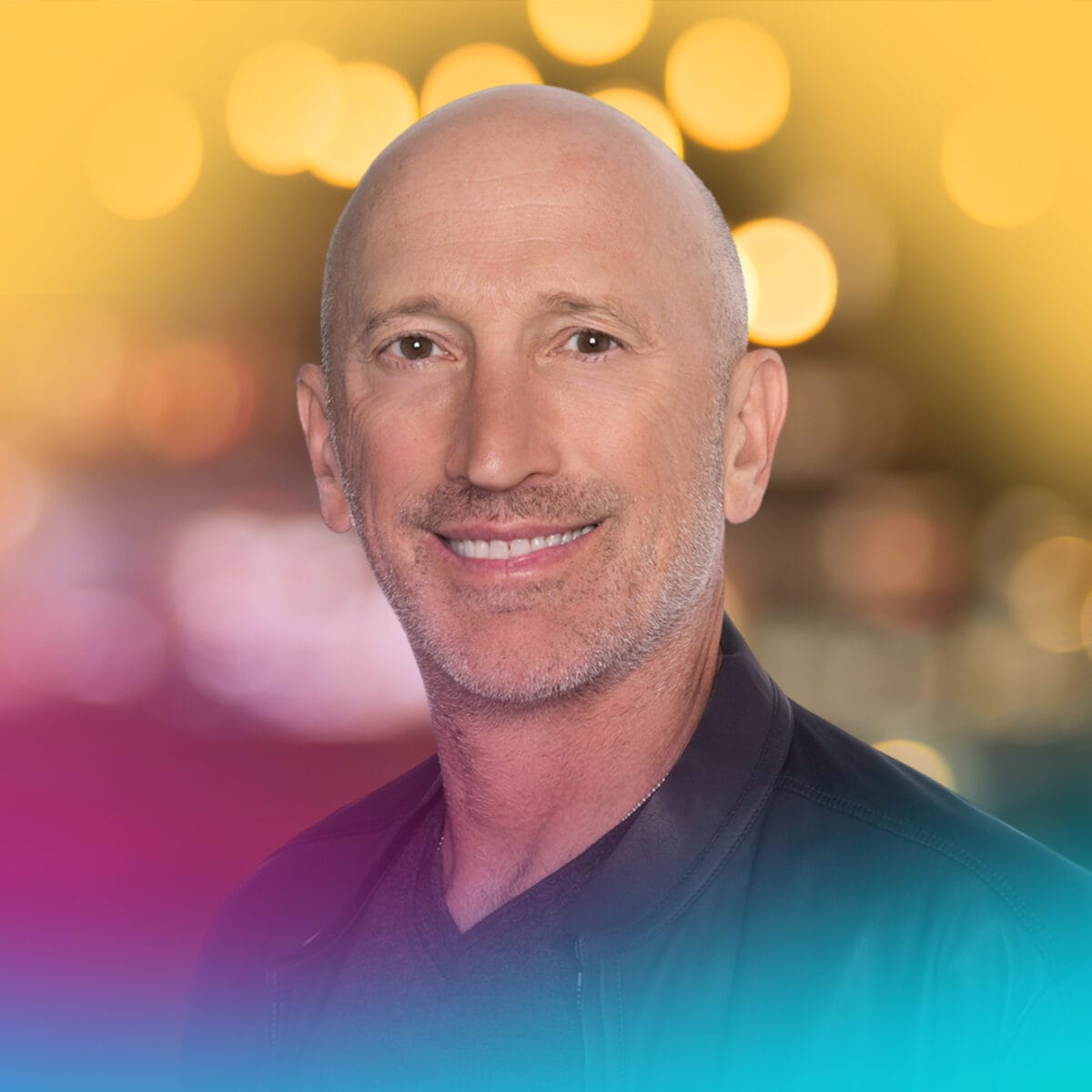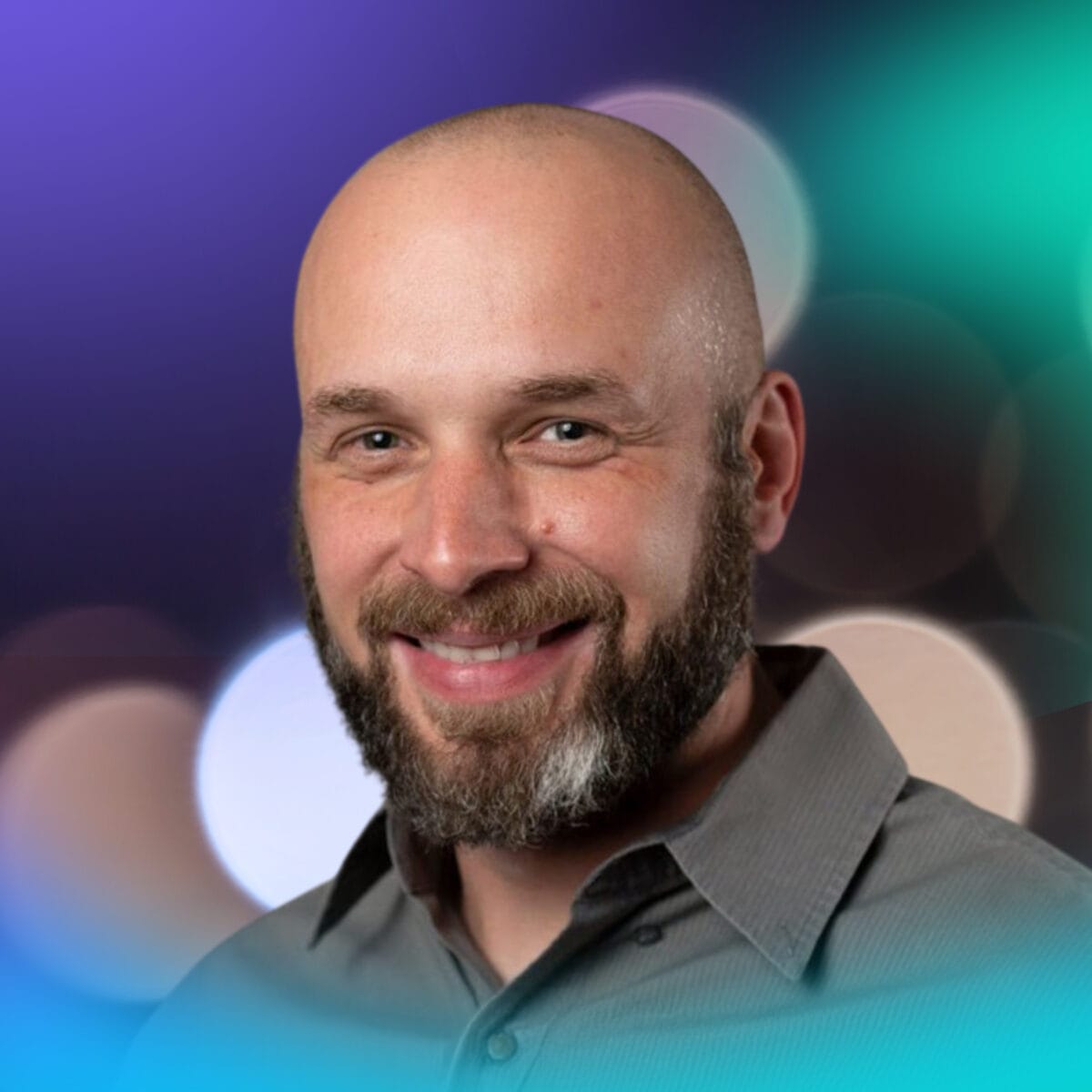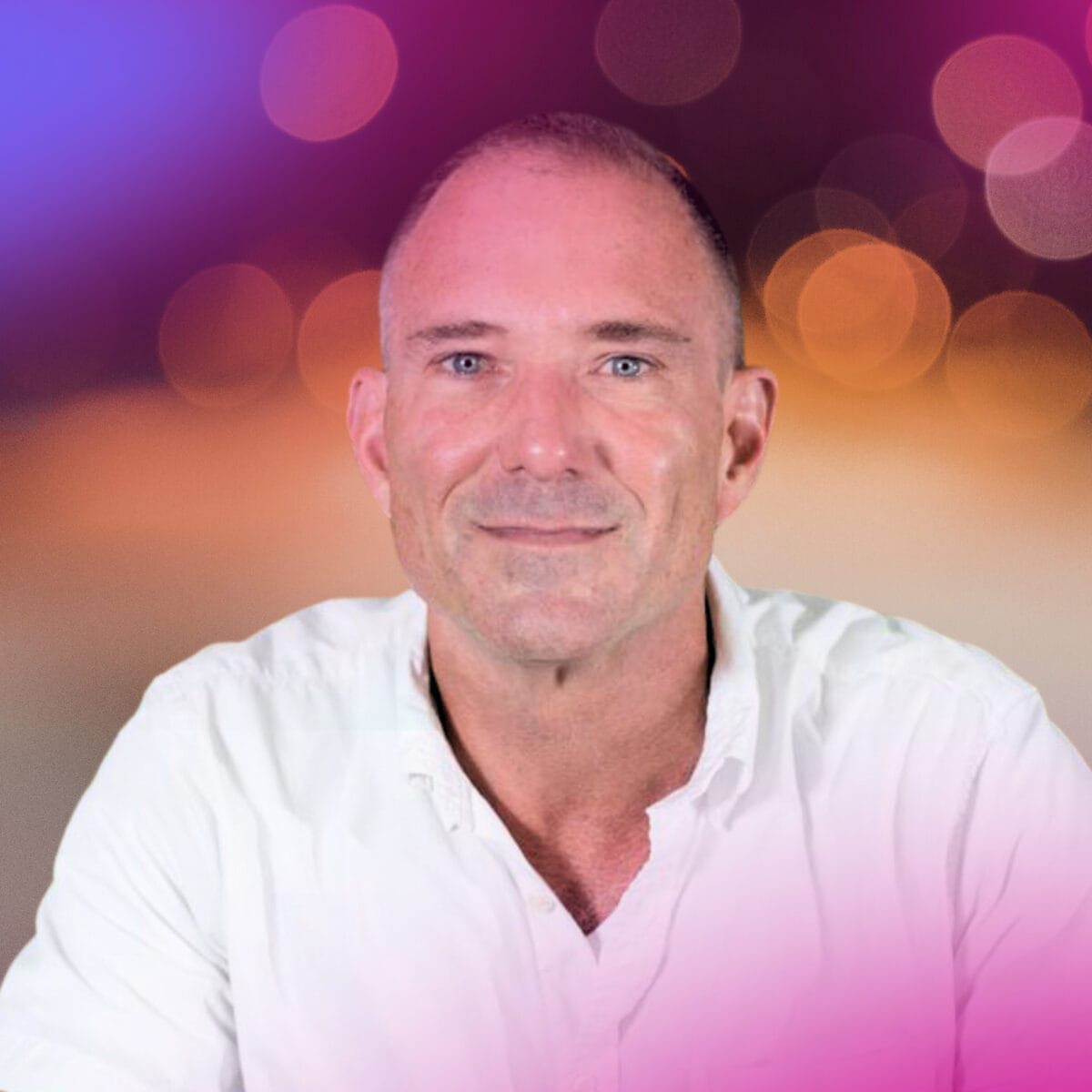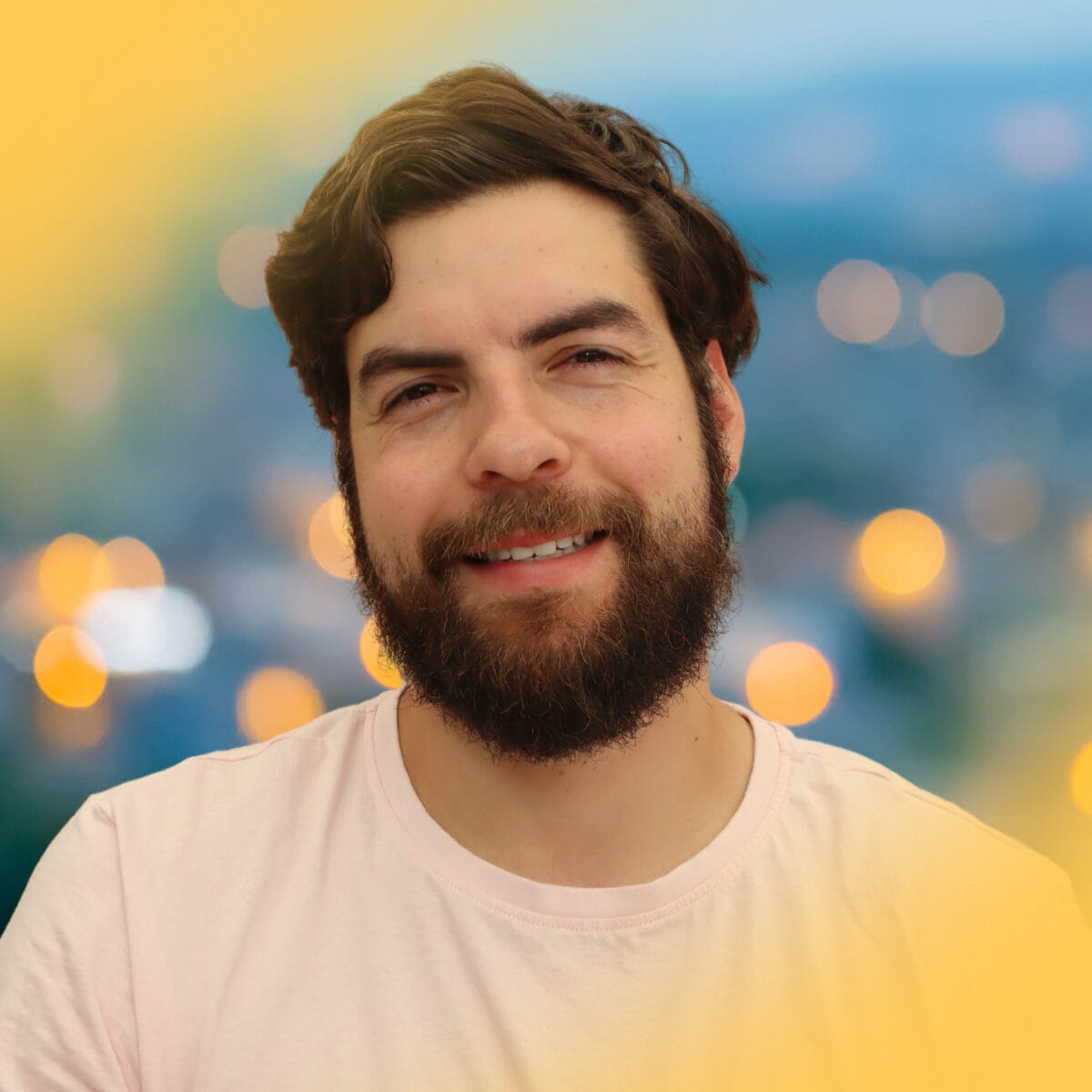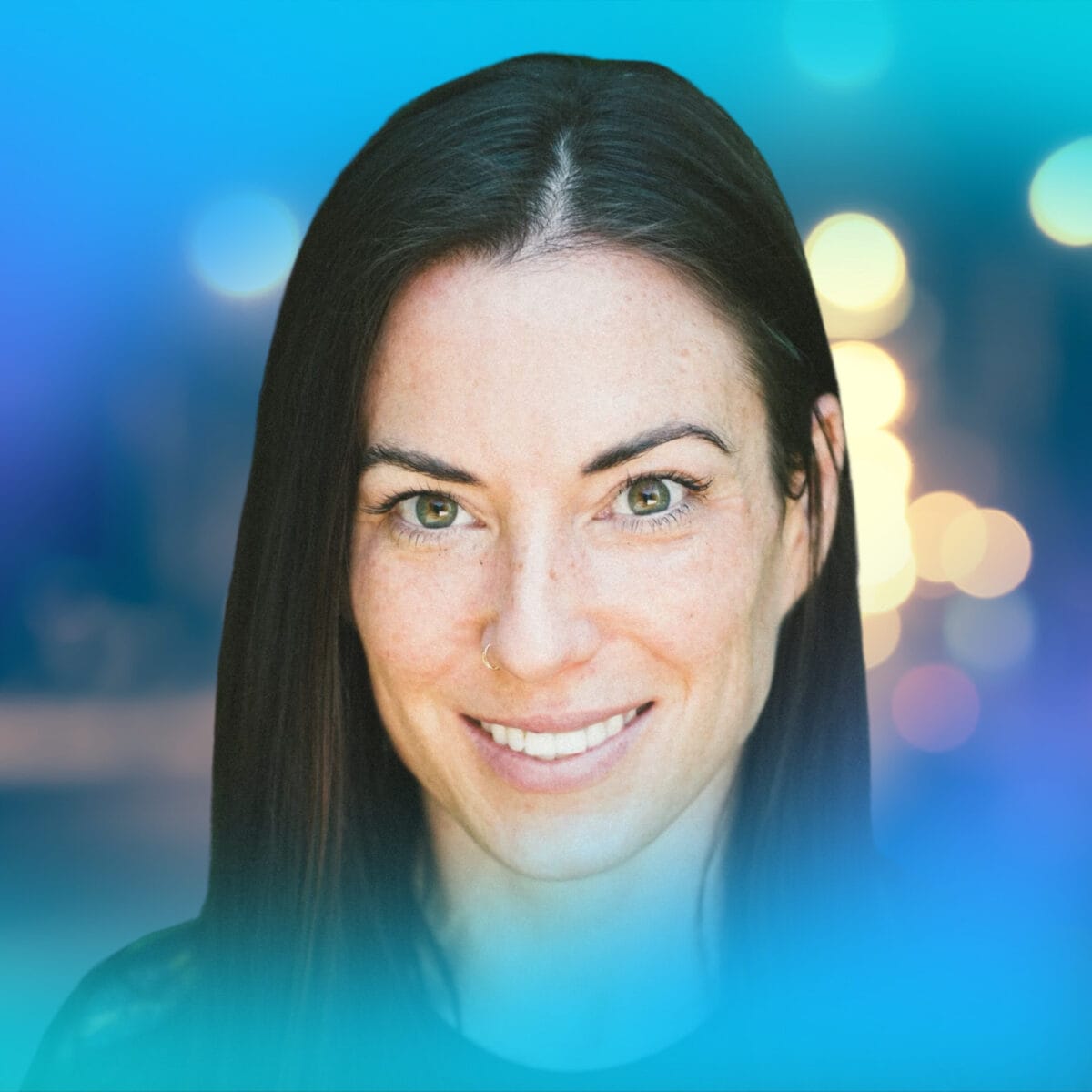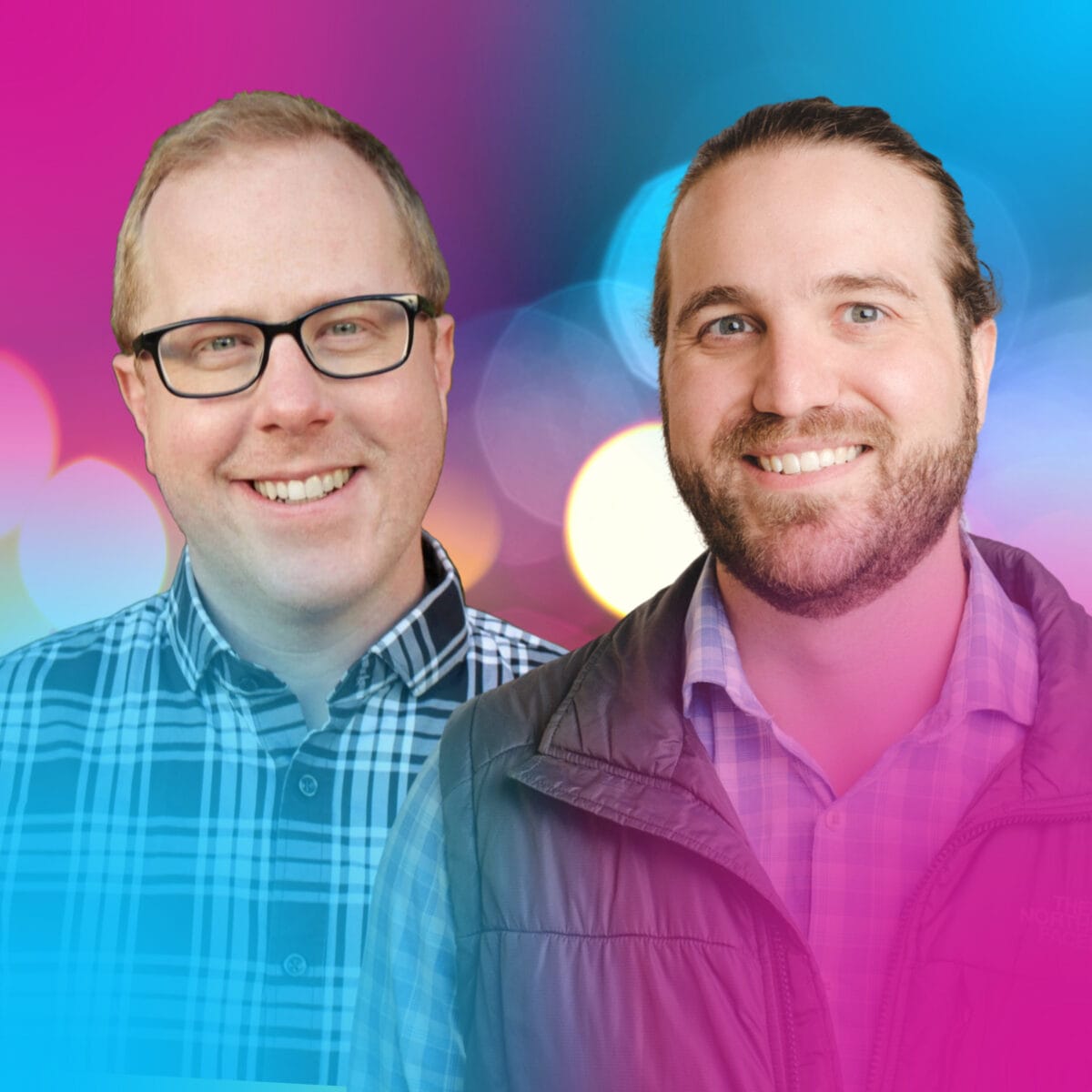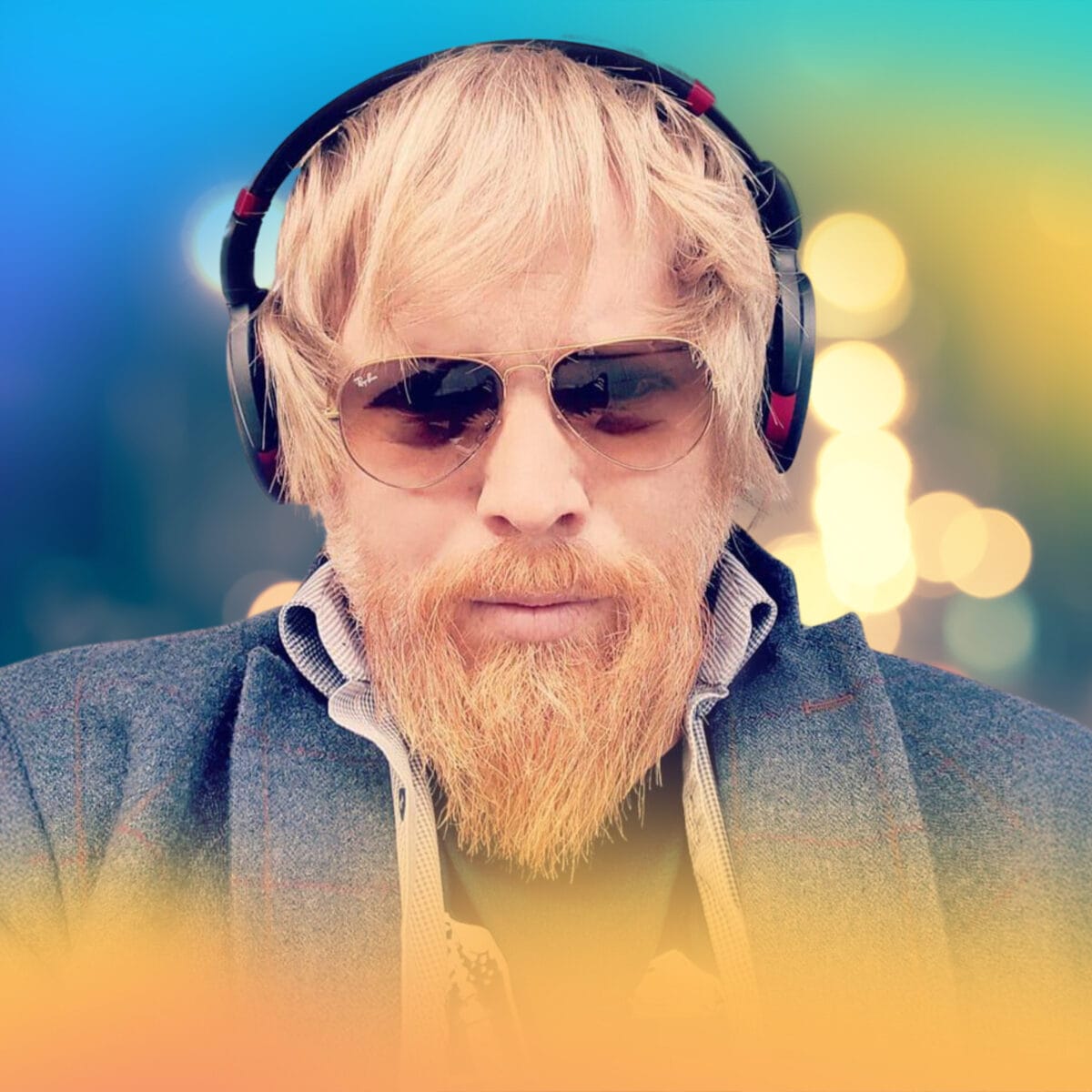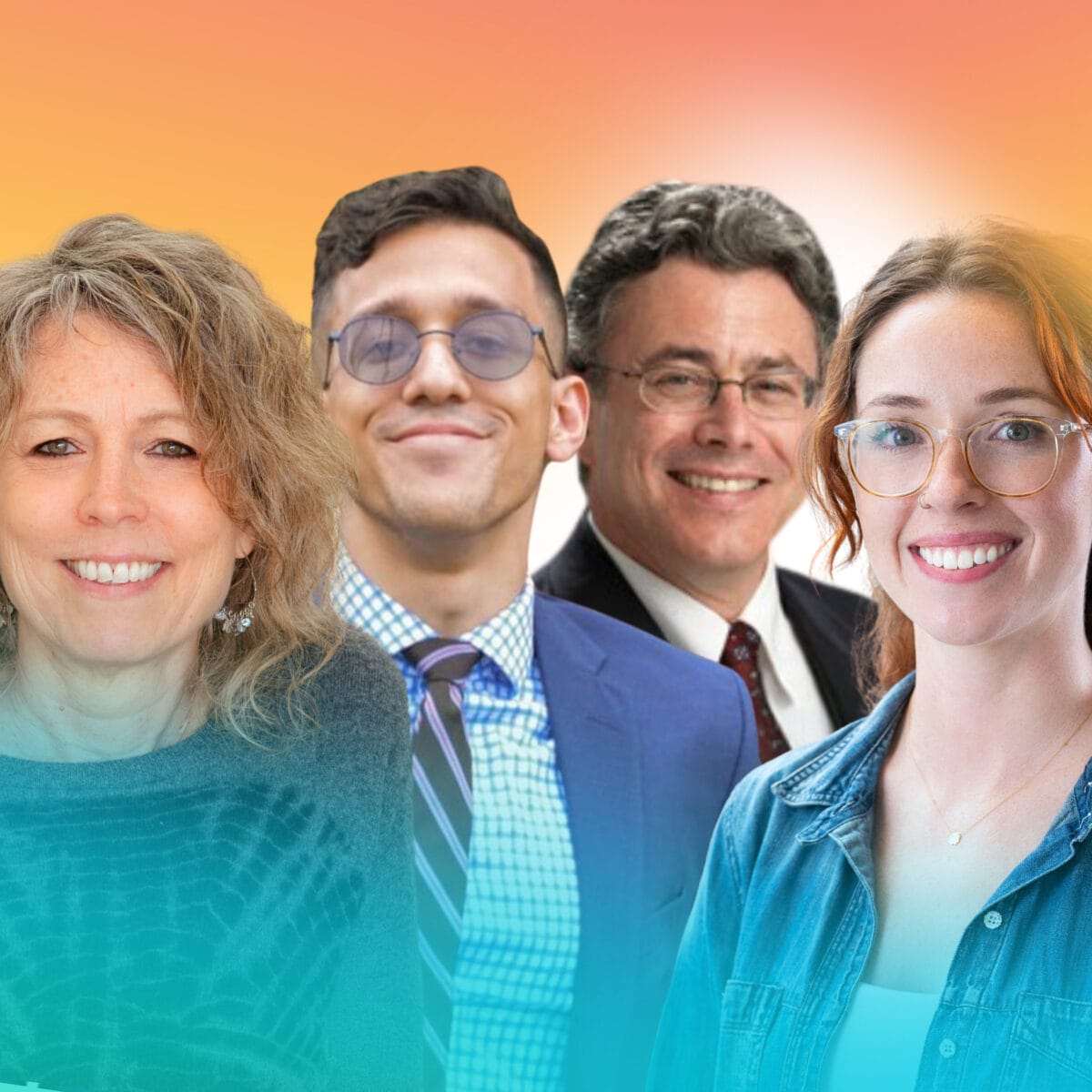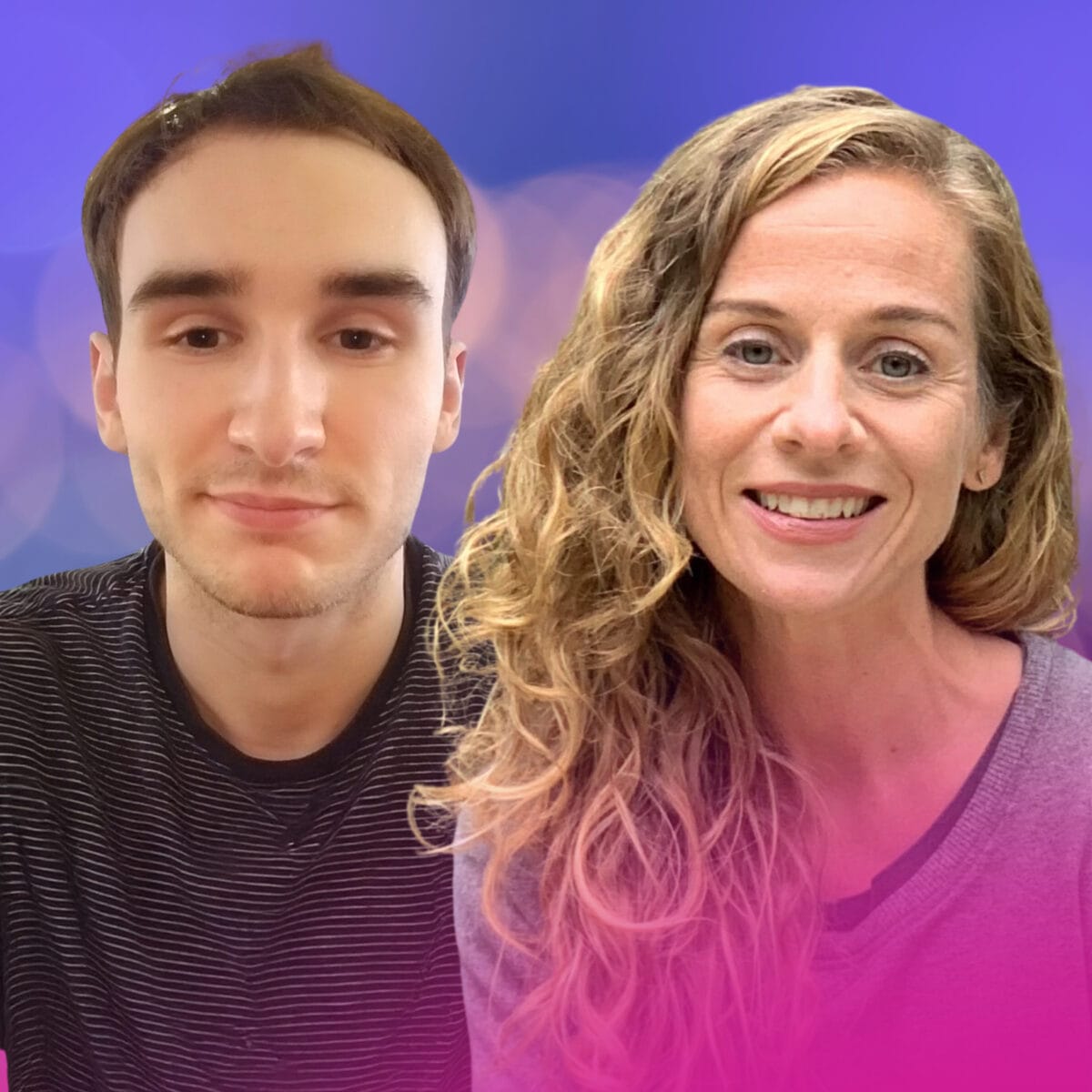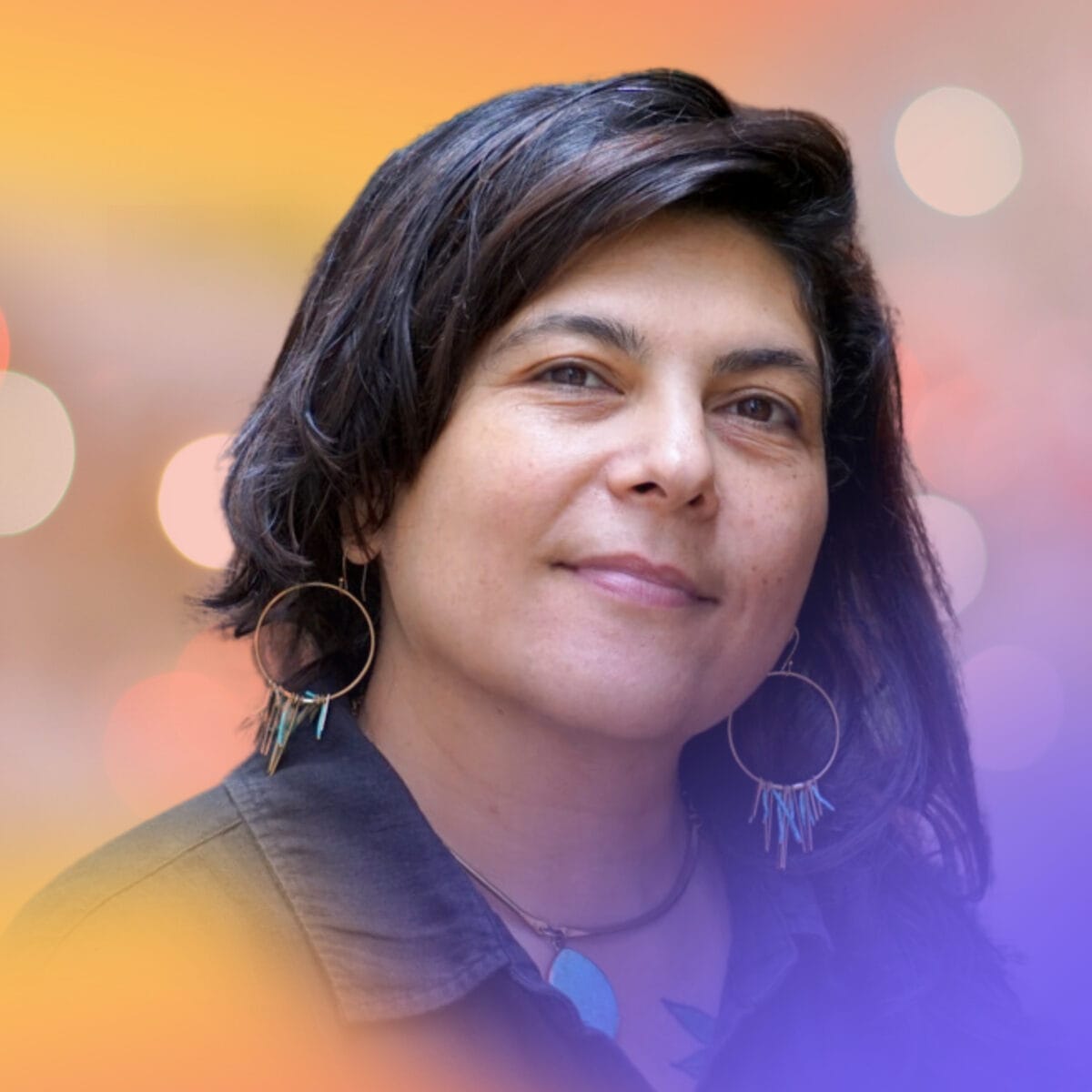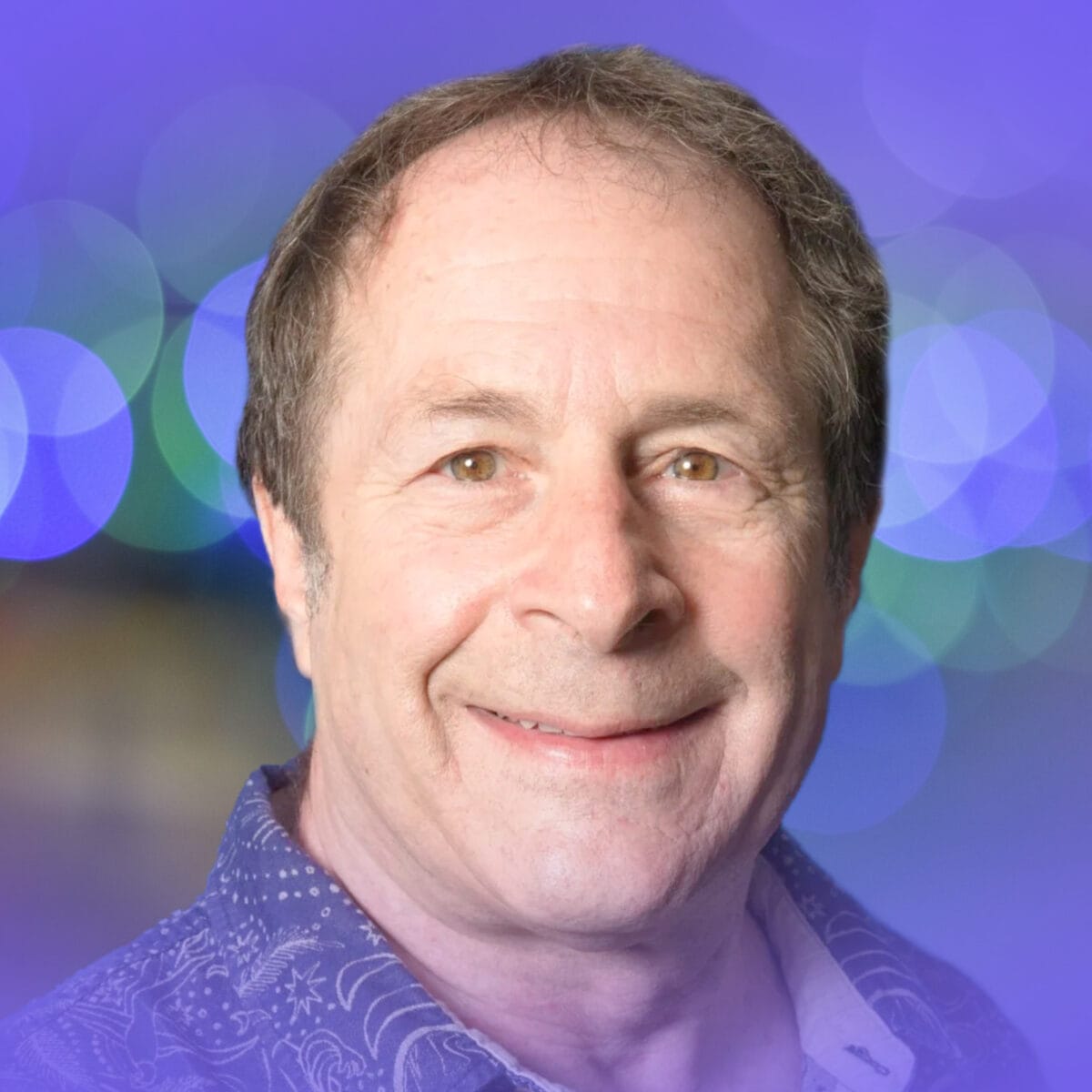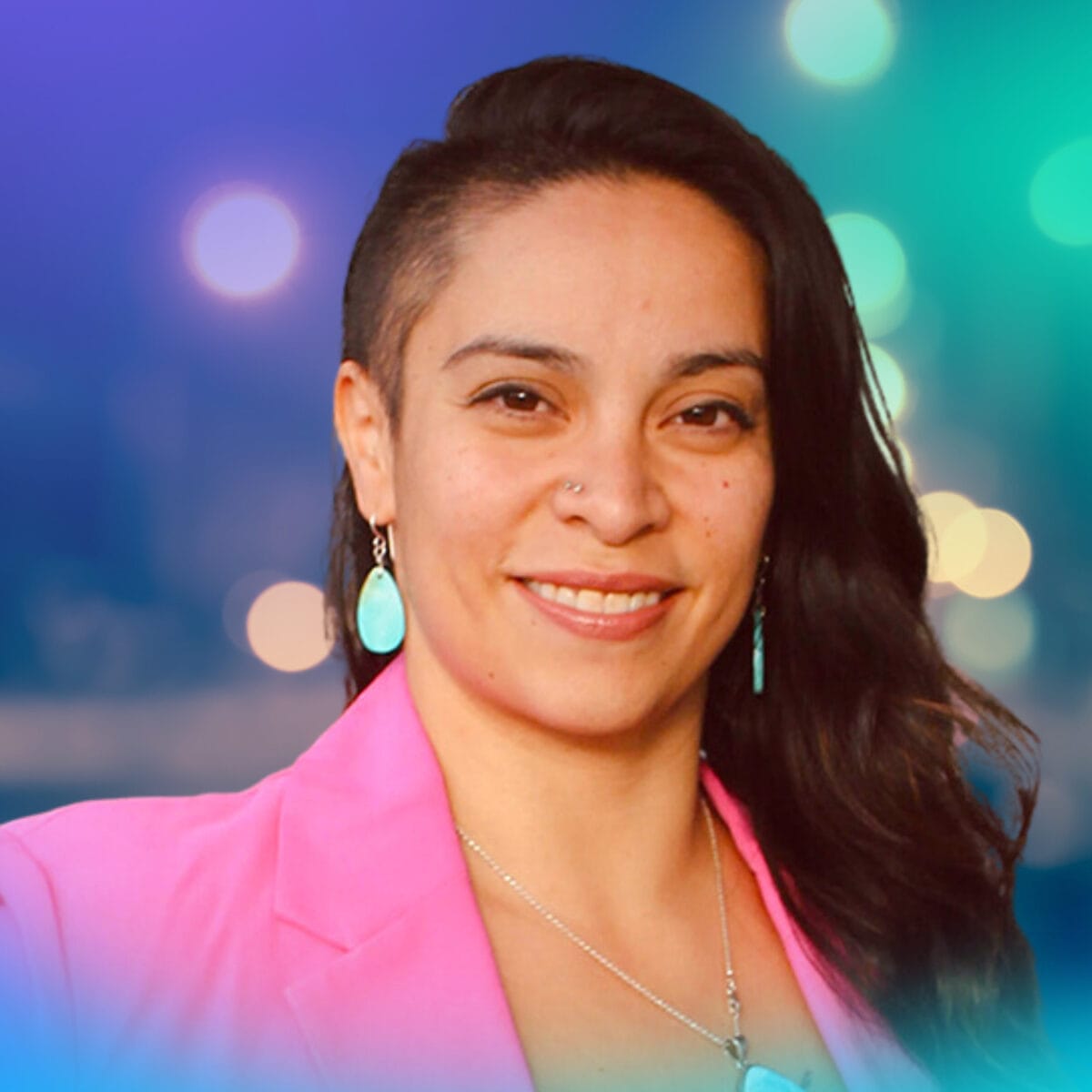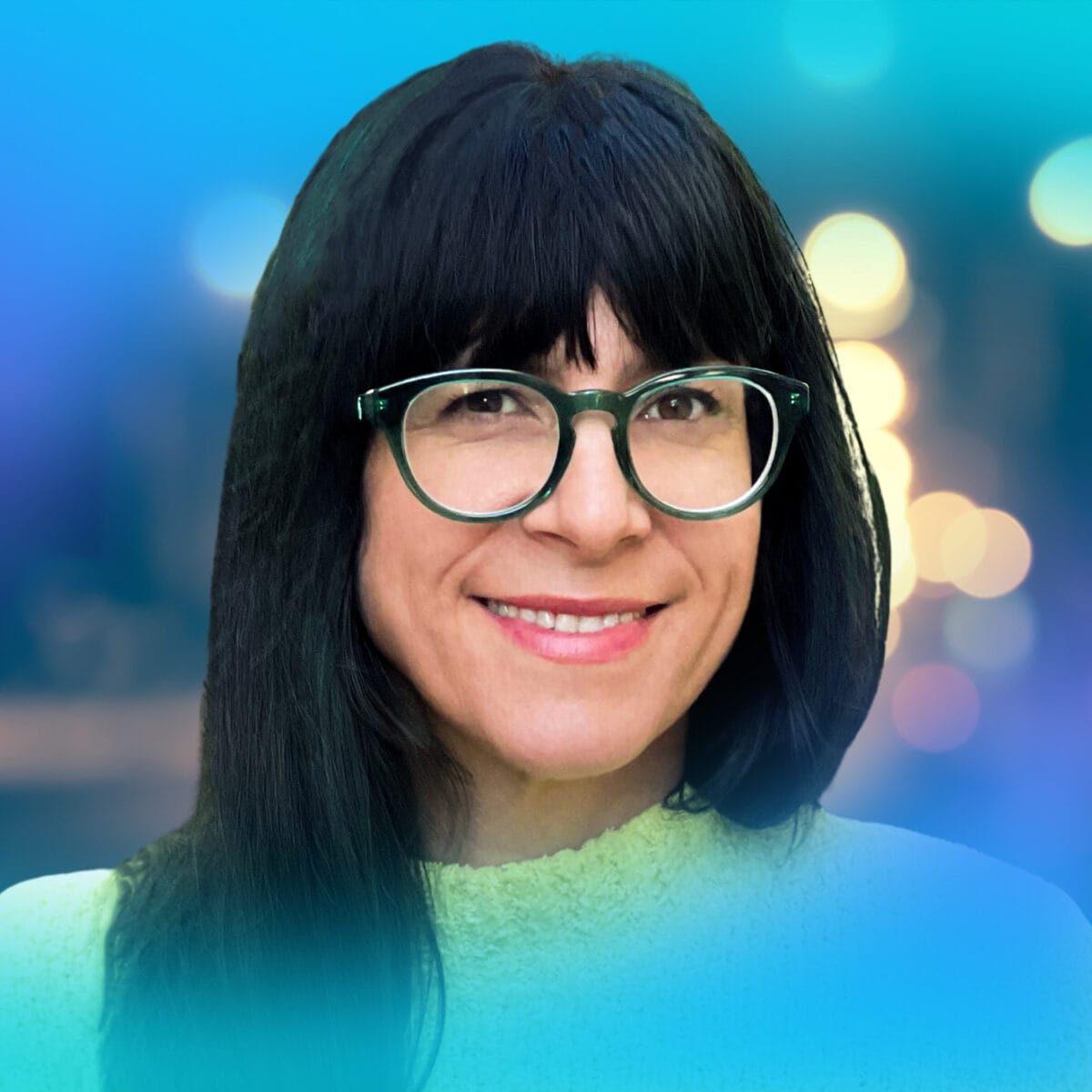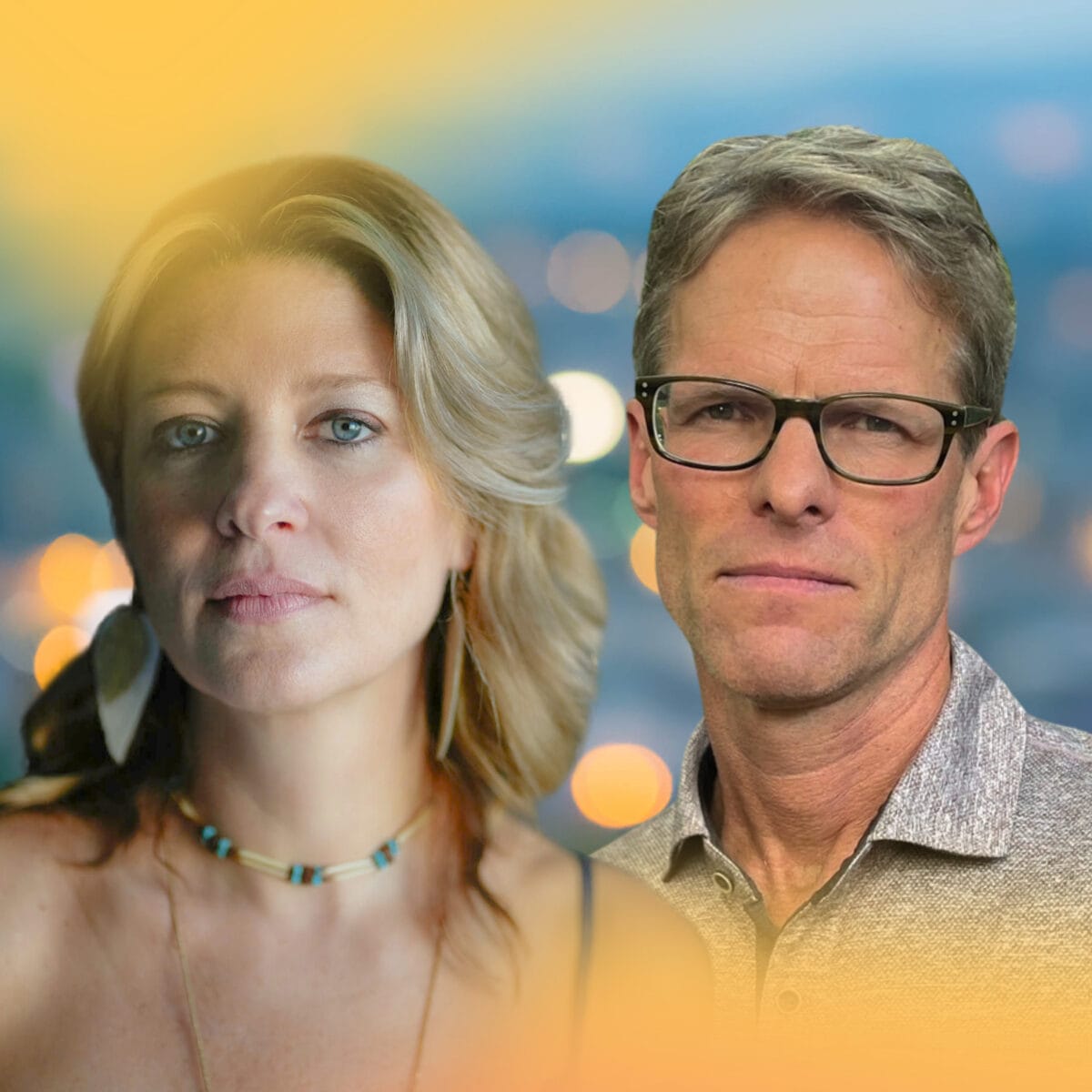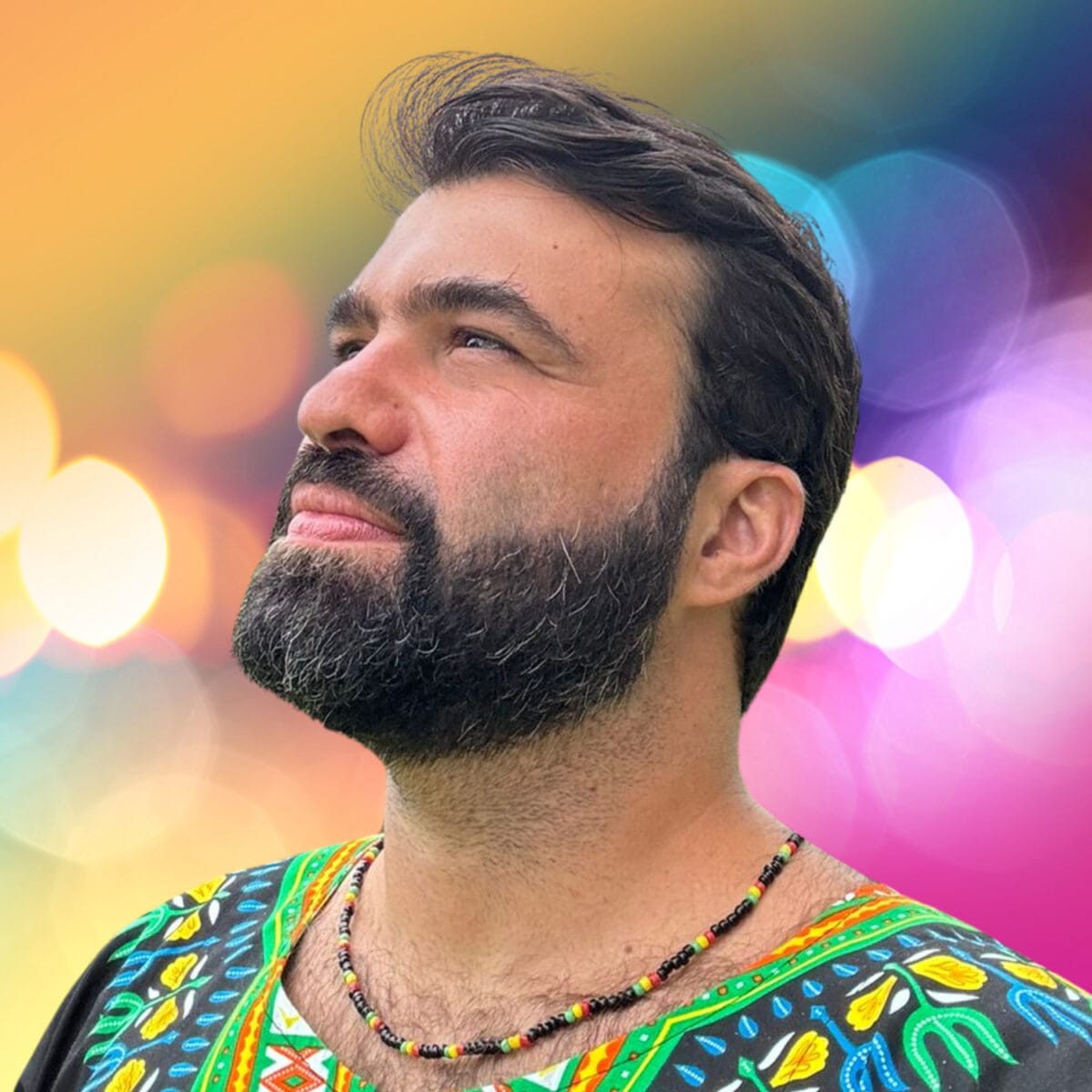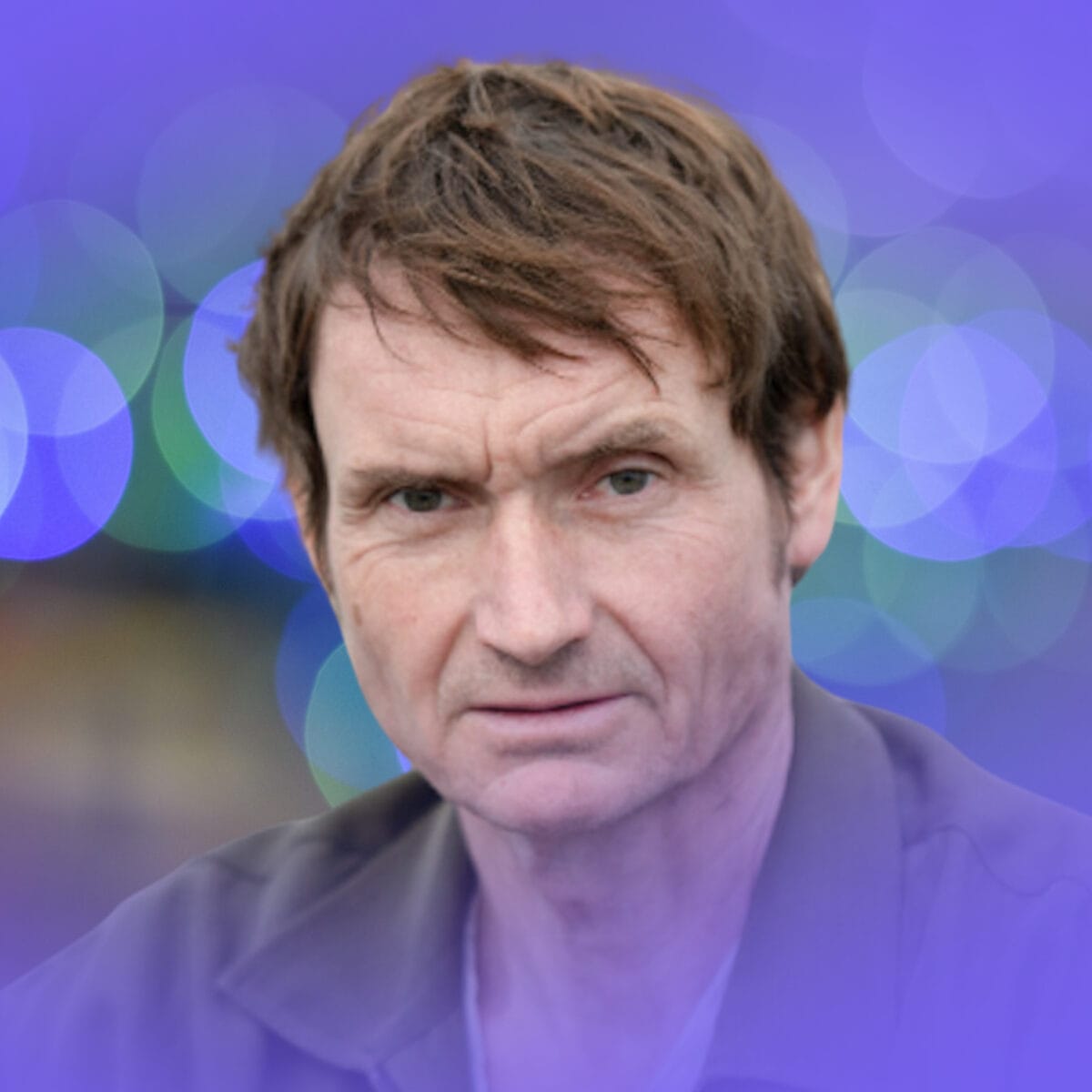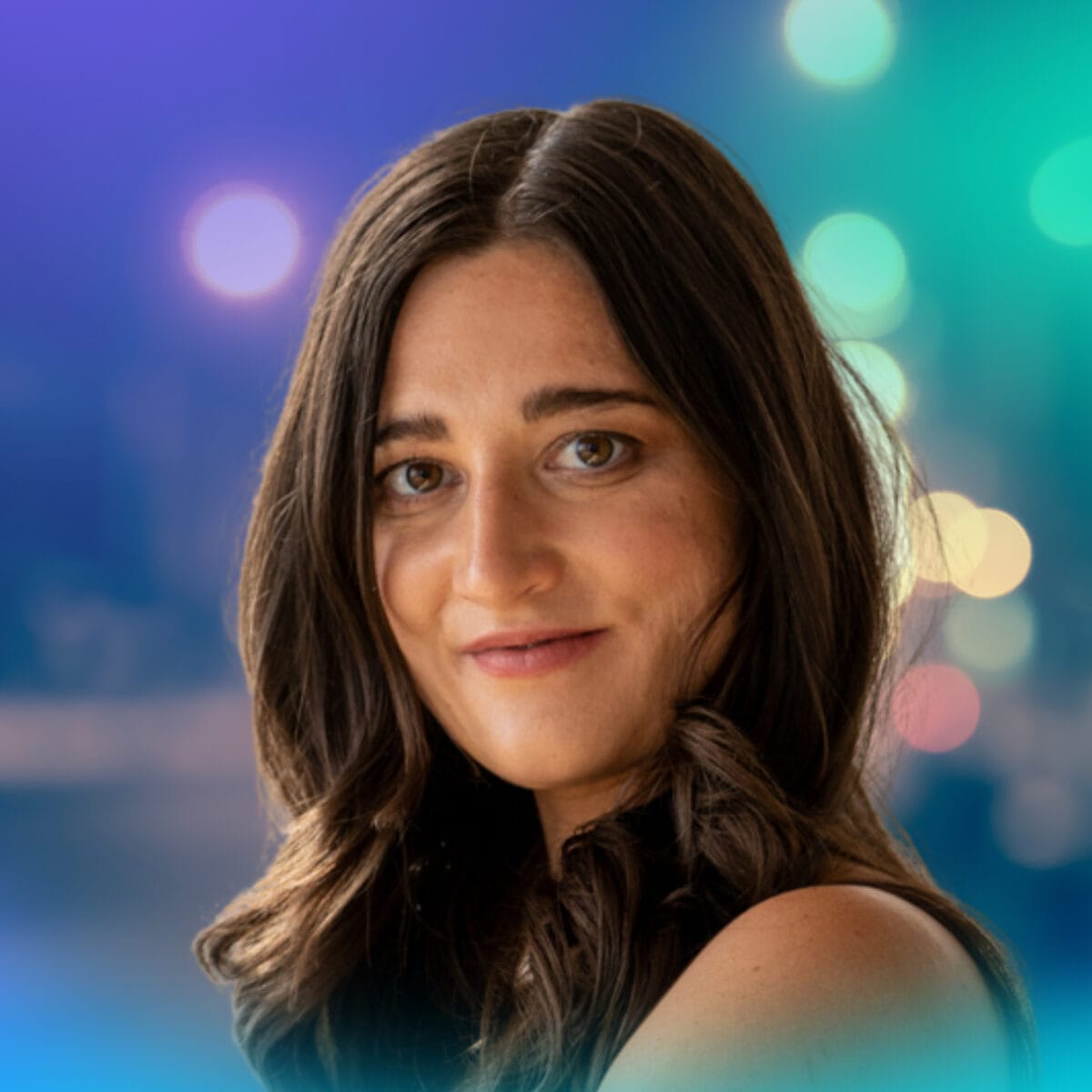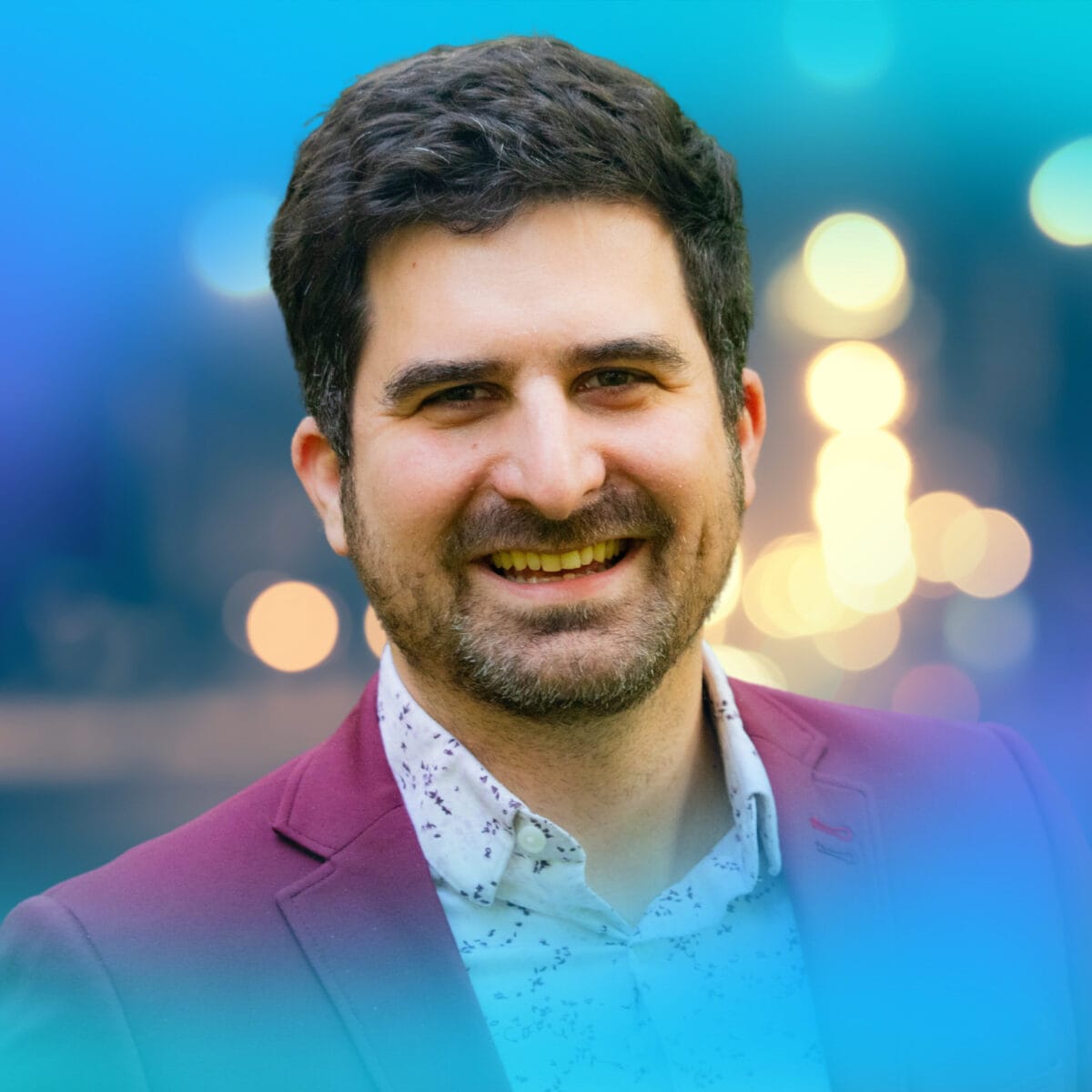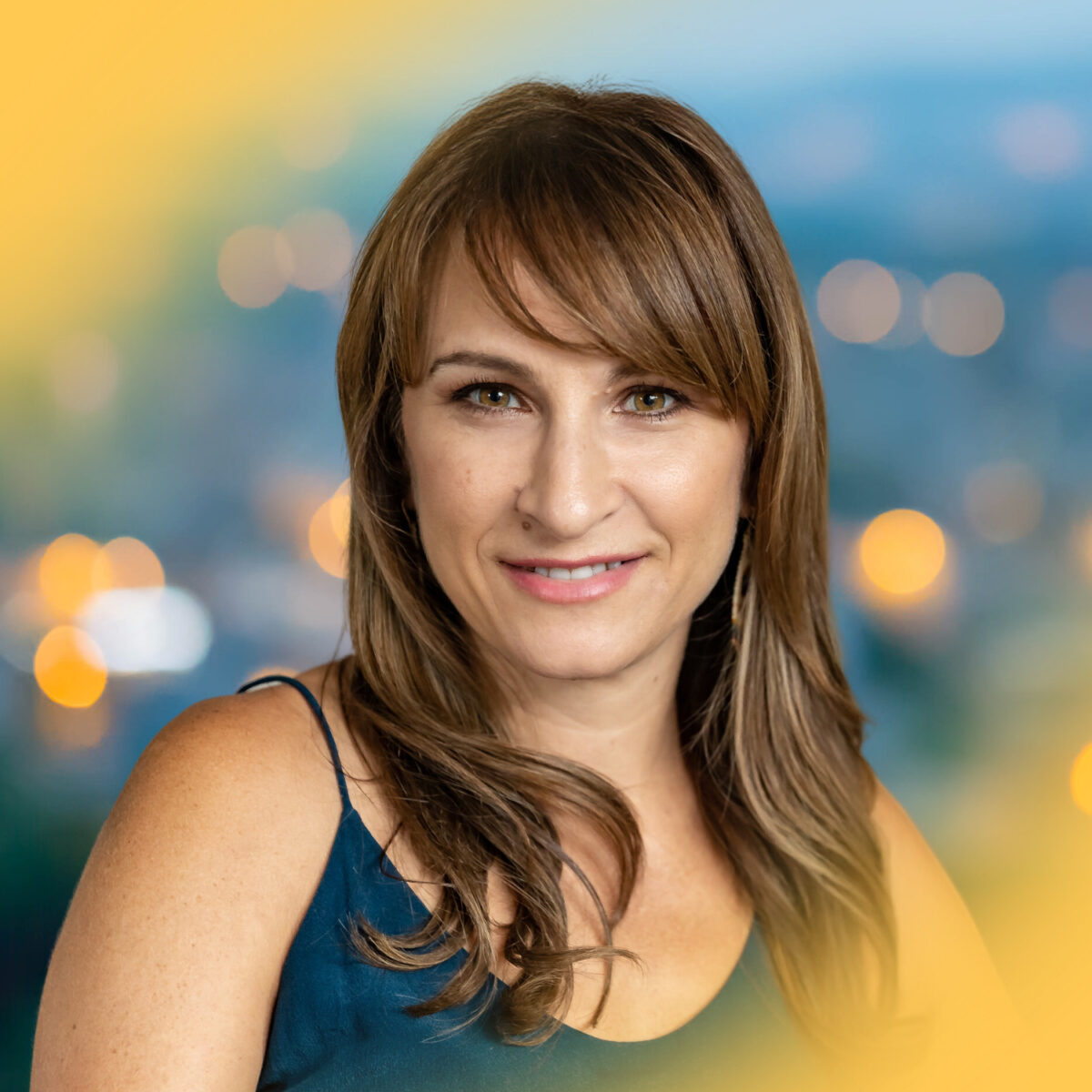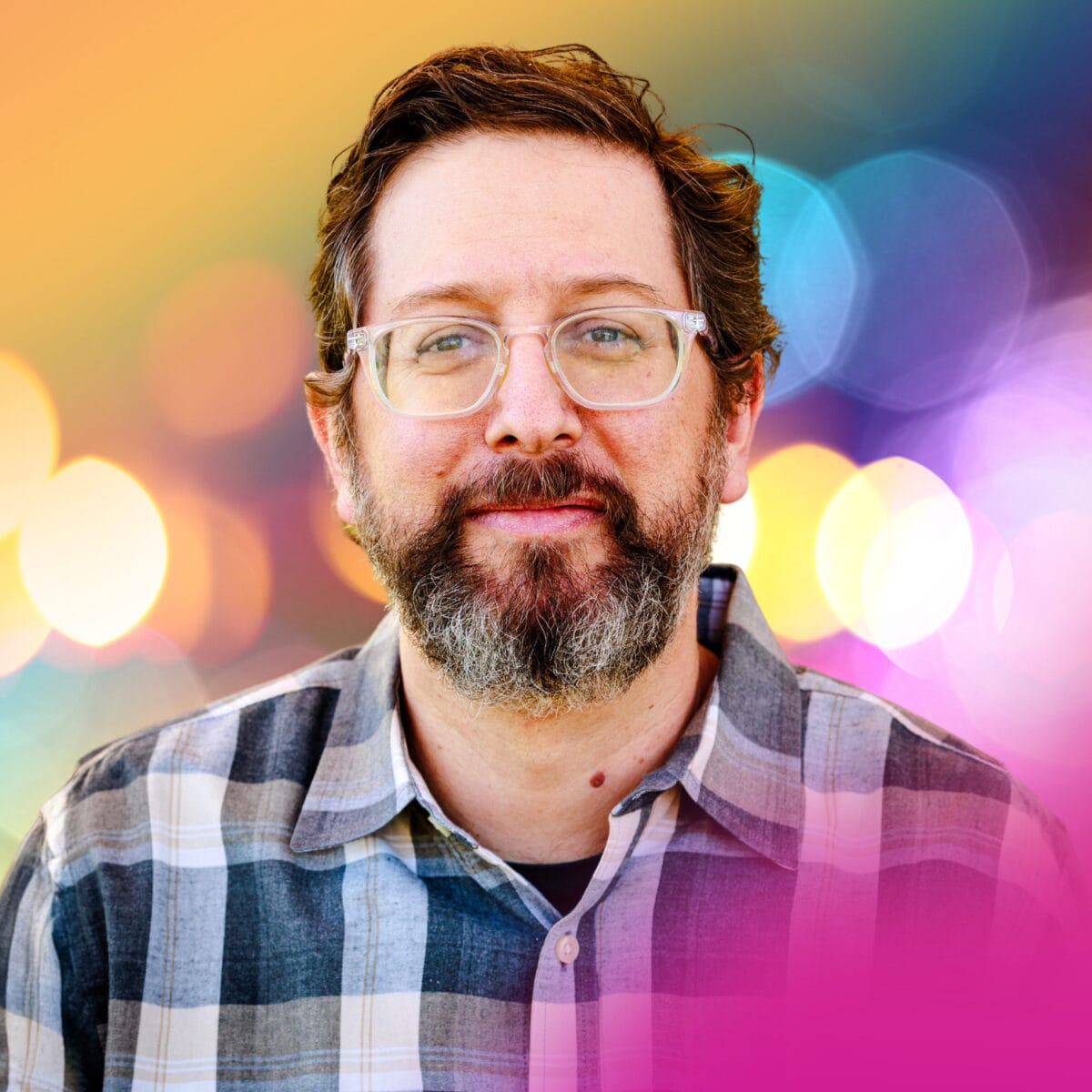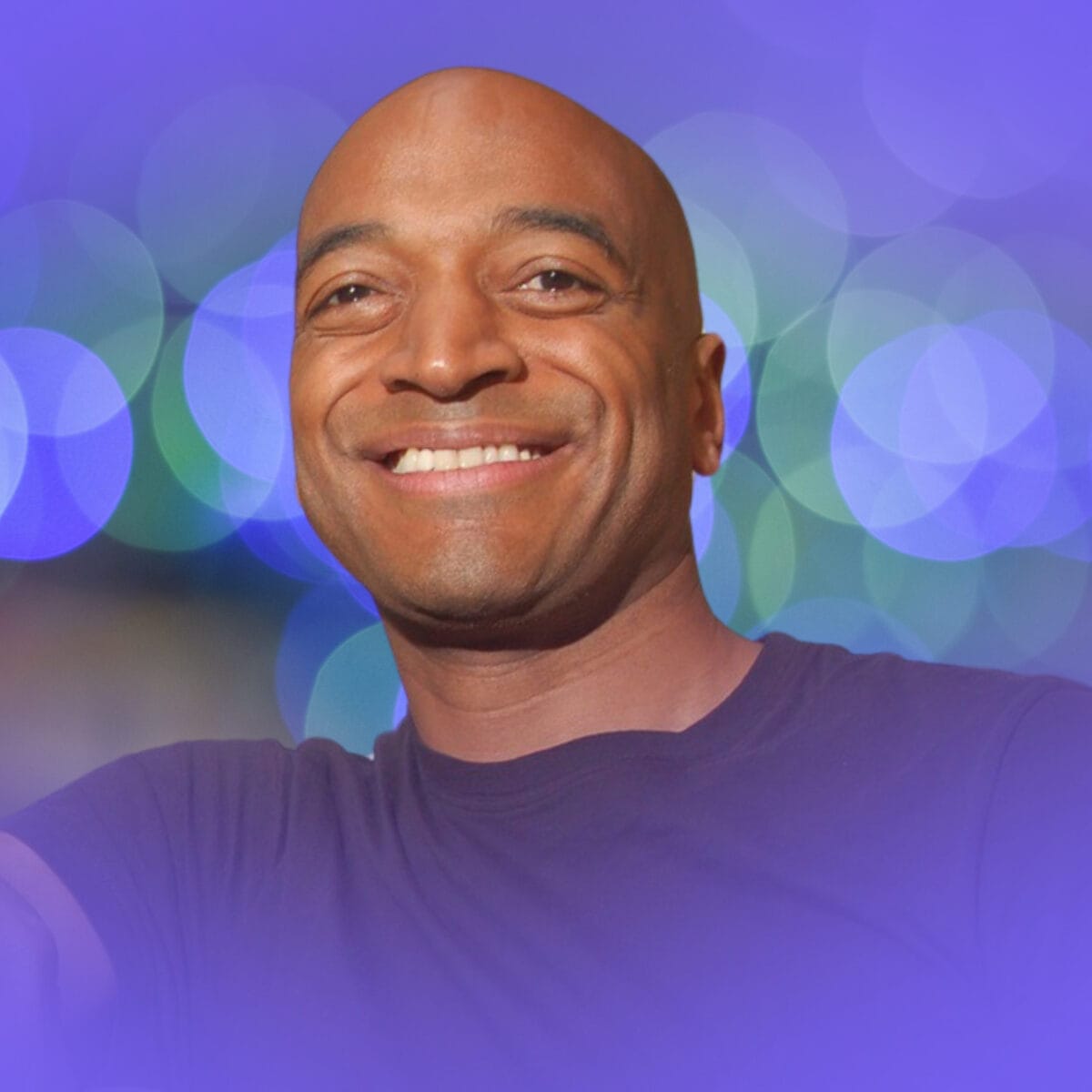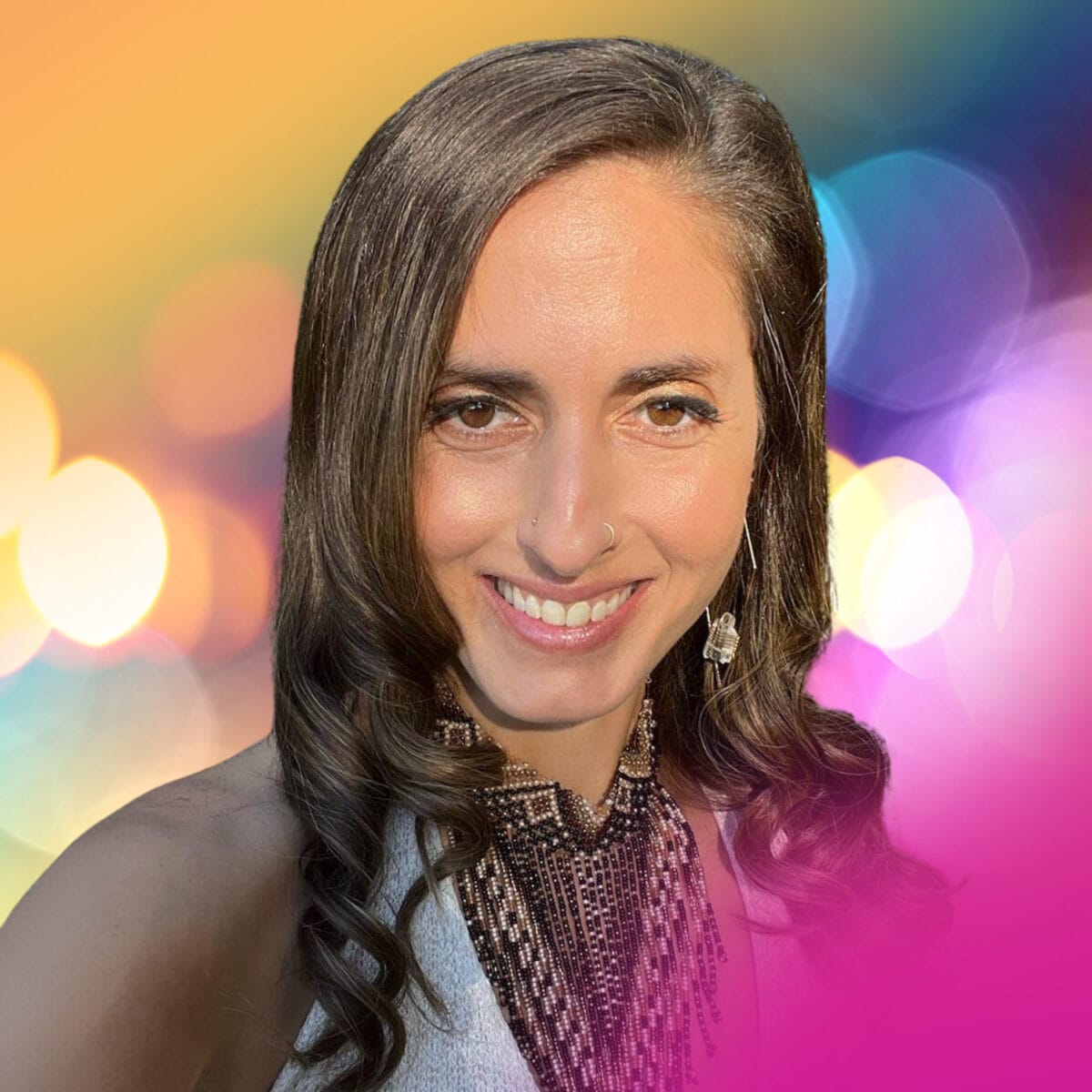Beiner is less interested in psychedelics as a niche medical tool and more interested in how they can help us see through destructive cultural “games,” reconnect to our bodies, and relate across deep divides.
The conversation starts with Beiner’s origin story. He describes formative psychedelic experiences as a teenager, and how early access to thinkers like Terence McKenna, Timothy Leary, and the Shulgins led him onto the Grow Report forum and its associated podcasts. From there he launched his own visionary art podcast and eventually co founded Rebel Wisdom, where he focused more broadly on culture, systems, and meaning rather than only on psychedelics.
He explains that most of his writing has not been about psychedelic substances, but about a “psychedelic approach” to reality. That means paying attention to complexity, paradox, and relationship, and asking what a psychedelic form of education, politics, or media might look like. He also touches on his documentary “Leviathan,” which looks at breakdowns of trust, disembodiment, and the social forces that pull us away from what is real and relational.
In the middle of the episode, the discussion moves into concrete tensions in the current psychedelic resurgence. Topics include:
Beiner highlights work on ayahuasca circles for Israelis and Palestinians, noting how “we are all one” language can sometimes block necessary truth telling about power and harm. He returns often to embodiment as a key corrective. When people slow down, feel their bodies, and notice what is actually happening in their nervous systems, they can hold disagreement without dehumanizing each other.
He also points to emerging work on psychedelics for creativity and problem solving, including stories where psychedelic insights contributed to breakthroughs in science and complex systems thinking. For him, this is one of the most exciting frontiers, because it shifts the story from “fixing a deficit” to “creating something new.”
They explore how double binds and mixed messages can create mental distress, and how psychedelics can sometimes resolve these binds by adding new context and perspectives. From there, the conversation turns to third spaces, communitas, and the urgent need for more embodied, in person culture beyond screens, work, and home.
This episode places Alexander Beiner within the wider psychedelic resurgence as a voice linking inner work to outer systems. For clinicians, researchers, and community members, it offers a rich invitation to think beyond individual healing and ask how psychedelic perspectives might help us transform the cultural games we are playing.
Transcript
Joe Moore: [00:00:00] Hi everybody. Welcome back to Psychedelics Today. Today I am joined by Alexander Beaner. Did I say that right?
Alexander Beiner: Binner? Almost
Joe Moore: binner. Oh, so close. Uh, sorry about that. I All good. You’re not the first rushed through your book yesterday, which was actually quite the journey. Um, it was my first full day back from Burning Man.
Alexander Beiner: Oh, welcome back.
Joe Moore: Thank you. And I learned quite a bit, and I was a little shocked that it was kind of my first real, like in-depth exposure to your work, other than breaking convention, obviously. yeah, so excited to get to know you here, excited to, you know, see what you’re up to these days and maybe explore some of the ideas in your book a little bit further too.
Alexander Beiner: Sounds great. I’m, I’m happy to be here. It’s nice to, yeah, nice to connect. I mean, I think I’ve did done a few things with, psychedelics today, but I don’t think we’ve ever, uh, properly had a conversation, so it’s, it’s nice to be [00:01:00] doing this.
Joe Moore: Yeah. Yeah. Likewise. Cool. So can you tell us a little bit about yourself?
Like how did you end up in this kind of interesting corner of psychedelia in the internet?
Alexander Beiner: Yeah. How did I end up here? Well, I, um, I guess like many of us, you know, I had, uh, very meaningful psychedelic experiences, uh, in my case when I was like, I think like 18, 19, and the, well, I was particularly interested in.
Well, I guess the question Terrence McKenna used to say like, why isn’t everyone talking about this? I still feel like that a bit. Um, but now a lot more people are. But then, uh, so this would’ve been like 2005 or so. Um, you know, people like McKenna and Leary and the Shulgin’s, that was what was available.
And the first, um, the Johns Hopkins study that is often seen as the beginning of the psychedelic Renaissance, um, came out in [00:02:00] 2006. Uh, although Rick Strassman’s, DMT. The spirit molecule and his DMT research was quite a bit before that. Um, so I think it’s fair to say that Rick’s work is, you know, the beginning of the psychedelic renaissance.
Um, but I was on a, you know, I started out on an internet forum, um, called the Grow Report, which was actually originally a cannabis forum. Same by the way. Oh, really? I didn’t realize that. Yeah. Oh, man. Yeah. Yeah. We, we must talk about what, what our, uh mm-hmm. What our hooks were. Um, so I spent a lot of time on there, and there was a, there was a podcast on there called Psycho Nortica, uh, by Max Freakout.
Uh, and he became, I became good friends with him. He sort of introduced me to the world of, um, you know, the thinking around psychedelics, you know, for me they’ve always been deeply, the experiences have been deeply meaningful, you know, really changed my life in many ways on a personal level. And I’ve also been very interested in.
Uh, how can these have a [00:03:00] social impact beyond just our own personal experiences? Uh, which I think was really the question in a lot of the, the, the years between, you know, when research stopped and started up again, that was what kept the flame burning, was that, so that’s kinda my background in it. And I started a, a podcast on that network called Visionary Artists Podcast, which was, uh, interviewing visionary artists.
Um, uh, ’cause I’m, you know, a writer first and foremost. I’ve always, you know, been writing and, um, so I, yeah, I guess things just kind of cascaded from there. And, but I think even with, with the bigger picture, that’s kind of a culmination of many years of, you know, research and interest in this idea of how can psychedelics not just change our minds, but change, uh, society or change culture.
Joe Moore: Yeah. I appreciated the care. Um, with which I, I wanna jump right into the book and then we can start going back into our backstory. Yeah. Yeah. The book’s so fresh. Um, I, [00:04:00] so just for everybody out there, I, I kind of, um, I just got back from Burning Man. Listened to the book in a, in a Hurry. It’s available on Spotify.
Um, and I, I loved it. It was pretty great. I, I had been thinking about a, a book, some, I can’t say similar because the, the way you structured it was good because it was like actually accessible the way I Thank you. I was gonna put something together. I don’t know that it was gonna be accessible and like, really great interviews you got with amazing folks.
Um, do you, do you remember offhand the name of the, um, physicist at cern, you?
Alexander Beiner: Yeah. Bernardo Castrop. Yeah.
Joe Moore: He got some press in the, um, the DMT entity Encounters book a little bit too, um, by one of the, um. People who spoke at that conference. And I was like, okay, now he’s coming up twice in two months for me, so I’m gonna have to like really dig into Castro’s work.
Yeah. But this this really amazing arc [00:05:00] that you did, uh, around like, okay, we’re in trouble. Psychedelics might be able to help. Here’s all the problems with psychedelics. You know, um, here’s, does it really matter? Which is of course a thing you’re gonna have to get through eventually. And then, you know, what, what can we do?
What, what meaningful things can we do? And, um, I appreciated our, our kind of alignment on drug policy matters it seemed like at the end. Um, kind of how do we just keep folks safe mm-hmm. Generally, and, you know, not let money run away with it. Yeah. The whole, the whole story, um, gonna be an interesting balancing act.
But yeah, it was, um. I think it, you know, handled complexity well, handled a lot of things well. Um, and yeah, just generally very impressed. And again, a little bit embarrassed that this is the first thing I’ve read by you,
Alexander Beiner: so. Oh, no, that’s fine. Thank you. Well, thank you for the kind words and I’m, I’m glad you enjoyed it and it’s, it’s really nice to, um, that is still fresh as well, uh, sort of like, you know, front of mind.
That’s, that’s great. [00:06:00] Um, and yeah, and I, you know, it’s funny because a lot of the stuff I write isn’t actually about psychedelics, you know, most in, in fact, most of my writing and films aren’t about psychedelics. Um, you know, I, I was one of the founders of a, a platform called Rebel Wisdom, and that ran for about five years.
And we had a, you know, fairly sizable audience on YouTube and Substack and a few other places. And then that ended a few years, about three years ago. And since then, um, I’ve been mainly writing, although I just created a documentary, and so none of that stuff, I would say like 10% of what I’ve written is about psychedelics.
Um, partly because, I don’t know, there’s something about, uh, sort of not looking at the finger, but looking at the moon. You know, if someone’s pointing at the moon, there’s something that I’m really interested in about, like what does a psychedelic approach to, uh, well, anything really, you know, um, what does that actually look like?
What does that mean? And so, and part of it’s also just my own [00:07:00] interests, I guess. I’m really interested in sociology. I’m really interested in, um, trying to understand what’s going on in culture, um, from a deeper level. That’s the thing that gets me really fired up and, and gets me, gets me going. Um, and so, you know, there, there’s also a, a way in which like, I’m also just a bit of a lone wolf sometimes.
And so I’m like, you know, when there’s a whole, you know, I do feel part of the psychedelic field and, and you know, I love it. And, you know, breaking convention is probably my most active, uh, in it. Um. Uh, and I also am a big believer in, hey, let’s, as psychedelic people, let’s take our minds and perspectives and put them into different areas.
’cause I think that’s one of the arguments I make in the book is like, how can we have a more psychedelic perspective transforming our institutions? And, you know, for example, what is a psychedelic version of education look like? You know, that’s a big question. Like, we have to first agree on what we mean [00:08:00] by that.
And I do explore that, um, in the book. Like, you know, I, I think there’s something of psychological flexibility and creativity and flow and compassion. I think there’s a lot of things that people generally agree are an aspect of the psychedelic experience, you know, deep interconnection, and there’s a lot of research on all these different sort of facets of it.
And so what does it look like to actually bring that into culture, you know, fully,
Joe Moore: you had a couple. So many good things, but one in particular is coming to mind now around, um, to, to really make good, um, progress on complex issues, working together with people. There needs to be some sort of attunement or healing kind of already done, and which could kind of come from that psychedelic education that you kind of mentioned.
It’s like, how do I sit with these uncomfortable things and go, okay, maybe those four things are right. Can we discuss that and then we can build on it together? And I, I thought that was skillful, especially around kind of this, I’m, I’m gonna spill a one, [00:09:00] a small amount of being here and say that like the, the narrative is woven into your involvement in the, um, kind of extended state DMT work at Imperial.
Speaker 4: Yeah.
Joe Moore: And, um. It was kind of a lesson you were learning in the experience, but also saying, oh, this is actually very important and kind of what we need now if we’re going to have depth and meaning in our conversations and make progress here intellectually.
Alexander Beiner: Yeah, definitely. I and I, that is. Yeah. I mean, yeah, you described it really well.
Like there’s something of, there’s a temptation I think, often with psychedelics of going beyond. ’cause they can take us to mm-hmm. You know, very transcendent places and they can take us to deep imaginings of what could be. And then there’s also, you know, deep traditions in many indigenous cultures and, and elsewhere of psychedelics being used to, uh, enhance communit tasks like connectedness and coherence and cohesion within a culture, often through rituals.
Not just the [00:10:00] psychedelics, but it’s the psychedelics with a ritual or as part of a ritual practice. And we really lack that in the sort of, you know, advanced economies in the, you know, the, the, the west, so to speak. We were very atomized and individualistic. And there’s nothing wrong with, I think, individualism.
There’s a lot of benefits to it, but there’s something of, you know, rave culture and burning man and, you know, the, the, this kind of deep need. That we have to come together. Um, and psychedelics can enhance that togetherness and not just in a, you know, there’s an interesting example I, I give in the book of Lyor Rosen’s work, which you, you might be familiar with and people watching might be.
And if you’re not, it, you know, Lyor along with, uh, a Lyor Israeli, along with the Palestinian activist Sam Wa, they did a really fascinating study on Israelis and Palestinians who drink ayahuasca together. You know, uh, that was the first study. And then the second study was [00:11:00] actually bringing them to sort of a neutral space in, in Spain and doing ceremonies with the intent of conflict resolution.
And one of the things with that which really struck me was that, you know, Lior Lior is a really brilliant researcher. Um, and he points out the nuance of like, sometimes we’re all one actually got in the way of having the real conversation about the realities on the ground and the situation. And so. It’s really complex that holding that, you know, we are all one, I think.
And at the same time, conflict is real. Inequalities are real. Um, strife is real. And so I think psychedelics can really help us to hold that nuance. But as long as we approach it with that in mind, you know, if, if we approach it with a kind of spiritual bypass of like, let’s not talk about anything difficult here.
We’re all just wonderful star children, then it can take us further into disconnection. Ironically, I think.
Joe Moore: Yeah. [00:12:00] Um, you had this really great analogy, um, story around Moloch. Could you kinda share a little bit of that and, and how that was kind of, um, important for you to include?
Alexander Beiner: Yeah. So, so Moloch is, was a Canaanite guard of war that people used to sacrifice.
The thing that mattered most of the, you know, the person or the thing that mattered, most of them in order to have material success, like to win a war or, you know, gain money, it’s often they, they would sacrifice their children, you know, so it’s this really powerful metaphor of like the darkest aspect of human attractiveness and greed.
Um, and a brilliant, uh, essayist, uh, called Scott Alexander who, um, wrote a blog called Slate Star Codex, which is now called Astral Star Codex. Um, he has this great piece called Meditations on Mooch, where he, he uses that metaphor to personify the system we [00:13:00] live in, which in a sense is capitalism, but it’s deeper than capitalism.
It’s more the impulse for what he would call like zero sum games, right? So like race to the bottom dynamics that is just everywhere in culture. And so, and it’s about game theory. It’s about the way that the rules of society are structured and so. You know, I apply that in the, well, more recently, my, my documentary Leviathan is, is taking that metaphor and expanding it into the deeper levels of human psychology.
Like what is it within the human condition where we have both, you know, a, a deep connection to, to the sacred and this incredibly blind, abstractive, greedy, self-destructive aspect to us. And like so many cultures have talked about that. So that’s, that’s, it’s a metaphor that I think about a lot. And in the book I talk about how psychedelic capitalism and the way psychedelics are coming into.[00:14:00]
Mainstream, um, runs the risk and it’s already happening. It’s, you know, I think a lot of us knew this would happen is that it gets captured by mooch effectively. And so what is a deeply transformative experience suddenly gets caught in the game. The dynamics of like, say big pharma with the dynamics of the market basically.
And the market as it stands isn’t about human flourishing or truth. It’s about profit. It’s about winning the game. And psychedelics aren’t like that. You know, psychedelics won’t, I think, ever fully fit into that model. They can maybe for a while, but then there’s, you know, major consequences of that. You know, I think they, they, they challenge that system in many ways.
And so that’s a really, you know, I’m a, I’m in two minds in some ways of, of. Whether psychedelics should be medicalized. It’s kind of a controversial thing to say, but I, I’ve moved more or [00:15:00] back more towards a cognitive liberty argument over the years. Seeing how, seeing the worst aspects of psychedelic capitalism and then also seeing decent aspects like I was in Australia early this year, and there, because they’ve legalized psilocybin for medicinal purposes.
There’s actually a lot of interesting cool stuff happening there. So it’s really about, you know, it really depends. It’s very highly contextual. But overall, I think the, one of the biggest challenges we have as a species is that we are stuck in this really messed up game, and my hope is for psychedelics to help break us out of it instead of enhancing it.
Joe Moore: Right. And I think as any technology develops, we’re gonna have these, you know, bright sides and shadow sides and there’s no kind of way, a way we can, you know, work around that. And you use the internet as an example of that in your book. And any, any technology really, you know? Um, so it’s something that I think we’re just gonna have to face as [00:16:00] squarely as we can.
Um, yeah. ’cause that ship has sailed, you know, it’s nice to have opinions, right. But yeah, yeah, yeah. Opinions maybe, you know, what should we do in the next three months and, and 12 months as opposed to, I wish, I wish Rick did it different.
Alexander Beiner: Yeah. Yeah, I completely agree. I completely agree with that. Yeah. We gotta ride, like, it’s like a, it’s like a psychedelic trip.
We gotta ride the wave. You gotta go in and through it. Yeah.
Joe Moore: Yeah. Um, and I, I keep circling back to like the Grow Report Forum and like all these other, like, um, there’s so many podcasts in there. I don’t, I don’t know if people understand how influential that was on like, the kind of early 2000 psychedelic scene, but it was radically influential, at least on me.
Yeah.
Alexander Beiner: Yeah. Me too. Yeah, it was major. I, I spent a lot of time on there. It’s pre-social media too, so it was where you could go to mm-hmm. Talk to people, or in my case, argue philosophy for months with the same person, which really was actually a lot of fun.
Joe Moore: Yeah. I probably read a lot of those. [00:17:00] I, I was thinking about what my handle was on there.
I have no idea. Um, if you remember, let me know. Yeah,
Alexander Beiner: that’s, it’d be interesting to see if I remember it. Yeah.
Joe Moore: But you, um, had you always been in London, so you, you’d kind of been near these folks
Alexander Beiner: kind? No, kind of, I mean, no. I mean, I grew up, I’m half German and half Irish, so I grew up in Germany and Okay. I went to university in Dublin and it was when I, it was sort of at the end of that, it was when I moved to London in 2009.
I think it was already on the forum actually, but yeah, maybe 2008. No, it must have been earlier. Actually, it was earlier than that. It was way earlier because it was like, yeah, I was already on there. I was already doing the podcast. But yeah, the, the, the London kind of, there were a lot of people on that forum who were in London.
Um, and my brother lived here at the time, so, uh, yeah, that was kind of where I connected with them. There used to also be an annual. Gathering in Amsterdam. I dunno if you’ve ever made it to one of those, but like, I wish of course on April 20th, on four twenties, [00:18:00] which was always quite fun as well. Um, yeah.
Joe Moore: Yeah. And I guess, um, in terms of a continuing thread from, there was kind of Lorenzo Haggerty’s work with the psychedelic salon being kind of affiliated deeply there. And he, he kind of went by the pod father, which is super funny. And um, yeah, I would say that that was a huge, that network of things is a huge reason I got involved in media and I assume like helped you write a lot, so definitely.
Were you doing media projects outside of writing on the forum shortly after that?
Alexander Beiner: Well, I had this really weird trajectory because I wrote a novel in my last year of university, a psychedelic novel called Beyond the Basin, which I self-published. Um, and so I was already writing and already deeply involved in psychedelia, and my hope was, oh, I, I’ll become a novelist and won’t have to get a job.
Um, and then I realized that I, you know, I kind of almost, I kind of eventually got there, but like, [00:19:00] I moved to London and I actually got a job in marketing, um, which I was good at, but hated as well. And I felt really torn about, like really conflicted. Um, it was like post-financial crash, you know, so it was just like, if you got a job, you gotta, like, you take the job, you know?
That was it. And London is a very expensive city as well, so I did that for, like, I did that for like seven or eight years while writing novels. Um. That was my life, basically. And then we set up Rebel Wisdom myself and, uh, a guy called David Fuller. And then I left my corporate, my kind of, you know, agency job.
I was, at that point I was working like event marketing and like experiential agencies, which I quite enjoyed. Um, and then Rebel Wisdom did well. And then, um, I started writing again. You know, I actually stopped, I was writing, I, I sort of stopped writing novels because I, I wasn’t getting anywhere with it.
Um, and [00:20:00] in retrospect, I think I just needed to mature as a writer and as a person. And now it’s funny, like now I’m sort of working on fiction again, which feels like a nice, uh, you know, full, somewhat full circle journey. Um, but yeah, so I was sort of involved in like, media, media related stuff, I would say.
Yeah. Great. Yeah.
Joe Moore: That’s fun. I, um, there was. In a book, right? Like, you have to be really deliberate about what you can and cannot include to like support your story. And, you know, um, there’s one person that didn’t make the cut that I was kind of curious about. At one point, if you got much exposure to him, um, not Whitehead, but Robert Anton Wilson, um, didn’t seem to get a mention, but like in a lot of the ways you were thinking, I was like, this is, there’s a lot of Wilson here.
Alexander Beiner: Yeah. That’s really interesting because I am not very well versed in Robert Anton Wilson, like a little bit [00:21:00] here and there, but I’ve never mm-hmm. Properly read. I think one of my main ways in is like Eric Davis wrote a book about him and McKenna and who was the, who’s the third dick? Yeah, that’s right.
Philip k. Yeah. Whereas, you know, bizarrely like McKenna and Philip k Dick, like in college, I, I, you know, in my dissertation I was writing about Philip k Dick’s work. I actually think Dick is an incredible, um, uh, storyteller in the sense of, like, his ideas are amazing, but I think he’s actually quite a poor writer, his actual stylist.
Like, I’m like, oh dude, clunky. That’s
Joe Moore: pop pop sci-fi
Alexander Beiner: pop sci-fi. Yeah, exactly. So, but yeah, Robert Anton Will Wilson’s work, I, I’m really not that familiar with, and it’s one of those, like, this happens all the time, I think, well, to me at least, where, um, yeah, like what I was doing, I was doing some chat GPT research and I realized that like, Leviathan and my documentary, um, is like [00:22:00] real, like the, the core thesis is really like.
Almost word for, or like structure for structure. Something that Lahan, the psychologist Lahan had pointed out. And I was like, I don’t know anything about, like, I know a little bit about Lakan. I was like, holy crap. Like, okay, nothing’s new under the sun. And then, you know, there’s, that’s happened, um, a bunch of times for me.
So I really should delve in to Robert Anton Wilson, like that, that’s definitely high on my like sort of stack of things I wanna read more on. Yeah,
Joe Moore: it’s fun. It’s really fun. He, um, was really kind of rigorous and fluid in his thinking and um, you know, he partnered with leery around a lot of the eighth circuit model stuff and, um, definitely more of a generalist than a, you know, specialist, which actually I think we need more generalists.
Yeah, yeah. Which is what I’m here for, I guess. Um, and yeah, then you know, the European perspectives on on Tim Leary were interesting to me ’cause they’re kind of like, you know, quick [00:23:00] hits. Like hit and pivot and I’m like, okay, I get it. I get it. ’cause like it’s, it’s like important to the narrative. But I, I, um, I’ve been doing a lot of kind of work around leery lately, and I, I just like, for having been one of the first people to have done what he did, I think he did it with about as much grace as any human could.
Alexander Beiner: That’s interesting. Yeah. I mean that’s, it’s a, he’s a complex character, right? Yeah. Like his, uh, you know, um, and maybe it would’ve been nice to spend a bit more time on him in there, but Yeah, it is, it is tough when you have like limited space. Um, but you know, he, I, you know, the politics of Ecstasy, one of his books, I was really formational.
I mean, I think it’s excellent. Mm-hmm. You know, also, he was one of the first people to suggest a drug license, um, which is a really cool idea. And that’s come back, you know, I’ve seen that idea come back over the years and when it does, I’m like. Leary said this like a long time ago. So he was in, he was incredibly brilliant, you know, and so it’s a, yeah, it is a, it’s who else is an interesting [00:24:00] character who didn’t make it in there is, uh, Castaneda.
Um, because that was wildly
Joe Moore: complicated, wildly complicated character. Have
Alexander Beiner: you listened to, um, trickster, the podcast that, I forget the name of the guy who made it, someone made a really brilliant podcast about Castaneda called Trickster, which I recommend to everyone because it is brilliantly done and it is absolutely insane.
Like, you know, it’s, it’s, he is insane. But that was my first book on psychedelics I read was Don Juan. Like, it probably was for, well, like a whole generation, you know, like before us, right? But like, so that’s another, you know, strand that I think is, is very interesting.
Joe Moore: Yeah, it’s very fruitful. Yeah. When people bring up the, the pilot pilot’s license model, I’m like, okay.
Um, I’m not gonna let you claim that that’s the leery thing, but they’re looking at doing it in New York State. That’s a big par portion of what the Oh, interesting. I looks like that’s interesting. Um, yeah, it’s on one hand I like it. On the other hand, it’s like, you know, [00:25:00] living in a country as ridiculous as America these days, like it’s too, um.
It seems to me like it’s just gonna make more laws repressing people with less generally. Like, okay, yeah, you’re too poor to go through training even though it’s free because it takes time, so therefore jail or tickets or whatever. I’m like, how do we make it equitable and safe? It’s, I, you know, we’re taking our way out of a trillion dollar war on drugs and US spent alone since the seventies.
So I think there has to be proportional spend to like dig our way out of it, um, if we can figure that out. Um, but it’s about fairness and safety.
Alexander Beiner: Yeah. Yeah. And that, that’s also sort of like echoed in the medicalization of psychedelics where already there’s class and, and racial and other demographic disparities that will not go away when they’re, uh, you know, medicalized.
Because, you know, you know, [00:26:00] working class people at least, you know, here in the UK very often are like, that’s not form even with therapy, that’s not for me. And we don’t do that kind. Like, there’s a kind of like, kind of, it feels shut out of it. And it, the, the, and it’s in incre, like if you go to a psychotherapist in London, they’re very middle class, almost always, you know, with some exceptions.
But like, there’s a, you know, the class system here is quite, um, I would say entrenched. In a lot of ways, in a way it isn’t, for example, in Germany or Ireland. So it’s, it’s interesting for me to kind of observe it as an outsider. And you’re often classed by your accent. So I get free ride ’cause they’re like, where the hell are you from?
Because I’m a foreigner. So, um, but you know, that’s a, that’s a, that’s a big question. I, I also have it, um, explore the book a bit. It’s like, okay, great. Psychedelics become legal medicines and are used by exactly the same people who can afford to use them. Not just moneywise, but like you said, time-wise or just a sense that they’re welcome.
You know, like that’s a huge thing. There’s a massive cultural factor as [00:27:00] well where it’s like, now this is our thing. And that’s, it’s implicit very often, right? Yeah. And, and so that, that’s, that’s a major question. Yeah. I agree with you on the license piece. It’s like how to navigate that, because also who gives the license, you know.
Um, that’s, that’s like legitimacy. Yeah.
Joe Moore: And yeah, haven’t these folks lost, uh, enough legitimacy over the last couple decades and Yeah. You know, why, why put faith there, trust there anymore anyway. Like this, the thing that I think we agree on, uh, beyond this is that medicalization is one of, should be one of many pathways.
Agreed. Um, and that who’s to say how you would best benefit from it or who cares about best benefit? How, how do you want to include it in your life? Like, shouldn’t you have that level of agency over your own kind of temporary meet suit?
Alexander Beiner: Yeah, I totally agree. And then, you know, it’s like, which power? Like as soon as it’s medicalized, the, the kings and [00:28:00] queens of that become the psychiatrists.
And by virtue of being a psychiatrist, they don’t need to have taken a psychedelic in their life, but they get a legitimacy and status over people who’ve. Maybe I’ve been guiding people for 20 years and have a lot of psychedelic experience and a really deeply immersed, like, so there’s a kind of absurdity to it.
There’s a, there’s a, there’s some validity to it as well, you know, it’s not black and white, but Yeah, I agree. Like, I think having multiple strands of access goes a long way to solving that. And there’s of course there’s, there’s cognitive liberty and personal use, which I think is essential on a, just on a kind of philosophical level as well.
It’s like, who, like the, the idea that the state can tell me how to change my consciousness if I’m not hurting someone else is, it’s like if you allow that, you open the door for a lot of other really messed up things. It’s like, well they can, you, you gonna, the state’s gonna tell me how I can control my consciousness, but maybe they, they’ll then tell me how I should control my consciousness.
Right. Which in a way is [00:29:00] propaganda. Um, the reli, I’m curious your thoughts on like the religious, uh, freedom aspect because I think the states, because of the laws. Around religious freedom. It’s a bit more advanced in this area, but like are you, what’s your take on that movement right now and how it’s going?
Joe Moore: Um, well, uh, I’m actively involved in something legal that’s not super pleasant, um, that I’ll share with you offline. Um, but the, generally speaking, you know, if the Christian right evangelical movements and Scientology are taking advantage of religious freedom here in the states and the tax benefits of all that, and you know, um, just because it looks Christian, they’re getting kind of a thumbs up and like, go for it.
And you know, that’s honestly a big portion of the reason the Native American church got um, kind of a federal exemption is because it looked a little bit Christian. [00:30:00] I dunno if you read Mike Jay’s book on masculine, it was, uh, brilliant. Um, and. Uh, you know, we just started seeing churches get federal exemptions, um, that don’t look Christian.
And then I think we just saw our fir ’cause they look very Peruvian. Um, and then I think we saw one recently that looks, um, might actually be a multis sacramental church. Um, so like, not just Ayahuasca for instance. And then, you know, the next step is, you know, how do I, how do I turn? Um, maybe not say I, how, how, how do, how does some people get together and say, this is what we do and this is our religious practice.
Mm-hmm. And yes, it includes everything from. Mushrooms to LSD, to GHB and whatever. And, and that is our religious practice, and this is what we do and this is how [00:31:00] we connect with each other. And, you know, that transcendent thing, some called God or whatever. And, um, I, I, so in short, I’m generally in support of this kind of thing that said, there’s tons of traps.
I, I see people doing legal work that’s very risky. Um, I, I, I think we’re gonna see a lot of people going to jail soon around psychedelic religions, um, given the way the country’s going. Yeah. I have a friend who almost went away for 15 years after the church leader told him. We’re good. We got the lawyers to tell us we’re good.
Um, like multiple federal agencies rated their mushroom grow in Denver. Wow. And he was, he was almost all the way gone from psychedelic history. Wow. Thankfully, Denver decriminalized at just the right moment and he got off and he’s able to still contribute. But I think, um, people who are following church leaders should not [00:32:00] blindly trust.
Like perhaps they have religious expertise of some kind or another perhaps, but they don’t have legal expertise guarantee that. And you know, just because you might win at the federal level does not mean that you could, you might still get incarcerated for years, so you have to be really careful. Um, so I’m into it.
I just think people need to be very cautious and I think you should be working with three different lawyers who don’t really have business relationships. Like, you know, maybe do all the work here, but just get double checked by a few other firms. Um,
Alexander Beiner: yeah. Yeah, that makes sense. I mean, what I mean for, for me not being, you know, in, in the us not knowing what the, the, the kind of legal structures.
Um, my concern is always around, um, checks and balances and, you know, basically preventing massive cults from forming or harmful cults from [00:33:00] forming. Right. So that’s a big question. You know, harmful. Harmful, yeah. Because everything is, I mean, culture cult, you know, like, you know, I think there’s, I, I’m not of this kind of, you know, I think it’s human.
I think it’s human to come together around a shared experiences and shared beliefs. So I’m not like, that doesn’t kind of bother me. And I think we need that and we need to, you know, share connection to the sacred. I think we also need systems of accountability and checks and balances where, you know, whereas.
Which you get, you know, Carl Young talked about the difference between creed and religion, right? Creed is like, you go to church on Sunday, but like, it’s just a social thing you do. You’re not actually deeply connecting with a, a mystical experience in that. And then religion itself, like that’s the real deal.
That’s, that’s, you know, where you’re actually having an encounter with a sacred, um, the benefit, well, not the benefit, but one aspect of like religions that have a place in the community and the larger sort of social [00:34:00] body is that they’re part of the society. And so there is not necessarily checks and balances we’ve seen with various churches that that can go very south no matter even if they are embedded in the culture.
But at least, or is there a way, I guess, to have a level of transparency around these, you know, organizations and experiences. You know, it could even be like a kind of Wiki style kind of like, these people are solid, these people aren’t, you know, people have talked about that for retreats. So I don’t know.
There’s, there’s maybe clever ways to, to go about it, but, and, and again, it comes back to psychoeducation or education in general. It’s like, okay, listen, Jamie Wheels done some work in this with like ethical cult building. Um, is the person claiming to be God? Like, you know, is this happening? Have they asked you to give them all your, uh, money?
You know, like, just like that, that kind of thing. Um, so that, yeah, there’s, it’s lots of questions around it. Doesn’t mean I, I I’m also with you. Like, I think [00:35:00] it’s a really important and promising avenue, um, and a human right as well. You know, psych, I think psychedelic religion is a human right. It’s, or psychedelic spirituality or psychedelic practice.
Joe Moore: In our meaning crisis bring from back in for a second. Like what other way to do it than communitas and like shared practice and experience and, you know, the, it’s hard. People want to use like the government as like a thing that can help groups like this improve governance. I don’t, I don’t know that that’s the case.
I think people should be going to jail if they’re offending. Mm-hmm. You know, people’s body autonomy and like, you know, doing harm to them. Absolutely. They should be, you know, locked up. God, God can’t prevent you from, from that, hopefully. Um, and then, yeah, it’s, I think there’s, there’s something that went around somewhat recently, um, around kind of [00:36:00] when.
When people take an extreme position and they get entrenched. We see this in the internet, we see this in maga, we see this probably in like, um, Mormon church. Like, you take a position and you dig in and you get energized by that. Kind of like that tension away from it. And I think there’s probably something where like, how can we avoid shaming people for having taken a ridiculous position and say like, oh, I still love you.
Like, let’s talk about this. And you had a really great quote. I, I, I’m remembering this wrong, but I think you said something like, Voltaire’s father said, like, I’m trying to like, you know. I’m not trying to be right. I’m trying to learn from the best of what you have and come to some new higher truth and kind of like a, um, synthetic thing there, which I think is, you know, perhaps what we all need to be leaning towards.
It’s like, oh, we all have particular slices. Yeah. Including these sketchy, harmful cults. Which, [00:37:00] here’s where there’s actually a lot of measures. There’s actually a lot of like scorecards you can go through to like, analyze groups. So like
Alexander Beiner: Yeah, yeah, yeah. It’s
Joe Moore: not just Jamie. It’s like a lot.
Alexander Beiner: There’s a lot.
Yeah. There’s a whole academic kind of, um mm-hmm. Uh, I know. Discipline around that. Yeah. No, I mean, I think that I, it’s funny you mentioned that the question of like how not to shame people for having gotten into cult dynamics, um, because I think that’s vital as you know, I think it’s actually like, it feels like evolutionarily important for the human.
Species because we do it all the time. And to get, to move forward the, the sort of victim perpetrator cycle of like, wow, you guys were wrong. Now we’re gonna punish you. That sort of retribution, it’s, you know, so many religious traditions have shown this, like in i for an eye, you know, it makes the whole world blind effectively.
And one way that I think is promising is that, like, [00:38:00] to talk about vei, like, you know, I think I mentioned this in the book somewhere, like intelligence according to like, you know, the, the cognitive science approach that vei John Vei takes, like all intelligence is bias. Like we talk about everyone’s bias.
It’s like, yeah, actually the way that we come to any kind of perspective is that we filter things out and we just select what’s important and relevant that is bias. And so. It’s very natural as human beings, as the Buddhist pointed out as like kind of many traditions have pointed out that sometimes, or actually all the time, very often we are self deceptive and we make the wrong things important and we focus in on that.
But I think if it can be framed as this is a nature of the human brain and the nature of humans and groups and the nature of what it is to be human, then that that reminds everyone that we all do it and that sure, some of us might. Go even more extreme. I think often though, people who join really messed up groups have a lot of, [00:39:00] uh, vulnerability.
You know, they might have had very traumatic childhoods. They might be in a really difficult position in their life at that point. It might be the wrong place, wrong time, or I guess from, from the perspective of someone abusing them right place, right time, right? So, so there’s all of this stuff that is actually, if you really understand it, like if you read a novel about that person’s experience and you got it and you got where they were coming from, you would immediately forgive it.
You’d be like, yeah, okay, that’s, I get it. I get why you got so wrapped up in this particular ideology, or whatever it might be. So I think it’s, well, I guess it’s about compassion and it’s also maybe about understanding that it’s part of being human
Joe Moore: right and being tactile. Like what are we actually trying to do?
Are we just trying to show that we’re wrong and Mag is right? Or like, well, sorry, fresh back from Burning Man. You know, like, what are we actually trying to do with this conversation and interaction and like, do we want, do we want open good lines of communication? If that’s possible. And that’s, that’s [00:40:00] quicker than, you know, another element from your book, like the economics of Twitter are such that you have to be pithy and like, you know, just win your fights all the time.
That’s not really what humanity, you know, our biology wants, I don’t think, or soul wants. Um,
Alexander Beiner: yeah, that’s like a mooch great example of it. And, uh, or um. CT Engin who wrote this great book, um, games agency as art. He makes this point about Twitter, like it’s called value capture, like the values of Twitter, which is getting, you know, like you said, pithy, uh, pissing people off being as contentious as possible.
Or like the values of Instagram, you know, being like grabbing attention, um, you know, appearances. There’s a bit more to it than that as well. You know, there’s like, but there’s something of the values of a social platform or of a company or of a country sometimes, uh, very often might not be our values.
Like we actually want deep conversation, we want deep connection, we want, you [00:41:00] know, you know, thriving community. And so, but in order to play the game, it’s like the Mooch thing again. You have to. Well, you either defect and you’re like, I’m outta here. But that’s really difficult to do if money, if, if your income is reliant on it, or you have to play the game and betray yourself in the process.
And that’s kind of what it’s, you know, what many of our experiences are like if we’re in like a corporate job or whatever it might be. So it’s, uh, you know, and I think liberation from that is very possible, but it just requires enough people defecting, like, you know, and, and just being like, no, this game sucks.
I’m not gonna play this game,
Joe Moore: man. So there’s an article, um, I saw, it was like the first kind of sciencey article I saw when I came back from the burn. And it was about this like, um, rise in schizophrenia with cannabis, um, use high potency cannabis. And like we don’t have a hundred percent [00:42:00] certainty that that’s, this causes that, but they’re kind of just showing correlation and, um.
I’m gonna circle this back in an interesting way and bring in Matt Siegel. Oh, nice. Uh, so if I can, um, so Artie Lang, this is kind of, um, amazing psychiatrist. He talked, I think a lot about this kind of idea of, okay, here’s what government, and here’s what family is supposed to do for me, but they keep stabbing me and they keep harming me.
And like that creates this kind of like proto schizoid thing where we’re just like, oh, I can’t actually trust reality because of the way I’ve, I’ve told this should be operating is it’s not playing out that way. And, um, this, uh, philosopher French philosopher at this, um, kind of Whitehead conference we did ages ago and Claremont called, um, conference was.
And exceptional experience save the planet. So can see this is a recurring theme. Yeah. Yeah.
Speaker 3: Awesome.
Joe Moore: And [00:43:00] he, he was amazing. Uh, he very kinda like critical theory esque. Um, I couldn’t understand him very well at the time, but I think about him a lot still. But he just kept talking about this kind of like schizo nature of reality where like, this is what we’re told, but this is our experience.
So we’re just like constantly having this kind of like, um,
impossible void between, between those two things and how that energy can make a lot of, let’s call it madness for right now. And um, you know, psychedelics can give us some sort of like direct experience of like, oh, this is actually what’s going on. I sometimes call it like the, you can see right through the Babylon system, like bring a reggae thing in, but like, or umra the thing in and I’m just like, ah, how do we, how do we actually kind of land that.
That’s interesting, right?
Alexander Beiner: Yeah.
Joe Moore: Matt Siegel was there in the room. I think that’s the best I can do. That’s
Alexander Beiner: good. [00:44:00] You did it. You tied it back. So that reminds me of do you know, um, uh, Gregory Bateson’s work or Nora Bateson’s work at all? Like,
Joe Moore: she’s doing the warm data thing now. I just finished tripping on reality, which is extraordinary.
Um, yes. Is about Baton and, um, Mar Lee, oh, I know it
Alexander Beiner: very well because I did a, uh, I was gonna do a piece, well, Nora did a guest piece when it came out because she, she disagreed with, um, the, uh, what’s his name? The author is, um, Benjamin, uh, it’ll come to me, yeah. On my bookshelf somewhere. But, um, she disagreed with, with some of the characterizations, and so I got, they, they were going to write a piece about.
Uh, the book. And then eventually she wrote a piece about some other themes, which was an excellent piece. It’s on, it’s on the Substack, but, so I did, you know, I I was back and forth between the two of them for, uh, about a month. I bit off way more than I could chew journalistically. This is [00:45:00] like, oh man. But it was, um, we got there in the end.
So, but the, the reason I thought of, um, Nora and then also, uh, you know, her father, Gregory Bateson, who if people aren’t aware is it was a very, uh, yeah, instrumental figure in like, um. Sort of systems thinking and, and cybernetics as it was called, and a bunch of other fields. But he, he got involved in, uh, psychiatry for a while, and he, um, came up with a theory called The Double Bind.
As a, as a kind of, yeah, as for, for explaining, you know, schizophrenia, um, which at that time, like in the fifties meant a lot of things that I think doesn’t quite mean now. I think like psychotic, episode B, many things. But his take was that it comes from what kinda what you’re describing, you’re caught between two impossible things.
Like you, uh, you know, it’s like your mother, um, says, come and give me a hug. But [00:46:00] when she, you give her a hug, she rejects you. It’s like, oh, I’m asked to connect. But then connecting means rejection, but you’re stuck, you know, it’s like back and forth. You can’t, you can’t solve that problem. Or it’s like, there’s so many different, you know, examples of a double bind.
Yeah. Even someone saying, um. Why don’t you tell me you love me? It’s like, but you know, to tell someone you love them is a natural kind of free expression. And if it’s asked for, it becomes impossible to actually give that free expression. So you have to do a thing that’s not real as soon as you do it.
And, but you have to do it to keep the relationship, you know, so that’s the kind of like, it’s an example she’s given. And so his solution for that, which kind of takes us back to psychedelics like, well, how do you get out of a double bind? You add more context, right? Because right now you only have two points.
You’re stuck between two points. So what you need is you need to zoom out and find out that there’s like a thousand other points connecting to those two points that give you new options, new new ways of responding to the situation. And I think that’s one of the things psychedelics do, they expand our perspective, [00:47:00] they give us more context and we see things and we see connections between things that we didn’t see before.
And so I think they can really take us out of uh, personal double binds, but also potentially cultural double binds as well.
Joe Moore: I love that. Um, kind of, Hmm.
Yeah. There’s just so many, um, individual things we can contribute to. And I think that was one of like, when you’re kind of landing the book, I’m like, okay. There’s no, I don’t think like hyper specific call to action. It’s more like, what do you, what do you want to contribute? Where do you want to go today?
Alexander Beiner: Yeah. Yeah. ’cause it’s really hard to, like, I really like hyper-specific calls to action, like, and if you can get one, but the thing is, when you’re dealing with like entire cultures and complexity, there is an element of like, who is one person to be like, everyone should do this. The, the one, the exception to that I would say is, uh, I, I like Jonathan.
He’s work a [00:48:00] lot and he wrote, uh, a book that did very well a couple years ago, the Anxious Generation about social media. Mm-hmm. And its, and screens and its impact on children and teens. And the end of that book, he’s just like. We need to do these five things. But that’s quite specifically, you know, and I really like that because actually schools have started doing it.
It’s like, no, no screens before I forget the age. Like five, no social media before 16. That simple. No phones in schools. So schools have been like, that’s super easy for school to implement. Ah, okay. No phones. You, you lock, they lock kids, lock them up at the beginning of the day. Kids are crafty though, so it’s, my understanding is that they, they find life finds a way to cheat the system.
But, um, so that’s a, you know, in that, in that case when there’s a clear issue, which is new technology that’s affecting young brains in this way,
like that’s kind of simple. And there might be some complexity around it, but when you’re looking at what do we do to [00:49:00] change a culture that’s careening towards its own destruction and a society that is fundamentally broken but could be transformed. That’s a massive, massive question. And as I point out in the book, like, we’re dealing with complex problems, which is problems that change as you’re trying to fix them.
You know? So it’s like, you know, and every time you try and map out a solution, it’s like you’re drawing a map on wet sand and the water keeps changing and washing it away, and you can kind of see a bit of it. And so, so what’s needed is like a dynamic changing relational process, not dissimilar to kind of a psychedelic way of approaching it where we experiment and we iterate.
But I do think specifically one thing to, that we can all do is have a think about like what is a psychedelic, what have I, what ways of being have we learned in our psychedelic experiences and what would it look like to translate that way of being into a way of being in an institution or a company, or a family or a community?[00:50:00]
That I think is a very practical thing that we can like, reflect on and go like, okay, you know what, like. This is too rigid, this system, how can I make it looser? Maybe I need humor here, maybe I need it, you know, whatever it might be. I really do think there’s a psychedelic approach to changing, uh, institutions, organizations, systems, system.
You know, family is a system, you know? So, uh, yeah. So that, that I think is promising. But of course, as a writer, I’m like, I don’t know who’s reading it. Maybe someone’s maybe like a president’s reading it. I’m like, yeah, go for it. Or maybe it’s someone who can make a, you know, we all have different spheres of agency and maybe it’s like, you know what?
There’s a way I can change my local community really significantly. It would change 10 lives. That’s much more significant than, you know, not doing anything.
Joe Moore: So I want to throw out one kind of interesting thought, um, on medical psychedelics, and then I want to ask a couple more questions about your film.
Um, so we [00:51:00] talked about how, or you mentioned. This is a paranoia I have as well, that as psychedelics kind of unfold in the medical establishment, psychiatry will be kind of the default owner of this category of drug. A thing that I have been doing, and I, I found some allies along the way is saying, what conditions can, um, be helped by psychedelics in a clinical capacity that psychiatry would, should theoretically have no jurisdiction over whatsoever.
Mm-hmm. And what we’ve landed on is chronic pain conditions. And I think what Nolan Williams kind of discovered recently is traumatic brain injuries too. Um, ’cause psychiatry isn’t necessarily about the, uh, or organic damage in the brain, but, um, are you familiar with, um, uh, cluster busters?
Alexander Beiner: Yeah, I, I am because they, the very first breaking convention in 2011.
There was a, a group of people sitting [00:52:00] on like a table outside. Um, and they just looked really different to the rest of us. It just like wearing, wearing normal, you know, none of them looked like hippies and they looked a little bit like, um, they were a bit weirded out by the whole thing. And so I went and sat and had a chat with them and they were cluster, but they were from ClusterBusters.
It was like three really lovely people. Um, yeah. So a cluster headache sufferers who for whom? Psilocybin and maybe LSD. I don’t know about it. Well, LSD as well, I would imagine so. Had similar but different effects, but different, yeah. Um, and, and actually it’s funny, I used to get really severe migraines and I was a kid and they went away.
Uh, I’ve never had one since taking psilocybin. I don’t know if that was just because it was a, maybe I went through puberty and it changed, or like, but like, um, yeah, it’s interesting, like I, I’ve, as far as I understand it, cluster headaches are serotonin, noic, right? To do the serotonin system. Um. Which is why like normal painkillers don’t work.
They’re like, you know, awful headaches that make you wanna kill yourself. Uh, [00:53:00] but yeah, so, so what’s, what are they up to now? Are you connected with them or?
Joe Moore: Yeah, I work really closely with Cluster Busters because I think that’s such an amazing hedge against like, um, psychiatric dominance. ’cause you know, I no shade on psychiatry as a field necessarily.
I just think we need to face a few more truths squarely psychiatry. But, um, you know, cluster, cluster headaches, like we don’t really know much. Like we know some things that kind of work, some things that don’t work. Um, really great book called, uh, psychedelic Outlaws, um, by Rutgers, uh, sociologists, or sorry, maybe even medical anthropologist, say Joanna Kempner, um, wrote that one.
Amazing history of ClusterBusters in the intersections with maps and crazy Harvard and other times. Um, so they’re, they’re doing really great stuff. They pretty much just help people figure out how to. Help themselves. Yeah. Because nobody else is helping them. So it’s kind of a peer support thing. And they’ll, they’ll actually do some work here and there with universities to develop new research, um, and [00:54:00] get this, um, it looks like DMT pens vape immediately get them out of their cycle and they can go right back to bed.
Alexander Beiner: Oh, amazing.
Joe Moore: Right. And they don’t have to deal with eating mushrooms or acid at an in hour or tripping for four hours. Yeah. Wow. Right. It’s like, oh, I gotta go to work tomorrow. Like, can I please go to bed? And, um, yeah. So the, the degree to which chronic pain conditions, including headaches, like disable huge portions of the world is we’re not even, you know, having the best language for it.
ClusterBusters. And, um, yeah, I, I worked with, uh, my friend court wing from Remap Therapeutics and. Bob WD from ClusterBusters to form a new charity, uh, that’s we’re almost legally formed. We’ve been at it for a couple years though unformed called the Psychedelics and Pain Association. And we’re working to coordinate pain researchers, um, who have an interest in the psychedelic topic as well to kind of develop the new science of pain with [00:55:00] psychedelics being an amazing, um, footprint there huge amount of free education available to anybody worldwide.
Um, top tier scientists and, and medical doctors contributing. And, um, we’ve been publishing case studies into the literature, which is amazing. And, uh, all sorts of really cool stuff in the Horizons, including a conference. Um, in a couple weeks it’ll be the third psychedelics and pain symposium. Nice. That re puts on.
Yeah, it’s really cool, man. And I just, the ability to take really serious doctors, spin them up on this topic. Psychiatry doesn’t really enter the equation. Like of course there’s comorbidities with pain and depression. Yeah, yeah, yeah, yeah. But if your pain goes away, maybe your depression goes away too, you know?
Yeah. Back to your life.
Alexander Beiner: I love that. That’s really cool. Do you, are you connected with James Close who did the Imperial Yeah. Uh, study. I don’t know that’s published yet, but, um, you know, I know that, well, I think
Joe Moore: it just came out a couple weeks ago. Oh, great. Okay. He works pretty [00:56:00] closely with court from Remap and, and some of the others in the PPA team.
Alexander Beiner: Yeah. ’cause I remember while it was going on, uh, ’cause we live, I used to live on a, a mooring with, there was like, so like a on houseboats in London. There was like at one point, like 12 psychedelic researchers or people in psychedelics in the same place. Um, and, uh, James, uh, was one of them. And, um, yeah, I remember while this study was going on.
Uh, the, the results were really positive, you know, and I’m, so, I’m actually looking forward to reading the paper. There’s something really clever about pain. Um, you know, uh, I mean, firstly the main thing is like, amazing if chronic pain conditions can be healed by psychedelics and that can become something that people have access to.
And then also, you know, strategically in terms of the movement, pain is qualitative, right? Like, it, you can maybe see correlates if you put someone in an MRI, but you can’t really see the pain. ’cause I could have a same correlate in my brain, but I’m like, nah, this is fine. We have different pain [00:57:00] tolerance.
So it’s this qualitative experiential medical, medical thing that is nevertheless pretty much like one of the most important things in medicine. It’s like, we want to remove this pain. We want to deal with this pain. So it’s actually, yeah, it’s a really good, um, way in, I think. Yeah.
Joe Moore: Yeah. Um, and you know what it.
I try to say hyperbolic things just to, to get pushback, you know, as one does. And I, you know, I think I said something along the lines of, I, if we can do this at scale, we could reduce chronic opioid prescriptions by 80% mm-hmm. Um, globally, which then decreases addiction to opioids. And then as we have better addiction treatments coming on, we’ve just left less people disabled by addiction, less people, you know, off, out of, out of the world by pain.
And so there’s like a lot of other implications here, not to mention the hopeful psychedelic worldview. Yeah. To stick around.
Alexander Beiner: Yeah. Yeah. No, that’s, that’s, that’s quite [00:58:00] promising. I mean, another area that I find really promising that takes psychedelics. Out of the domain, even of the medical domain is mm-hmm.
Um, is psychedelics for problem solving and, and creativity, you know, and that’s, I’m, I’m, uh, an advisor on, uh, to Minds, which is Bruce Damer, um mm-hmm. Organization, which is really focused on, on that like, you know, like how do we solve humanity’s greatest challenges with psychedelics? And that’s a really exciting area for a few reasons.
One is that it just completely removes it from even a sort of, um, a mindset of let’s fix the deficiency with psychedelics, you know, which is what the medical establishment inevitably kind of moves it towards, into let’s create something incredible with psychedelics. And for me that’s really exciting.
And so that is like. For me, you know, one of the, yeah, it, it, it’s complex. ’cause on the one hand it’s the one that’s most easily captured by Mooch because like, [00:59:00] corporations being like, great, everyone in Deloitte’s gonna take acid. Um, but I think that can be
Speaker 3: Yeah.
Alexander Beiner: Yeah. Which would be kinda hilarious. Uh,
Joe Moore: I’d go
Alexander Beiner: weird.
Yeah, yeah. Try it. Yeah. A sub serious, deep consultancy. Um, so yeah, but you know, that, you know, and Bruce’s story is, I won’t get into it now because, um, it’s a long one, but, you know, he, he effectively had a, uh, an insight on ayahuasca that, you know, not single-handedly, but really significantly changed the entire study of the origins of life.
Um. Globally, you know, and it was peer reviewed and led to, to research that verified what he saw on the trip, which is wild. Yeah. Yeah. So that’s a really interesting, and there’s a whole history of that with it. Carrie Mullis and Polymerase Chain Reaction, and Baby Francis Crick, although that’s really contentious.
You know, the, do
Joe Moore: you know the stories out of Palo Alto with Fatman and uh, Harmon? Where they were actually doing it in a more rigorous fashion. [01:00:00]
Alexander Beiner: A little bit. Yeah. I’ve, I know about like, yeah, yeah, I know a bit about that, but I don’t know any, like, I can’t remember any, like, specific inventions or stuff.
I’m sure there were a bunch of things, right? It was like
Joe Moore: architecture solutions, molecular solutions. It wasn’t anything like PCR, you know, or origins of life. It was more like pr, middle sized ideas. Is that Yeah,
Speaker 3: me kinda, yeah. Yeah. Um, yeah. That’s cool. Yeah, and
Joe Moore: it’s, I, I got the opportunity to speak about this concept at, um, the Stanford School of Design this year, and Cool.
The, the idea I was presenting was, Hey, everybody we’re maybe a hundred inventions or ideas away from being able to save the planet, like total bullshit number, right? But like, prove me wrong, you know? Yeah. Yeah. And if we could leverage psychedelics in that way. We theoretically could have major innovations that could hopefully reduce the worst of, um, the climate damage and, you know, the coming kind [01:01:00] of migrations and everything else.
That’s kind of looming.
Alexander Beiner: Put it that way. Yeah. Yeah. I mean, absolutely. I bet they love that hearing. Uh, even if it’s made up number, it’s like, yes. I mean, it’s like, it’s a, it’s galvanizing, right? I told him
Joe Moore: I made it up too. Yeah,
Alexander Beiner: yeah. And, you know, and then the, the, the question to my mind, uh, that at least falls into my skillset as, as a, as a facilitator, um, is how do you create a process, let’s say a five day process that, um, reliably helps people to solve those problems.
You know? And it’s very complex. Yeah, yeah, yeah. It’s same. It’s like, there’s like, there’s a few different, you know, which should coordinate in some way. It’s like, talk about offline, but, you know, there’s a few of these different like approaches and. One of the things I’m fascinated by is that it’s not as simple as, okay, okay guys, we’re gonna have, we’re all gonna trip.
Okay. Get a bunch of people working on solar panel design. It’s like we’re all gonna have a journey, facilitate a [01:02:00] journey with the aim of problem solving, naughty problems. But within that journey, almost inevitably is going to be deep personal insights, you know? Mm-hmm. And there’s gonna be like, oh, I’m experiencing some childhood, uh, processing, some childhood trauma right now, but I’m not solving the problem.
It’s like, no, like there’s, there’s a way in which all of these things link together. And like Bruce Damer story is interesting because it, you know, it starts with him, you know, on an ayahuasca journey, processing his, the fact that he’s adopted and then goes to him. Asking the ayahuasca, can you take us back?
Can you take me back to when we were all born? You know, so there’s something beautiful link between the personal and what takes us beyond that. Actually, I make this point in the book, it’s one of the main points I make is that they’re not separate, you know? And I think this is where mm-hmm. You know, as much as I love McKenna, um, and it’s one of the most influential people on my life, this is where I think he was not, he was wrong.
You know, his, he was like, no, you get past all the in individual personal stuff and then you go into hyperspace. I think it’s [01:03:00] wherever you go, there you are. Even in, in the. Deep, non-dual experiences. I, I believe that’s true. Which is probably controversial for some people, but I, I stand by it. Yeah.
Joe Moore: Yeah. No, I, I think that was potentially one of the bigger issues with, uh, and Chris Bees talks about this in his book Yeah.
Where he is like, I kind of wish I handled more of my biographical stuff before I started all this other craziness. Yeah. Um, and I, I don’t blame him. Like, it’s, it’s an interesting, you know, he must have been on a really weird rocket ship ride for a long time. Yeah.
Alexander Beiner: Yeah. That’s an incredible book. Um. LD in the mind of the universe, isn’t it?
Yeah. Just like so many. Its like months or even years where it’s just like the ocean of pain I think was that segment. Yeah. Just like, I mean, he’s a brave man,
Joe Moore: right? Kept going in. Yeah. O it’s, you know, I’ve touched it here and there. It’s not the funnest, but it’s important to touch. Absolutely. Yeah. Yeah.
Yeah. And I think he came back again because of, for me, because of the DMT Entity Encounters book and his kind of [01:04:00] like talk there before his book came out. I was like, this is really great. Yeah. Um, yeah. So I want to talk about your documentary for a minute. Um, I know we’re kind of getting to the end here, so thanks for hanging out with me.
Yeah. It’s been a joy. So, have you done a film before or is this your first film?
Alexander Beiner: I’ve done smaller films. Um, like Rebel Wisdom was very much a film, uh, platform, but mostly I, I did like, you know, the, the most in-depth one I did was a film about psychedelic capitalism, which was like half an hour long. Um, a kind of short kind of documentary.
So this was by far the most, um, uh, complex and ambitious film project I’ve ever done. And I learned a lot in the process as well. I mean, it was wild how much more complex it is than writing a book because, and I loved it as well. I absolutely, like, I just loved the process. You know, one of the things is that.
Um, you know, one of the things I had to learn is the fact that when you’re writing, there’s a relationship between you and a reader where they are [01:05:00] affecting, you’re, you’re providing the, the, the writing, and they’re imagining it and making their own connections. Especially in fiction, they’re really picturing things and you’re kind of, and, and in nonfiction it works similarly and there’s kind of one medium.
And then as soon as you have film, then you have the words, you know, the voiceover, the interviewer, interviewee, whatever it is, the guest. Then you have the images, which are more powerful than the words. And then you have the music, and then you have the combination of all of them. And so the images are the story as much as the words.
And that, that was the biggest learning curve. Um. But the documentary Leviathan, it’s, it’s, uh, about, effectively it’s about the breakdown of trust in society at a, a deep level. Um, what John Que calls it, you know, the trust apocalypse and others have called it that. Um, and how do we get it back? And that’s kind of a way into some kind of deeper exploration of what is it that gets us so profoundly disconnected from each other and from any, [01:06:00] from our own embodiment and anything real and relational that we can actually touch, share together.
That we kinda get into these, you know, whether it’s ideology, whether it’s an economic system that is based on fantasy of just like money that is not connected to anything except for more money culture, where, you know, like Bo Ard argued, you have symbols and ideas that don’t connect to anything else just themselves.
You know, so you, you have to get cultural ideas that don’t actually. Can’t actually be put into the culture and explore. So it’s a real exploration of, of that. Um, yeah. And so the embodiment is actually a big theme in it. We have actually filmed two dance, two amazing dancers who kind of run through the whole thing.
Yeah.
Joe Moore: Yeah. That’s excellent. Um, I do, I do think we don’t talk about embodiment as like success often enough. Mm-hmm. Um, and uh, you know, some people are kind of call it born that way or raised that way, and other people have substantially different nervous systems that just [01:07:00] won’t let them get there. Yeah.
And definitely it’s, um, it’s a whole thing. And I think, yeah, you kind of touched it in your book sometimes too, like what if we just took a moment and was like, where is this anger showing up in my body? What happens when I focus on it? And I found that, you know, helpful, helpful framing for, for broader audience.
And I’m. I’m glad you’re going in, in a direction like that. Yeah.
Alexander Beiner: Yeah. Thank you. Yeah, I mean, the thing is, everyone has a body and everyone breathes 22,000 times a day. And if you stop doing that, you won’t have any ideas about anything. You won’t have any ideologies as far as we know, you know? Um, and so that I think is a really, I, I think it’s true from my perspective that the foundation of reality is our embodied experience, at least in this, you know, as human beings.
I’m not making any claims about consciousness, uh, in general, or that consciousness only exists in that form. But I’m interested in like society and culture and I’m like, okay, we’re gonna change culture [01:08:00] and change how we behave with each other and change the things we build functionally. Uh, embodiment iss a really useful place to start because also we all share it.
Um, you know, we all, um, we can all meet each other on the embodied level, even if we have massive political disagreements. Like if we sat and breathed in unison for five minutes. We might, we would still have political disagreements, but the way we approach them would be different. And that’s, that’s, it’s good we have political disagreements, like we shouldn’t all think the same thing.
That would be really weird. Right. And so it’s more like, it’s not the disagreements outta the problem, it’s the inability to actually connect as human beings around them. Um, I mean, disagreement is li kind of, in my view, like what power society forward. It’s like, no, I disagree with that. Oh, great. Cool. Why?
And then ideally, if we have that kind of flexibility that I think psychedelics can train us in, then we can let go of ideas that aren’t working. Um, because there’s some, I do think psychedelics can really orient us to truth. And that give us a feeling of like our own internal truth [01:09:00] mainly right? To like, how do I really feel about this thing now I’m lying to myself.
I, I have that experience a lot in psychedelics where I’m like, Hmm, no, I think I’m still hiding to some level. Or I don’t buy it. Like, I’m like, I don’t, I don’t quite buy that. What’s really going on here? Okay, I feel sad, or I feel this, or I feel angry. And I think that translates really nicely to political discourse where it’s like.
I mean, a lot of the time the, the propositions, like the facts. Yeah. Okay. They’re one level, but really what’s driving the facts we choose to focus on is our underlying emotions about it. Like, you know, what we feel, do we feel valued? Do we feel looked, do down on in our society? Do we feel unimportant? You know, those are the things that really drive politics at the end of the day.
Um, so yeah, so that, and psychedelics can really connect us to that in a deeper way and in a really compassionate way. ’cause if we’ve gone to that place ourselves and we know the depth of complexity of what it is to be a human being and how contradictory and weird and, you know, uh, it is, and how embarrassing it [01:10:00] can be to really face our stuff.
You know, like then we can have compassion for like, hey, okay, I disagree with this, but you know, that’s fine. Doesn’t matter. We’re still kind of human to human.
Joe Moore: So we used to have a lot of institutions that allowed for kind of like, oh, hey, we’re gonna come in here, we’re all gonna be equals and we’re gonna be, you know, um, you know, having a nice time.
And then, you know, out there we can still have our disagreements. And, um, I think like, you know, clubs for instance, like we don’t, at least in the United States, like there’s not really very many clubs that give people any kind of like, sense of belonging, which I think is partly the reason why evangelical churches are coming up.
’cause you get that experience. Yeah. That you kind of mentioned some of my, some of my friends in their youth got that in, uh, Catholic groups too, which is fascinating. Interesting. Um, you know, how do you retain your, your base? Um, and I think, you know what. W [01:11:00] other than new weird psychedelic religions, like what kind of stuff have you been thinking about in terms of like, how do we get people to at least spend time together, um, and, and be with each other?
I know that people are doing kind of, you know, regular meals together, like once a week people come over. Um, but like, what, what have you seen or what might make you excited in that vein?
Alexander Beiner: Yeah, I mean, I’m working actually on a project I can’t go into detail about, but you know mm-hmm. That relates to how do you, okay.
There’s, there’s, you know, traditionally called like third spaces in society, so first space being home, and then there’s work, and then like, there’s other spaces like cafes and bars, and that’s kind of it. At least in London, there’s like, like if you’re out in London, there’s like, there is nowhere to go aside from that, or a gym is a third space.
Right? And so there is this kind of. Movement to make those third, there’s actually a place in learning called Third Space. Maybe it’s in the States as well, but it’s kind of like a nice gym, right? But those are all quite lacking, you know, it’s like, okay, great. They’re, they’re centered around, [01:12:00] you know, the particular activities.
And that’s fine. You know, uh, Robert Putnam wrote a book called Bowling Alone. Um, I think in the early two thousands, a sociologists, I think. Um, and he made the point, like, people in America used to bowl a lot, and that was one of those spaces you’re talking about. Mm-hmm. And it’s like, yeah, you might have political differences, but you all have the shared activity and now people bowl alone, or if at all, right?
So I think is there a way to create, and I think there is spaces where the shared activity. Hey, shit, it could include bowling, but it could also include very simple relational practices that bring people together. Uh, like circling. I dunno if you’ve come across any of those before. I’m not necessarily into circling specifically, but I, you know, there’s very simple ways that in a non cheesy way, you can get people to break down those barriers actually super quickly.
’cause I’ve been running workshops for like, you know, 10, 15 years and part of your job there is to go, okay, how do we build trust as quickly as possible? That’s real, you know? And part of that is [01:13:00] just shared experiences together, shared state experiences, and also shared honesty and vulnerability with one another.
And that can really, like, you know, the immersive theater world, for example, is really good at this. You know, you go into like, some kind of immersive theater experience and you’re like, holy crap, that was mind blowing. I’ve only been here for two hours, but my, my mind is blown. So that’s the kind of thing I’m, I’m quite interested in at the moment.
And then also just the question, the, the perennial question of like, in cities for example, how can there be like spaces where people actually are. There, there’s a, there’s an incentive to do something other than sit by yourself drinking a coffee or a beer or whatever it might be. Obviously you go there with friends Sure.
But then that’s people you’ve already self-selected, you know, so that, that, that’s, that’s always a question mark for me.
Joe Moore: Right? Yeah. I remember, I, I always forget this guy’s name. I, I was listening to the Tim Ferris show, and he had one, you know, billionaire VC on, and he was talking about ideas like this, that he would invest in, in the wake of like, the catastrophe that is [01:14:00] AI on, you know, a lot of things.
And he’s like, I would invest in a nautical themed mini golf social club. Yeah, that’s great. That’s, that’s so weird. But it’s, it’s not far off from bowling, right? It’s like a
Alexander Beiner: Yeah, for sure. For sure. I mean, like paddles, I’ve never played it, but paddle seems to be extremely popular, right? Like, it seems really fun.
Healthy
Joe Moore: cult. Healthy
Alexander Beiner: cult, yeah. Right. And so it’s just like. Uh, low barriers to access doesn’t require some, okay. I guess you need courts and stuff, but is there like, you know, ping pong, ping pongs a great exact, you know, you can, I can imagine a ping pong resurgence. There’s actually some pretty cool ping pong, um, uh, bars, I guess in London.
You just go and play ping pong. But like, so that’s a kind of, um, it’s just a bringing a bit of imagination into those spaces where they’re like, Hey, we’re gonna do ping pong where you have to play with something you don’t know, you know, whatever it might be.
Joe Moore: Yeah. I love
Alexander Beiner: that.
Joe Moore: Cool. Um, well, where can people find all your work, including breaking convention and, and any other fun stuff you’ve [01:15:00] got going?
Alexander Beiner: Yeah. Um, well pretty much everything is on, uh, the ki So Kin Os is the name of my new media platform that I started at the beginning of, uh, this year. Um, which is, which means new in ancient Greek. Uh, so, but a different kind of new, there’s new like Nios. It’s like new in form and then Kinos is new in substance, like something that hasn’t been, ’cause that’s, that’s kind of the, the impetus of it is like surfacing novelty from different, you know, stories, people, you know, perspectives.
So that’s all in Substack mainly. Um, which is, uh, yeah, well I, I’ll give you stuff for the show notes, but it’s byner.substack.com or just Enos, K-A-I-N-O-S. Um, and Substack. And then I do a lot of stuff on Instagram under my own personal, uh, just at Alexander Byner, um, where I put a lot of the clips and stuff of interviews we do and other, other bits and pieces.
Um, and so yeah, that’s the kinda the main place and breaking convention, uh, is if [01:16:00] people don’t know the, I believe we’re the largest psychedelics conference in Europe. Uh, and we are. We do it every two years, but we do, uh, one day events, um, in the off years as well. So we’ll have a one day event coming up, uh, next year.
Um, and then we have our full three day conference at the University of Exeter coming up in, what year are we in? 20, 20, 27. Yeah. Not next year, but the year after. ’cause we had a conference this year. Um, and so people can check that out. Uh, breaking convention, um, dot co uk. We also just put up all the films from this year’s free on YouTube, so if people wanna see the, the best and brightest and the latest interesting stuff in psychedelia, um, check that out.
Joe Moore: Yeah. That’s so awesome. Um, well thank you so much for doing this. I, I hope everybody goes and follows you. Um, and yeah, Alexander’s has been a pleasure and I hope we get to do some more.
Alexander Beiner: Yeah, likewise Joe. Thanks for having me on. It’s been fun.
